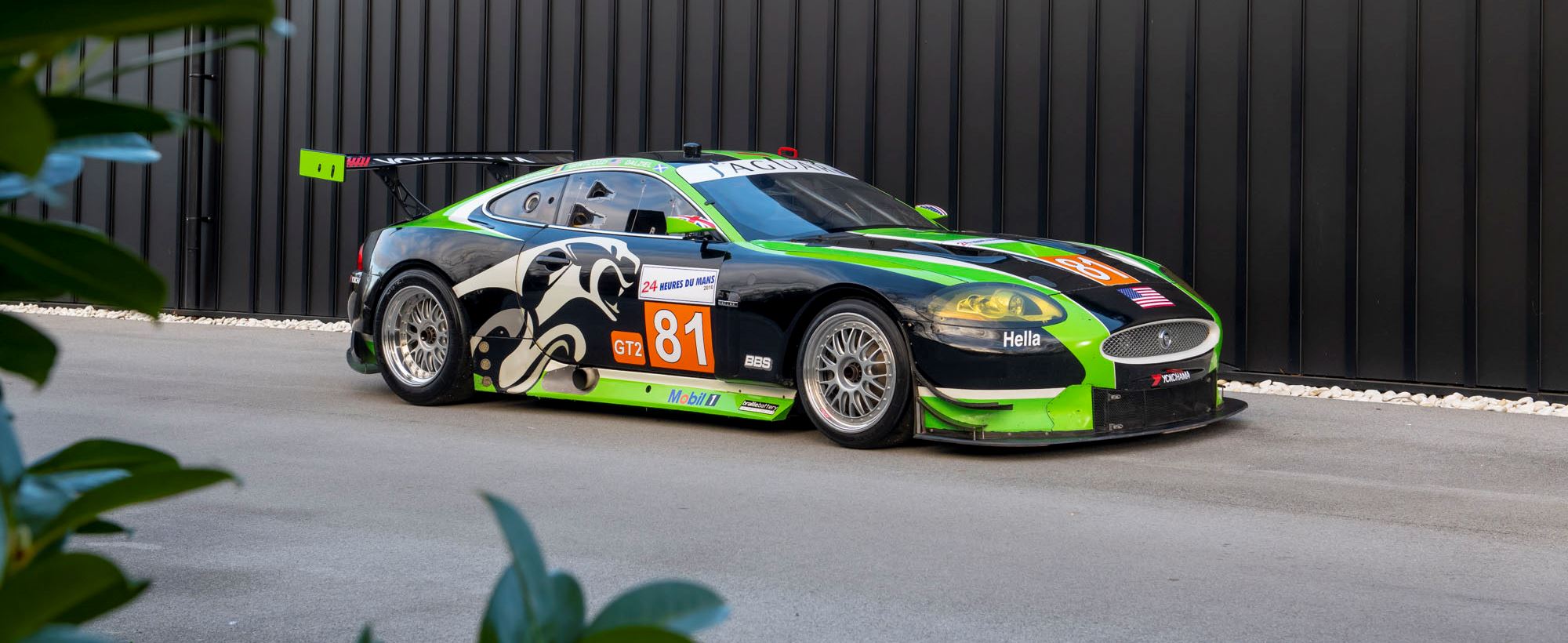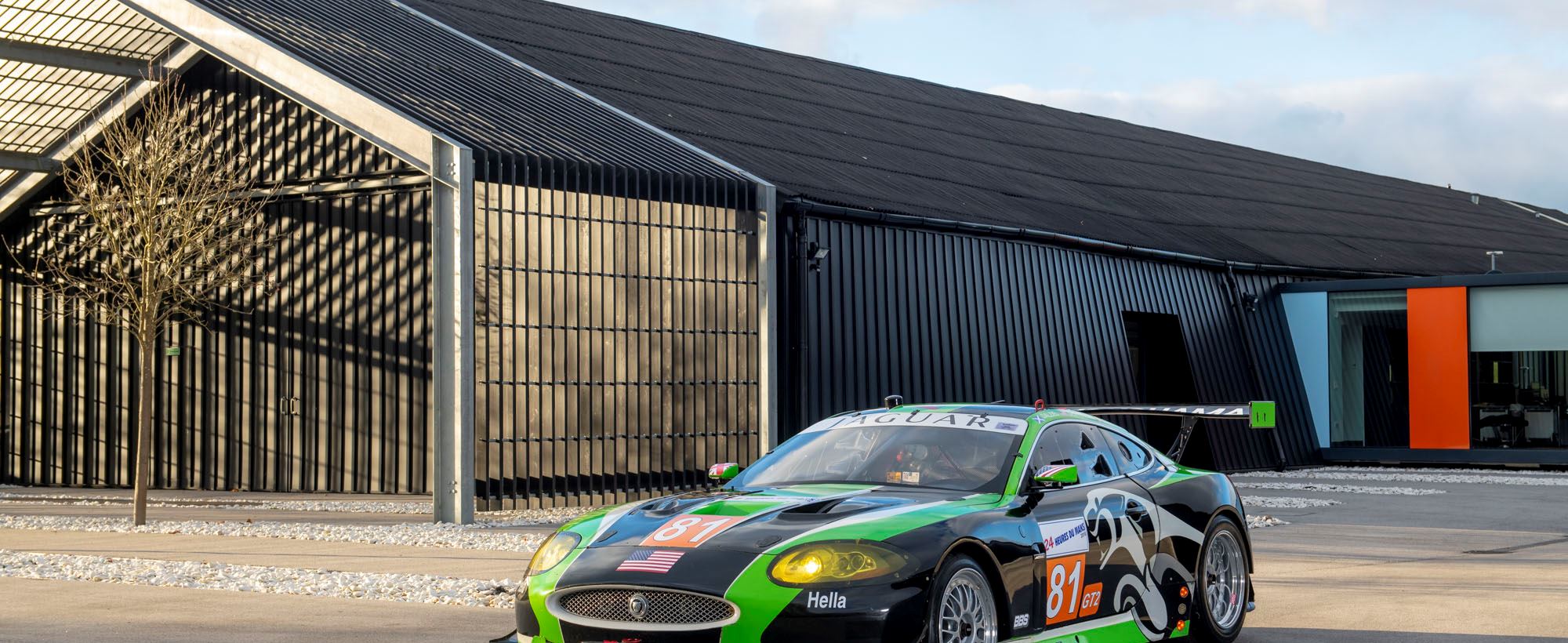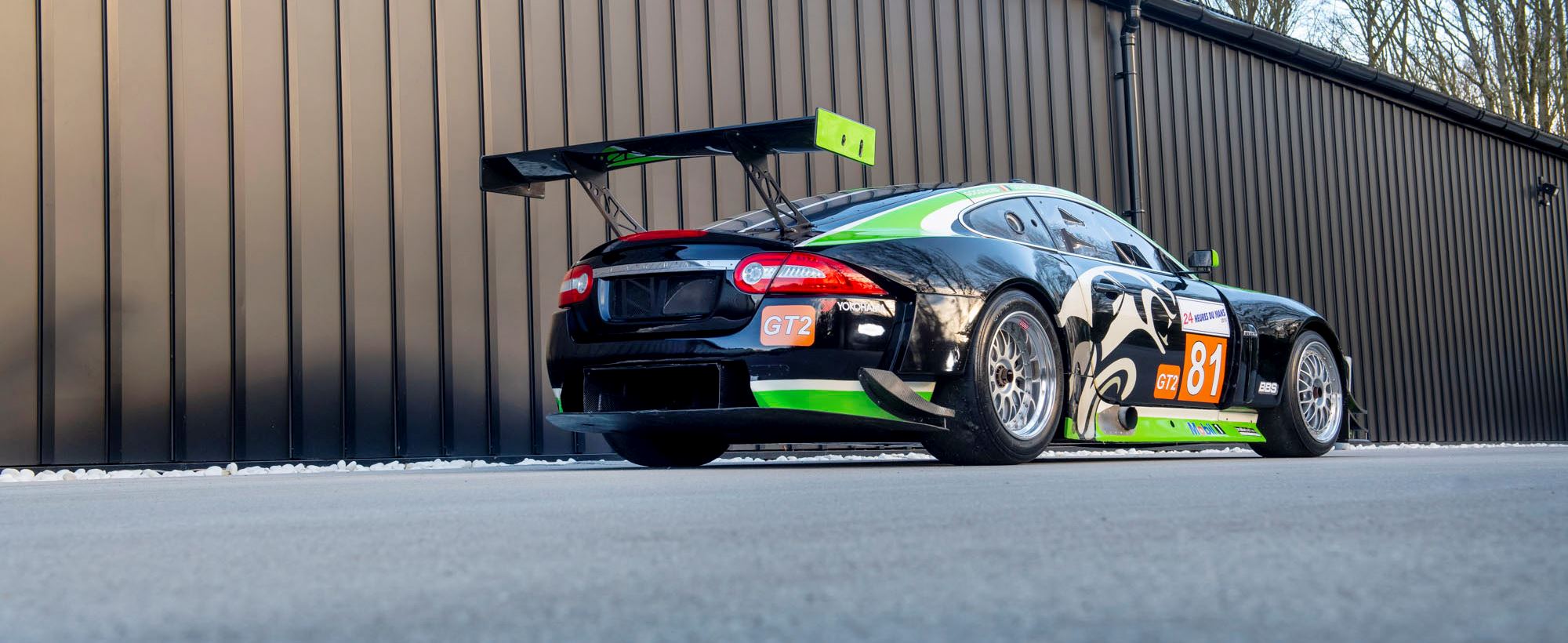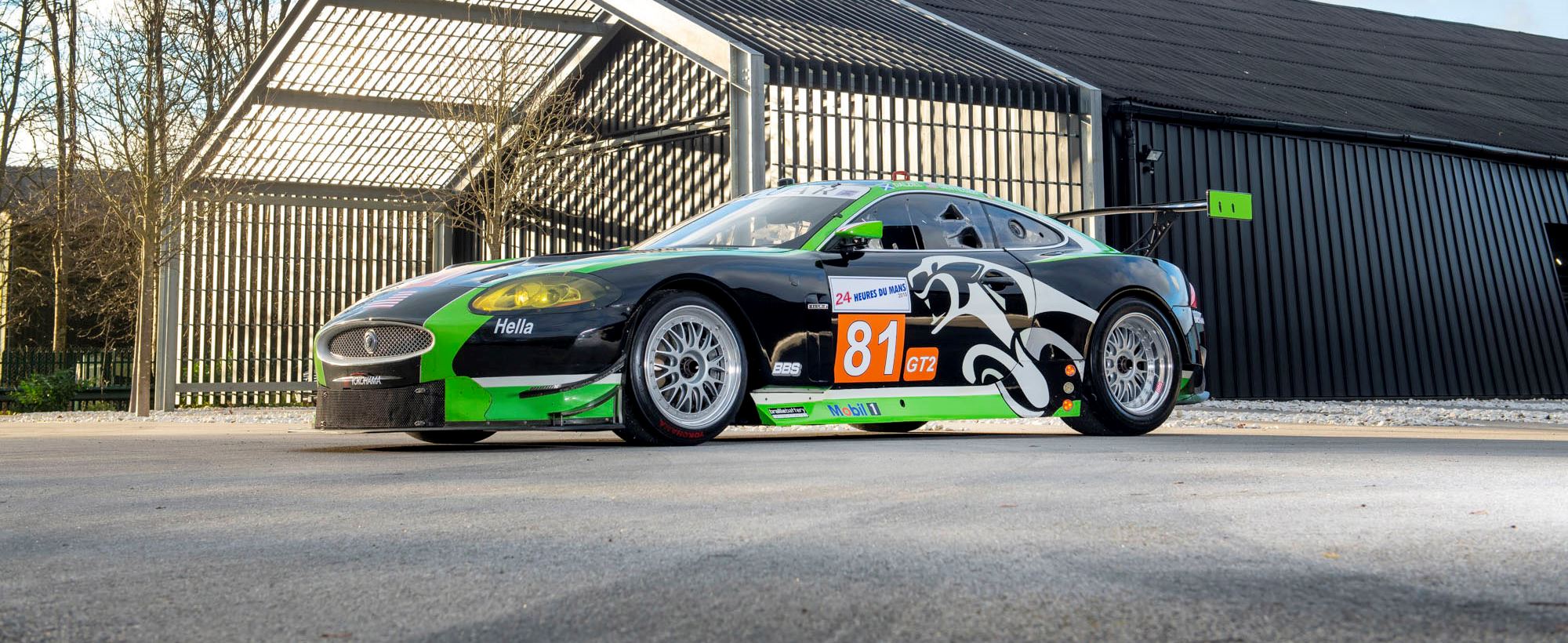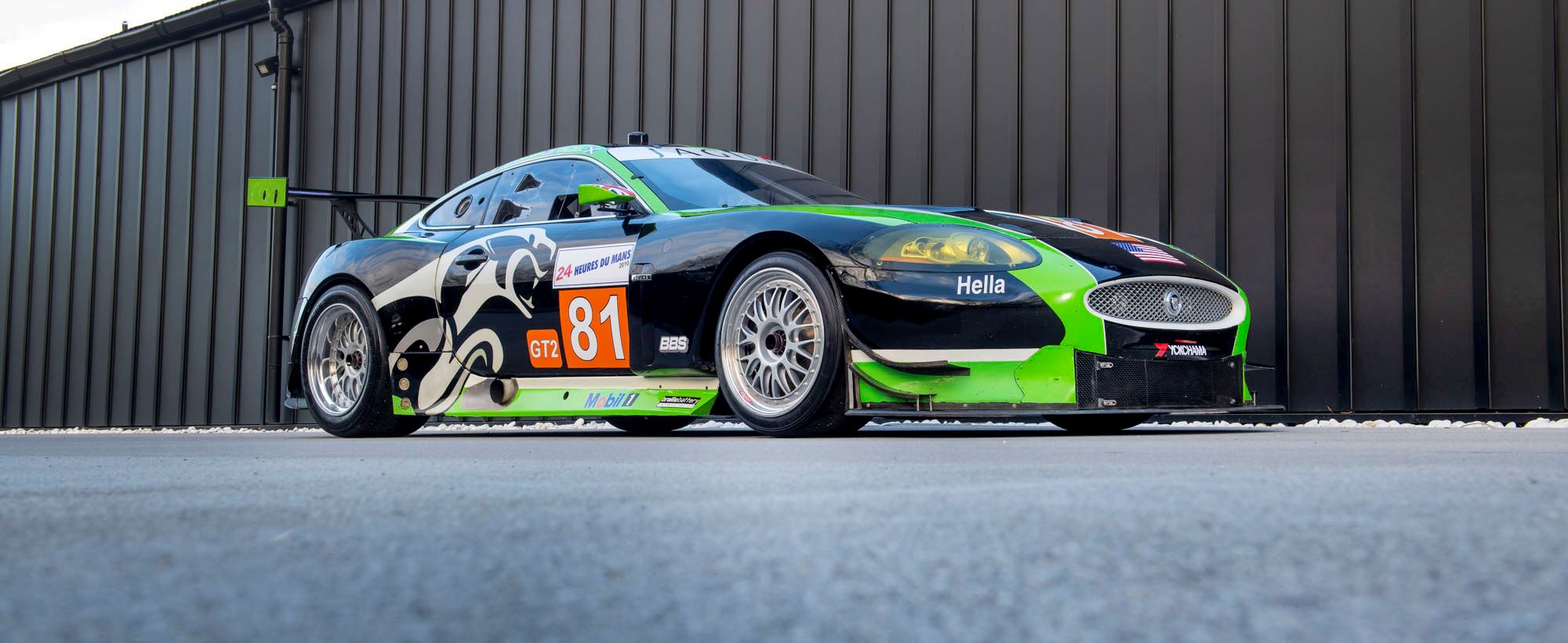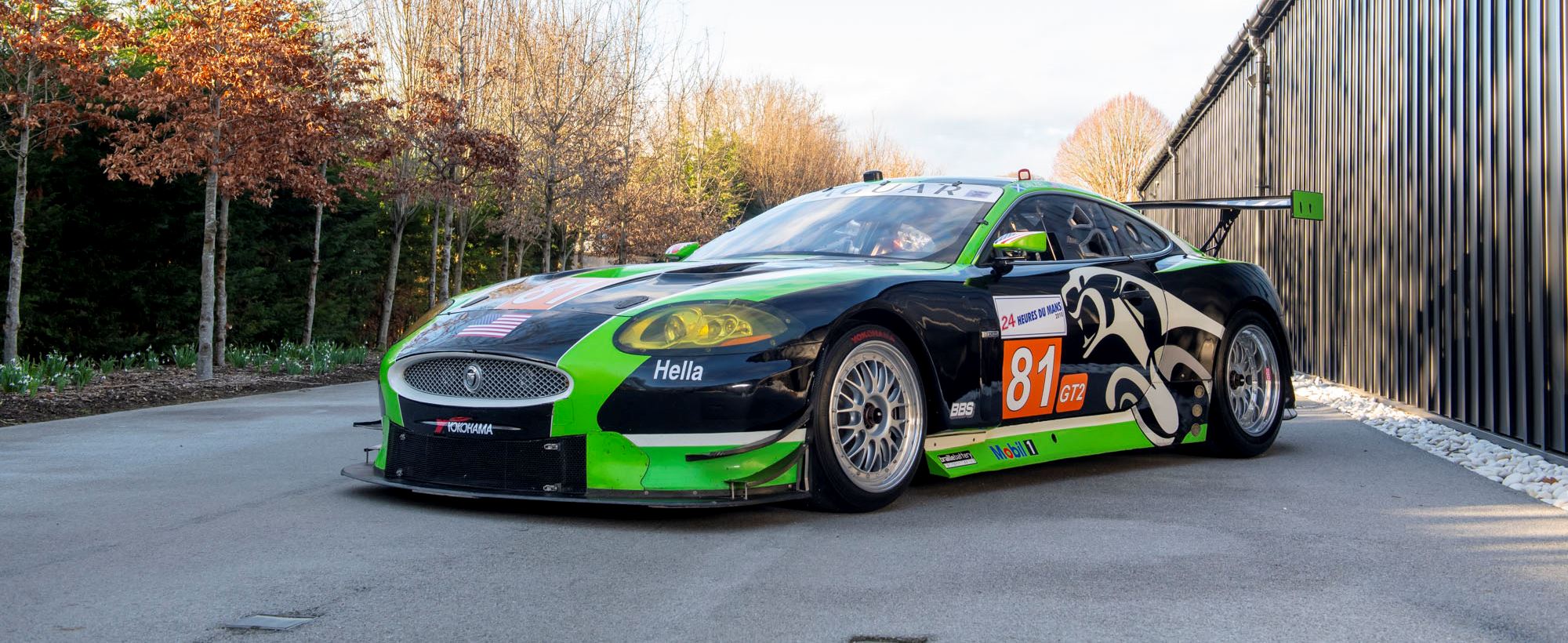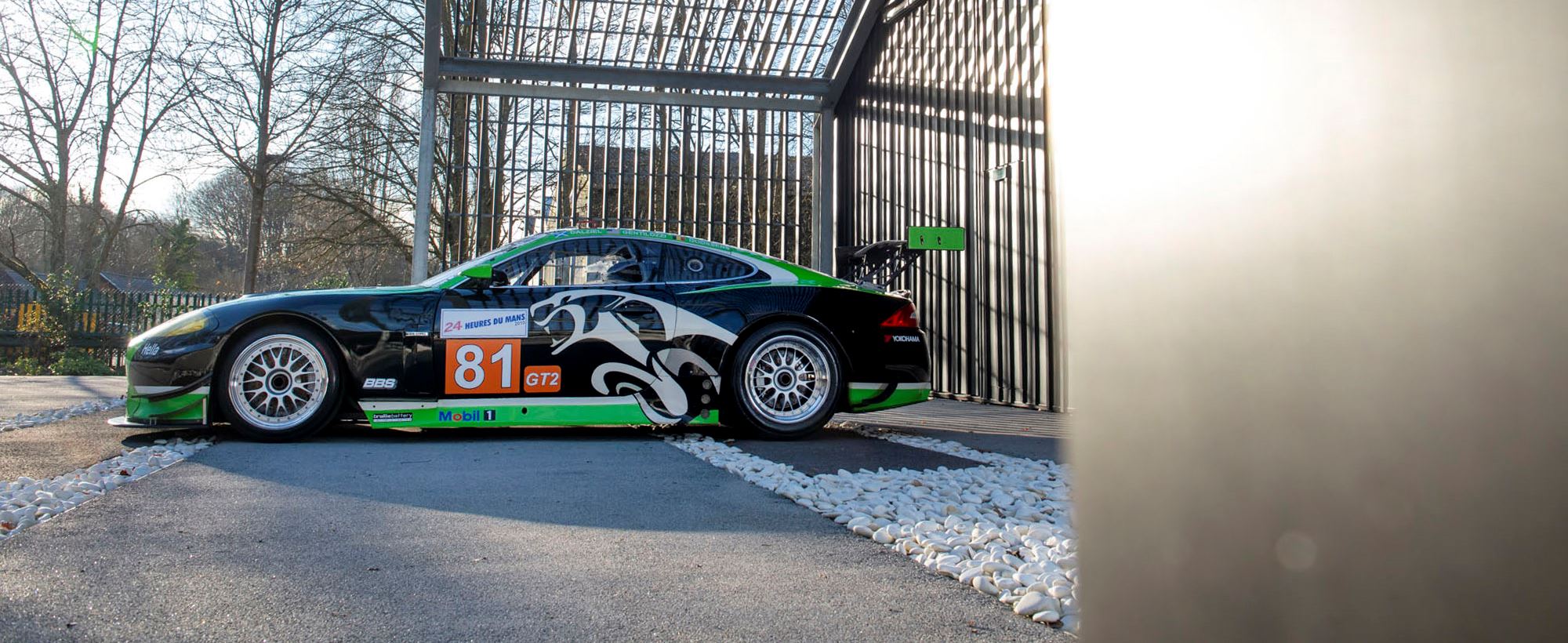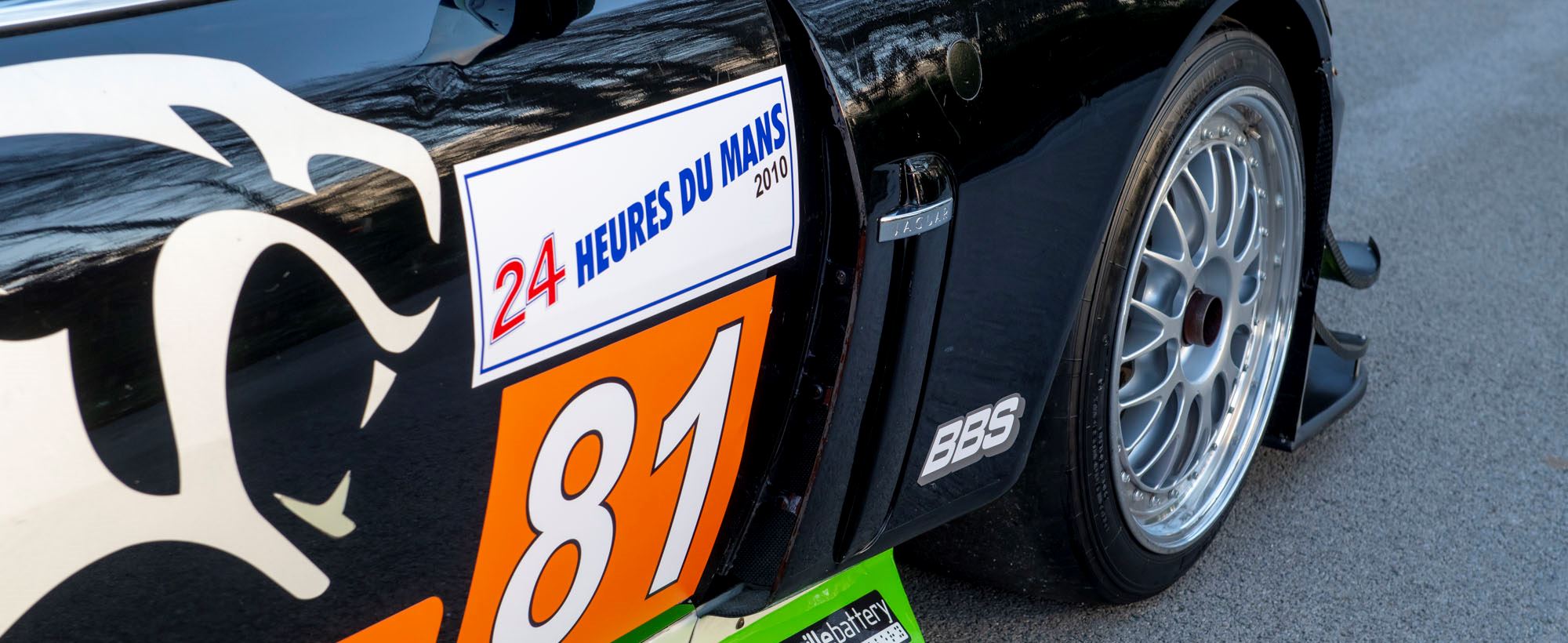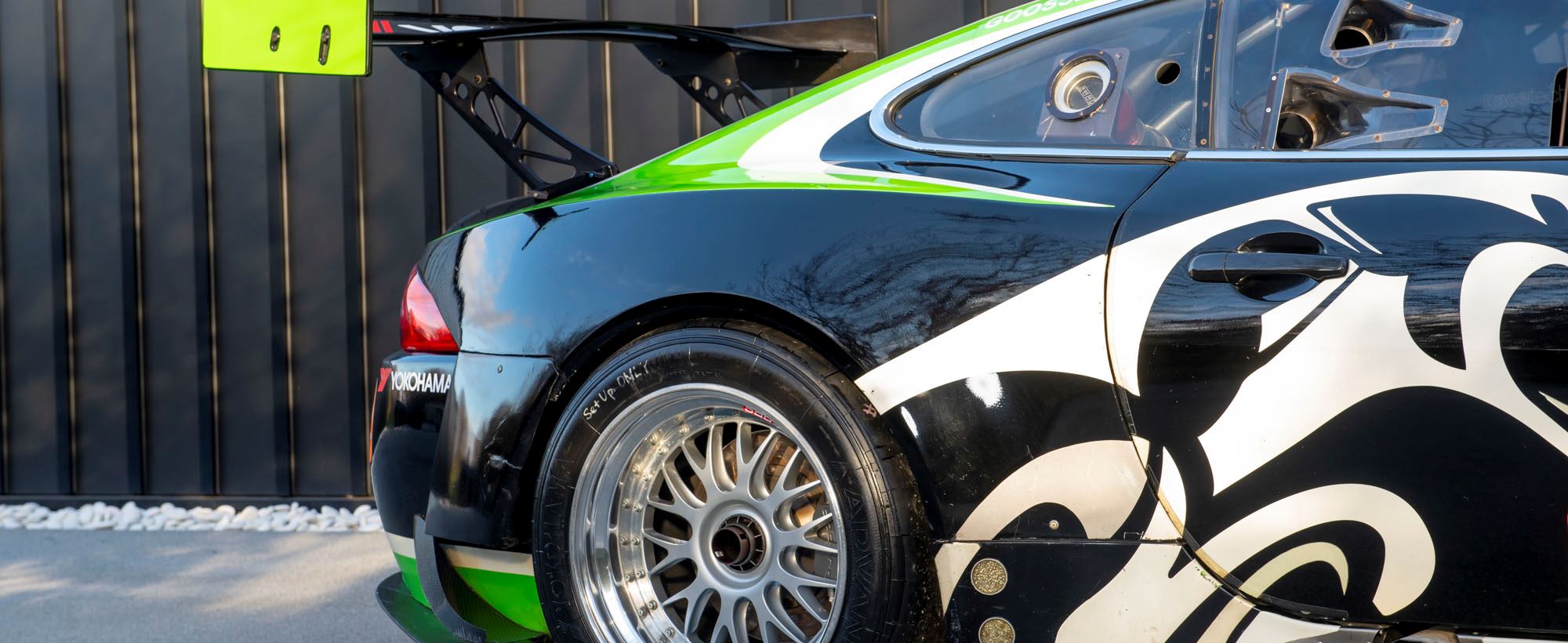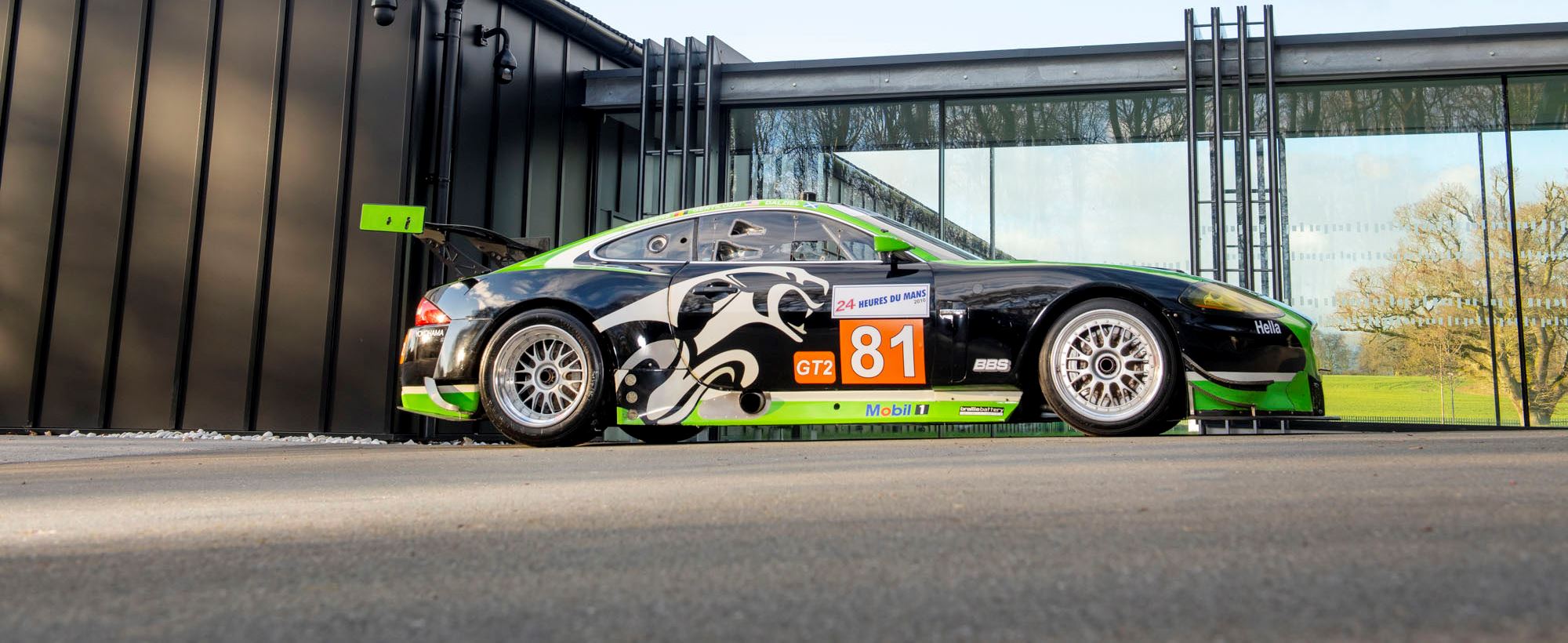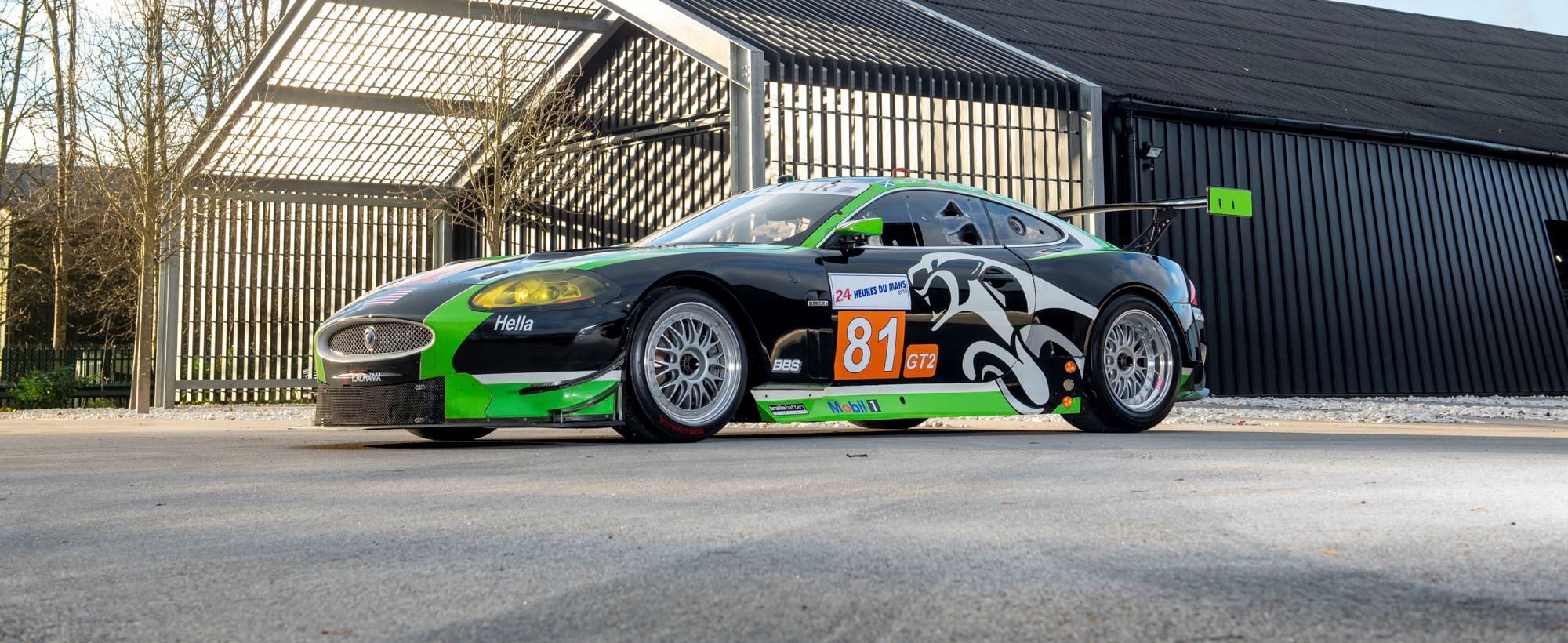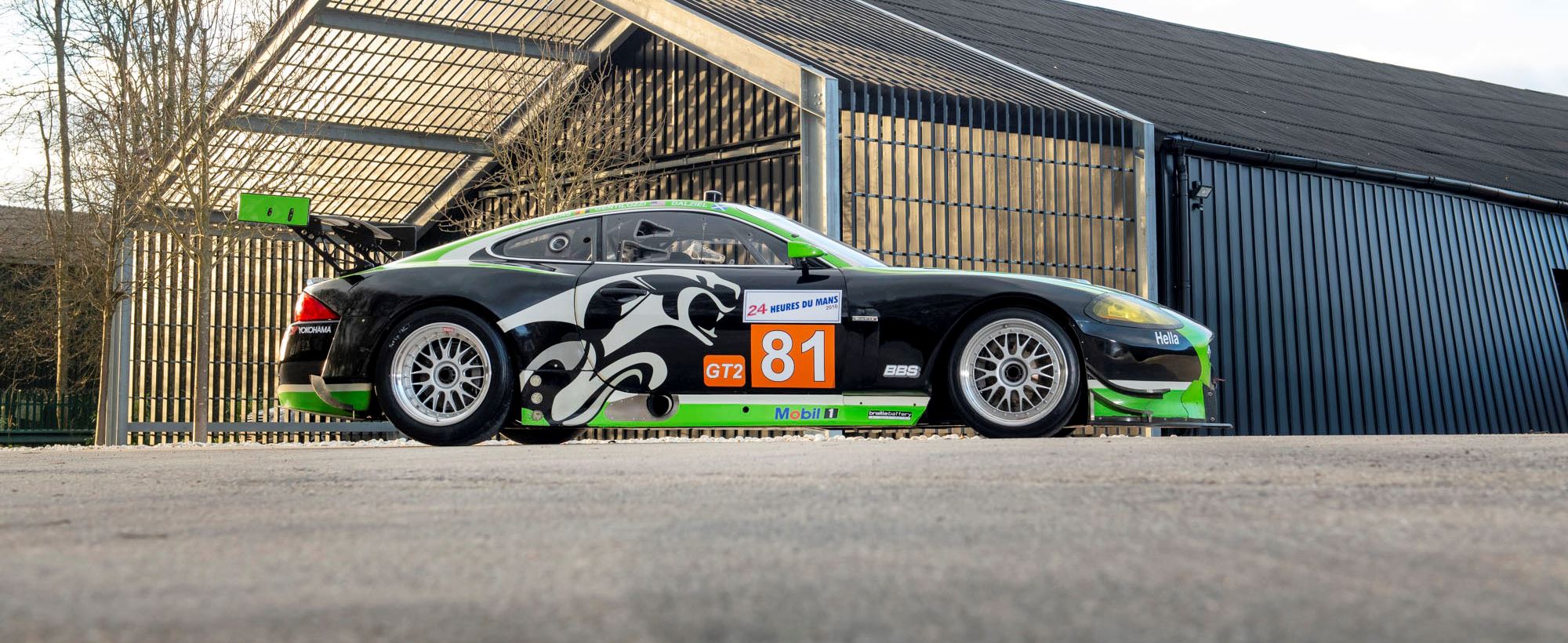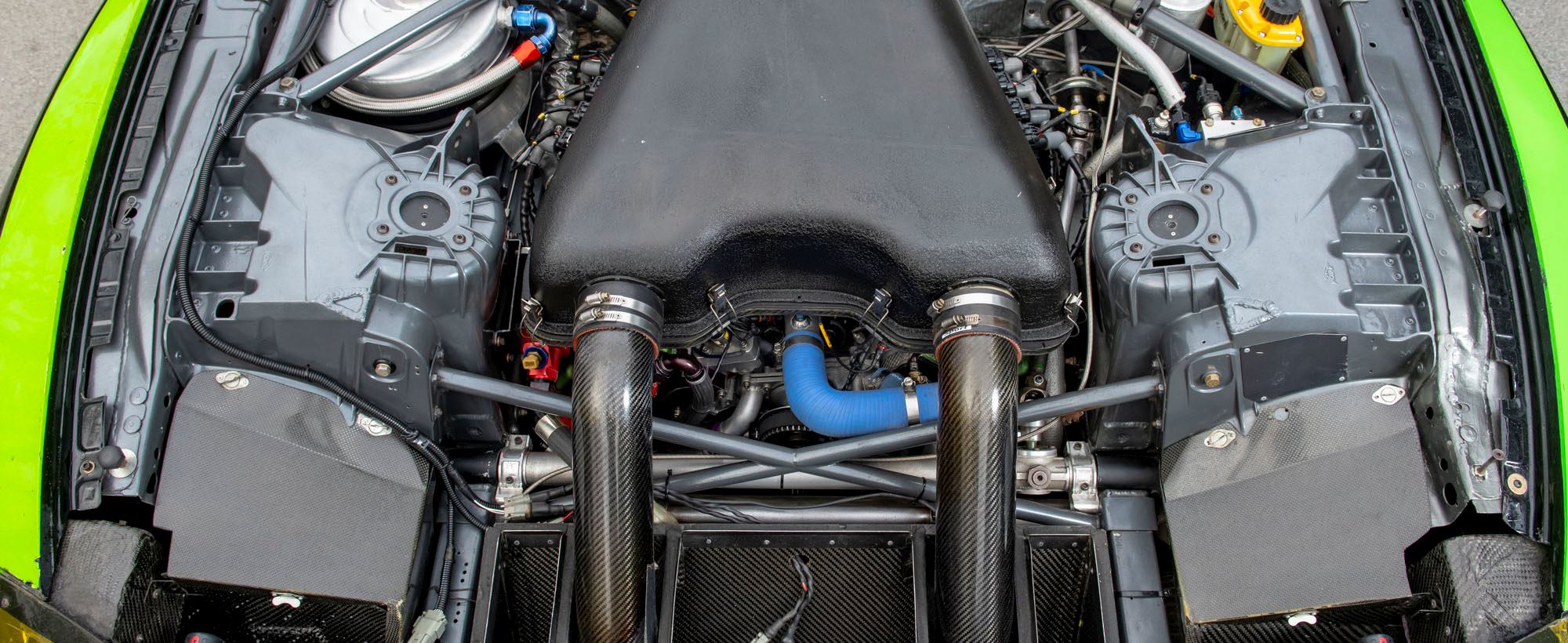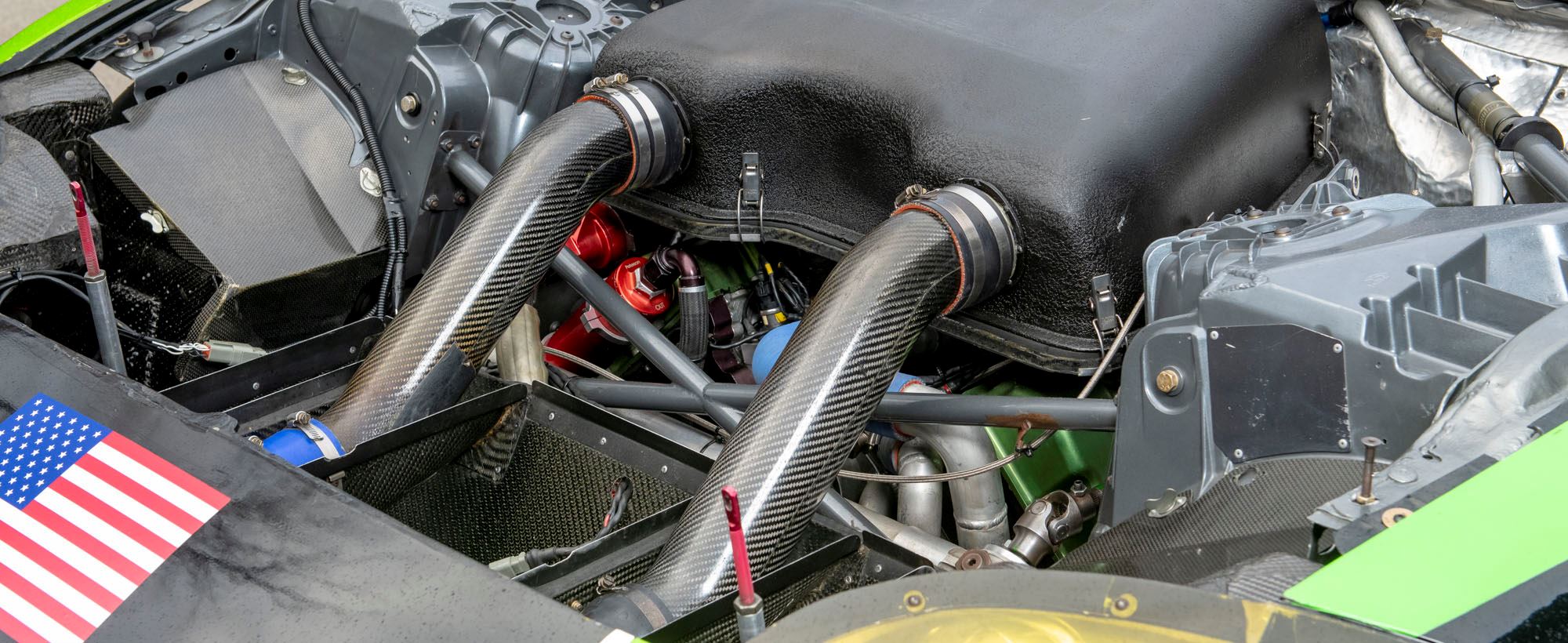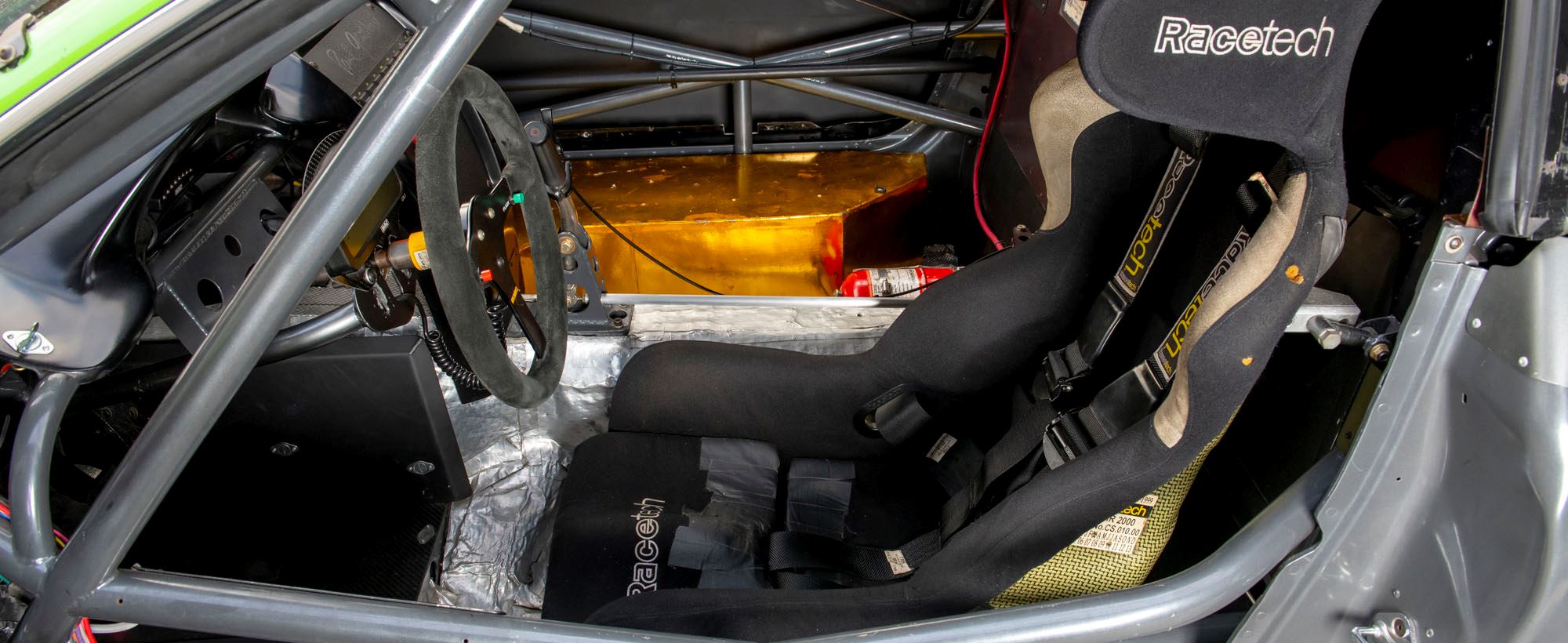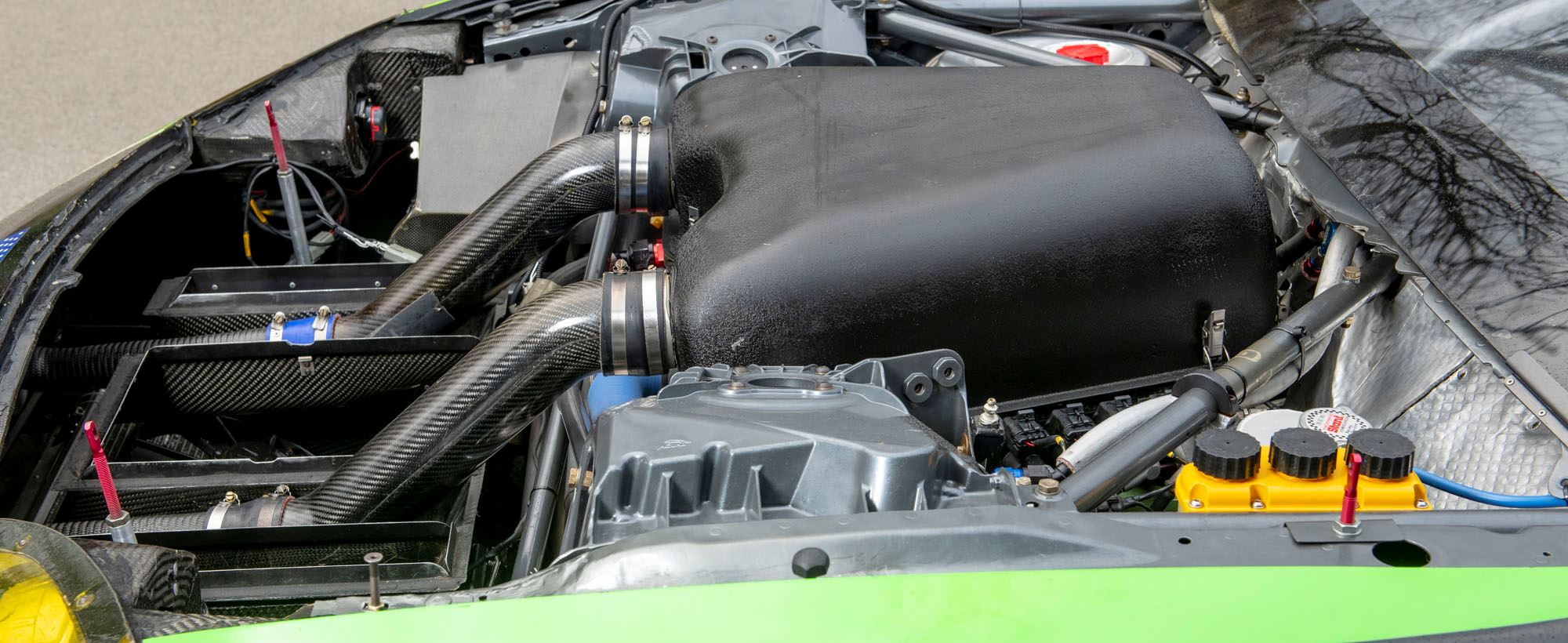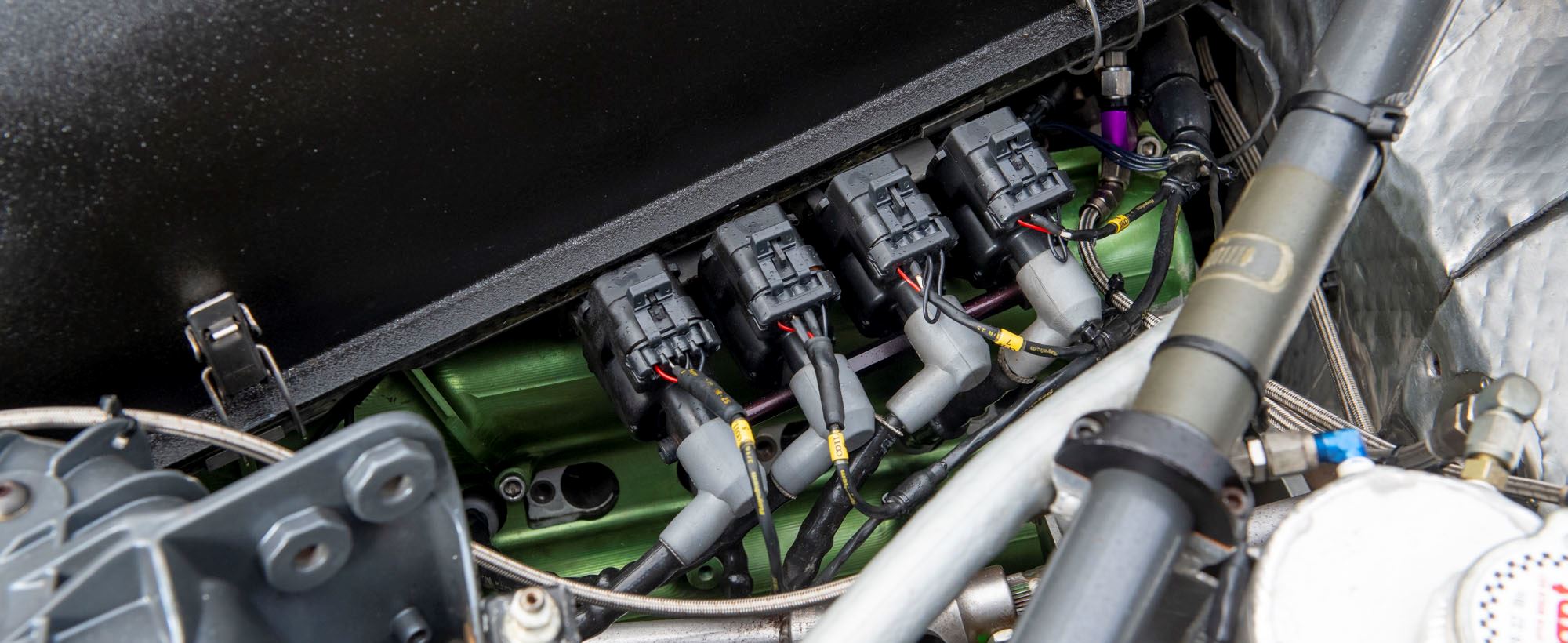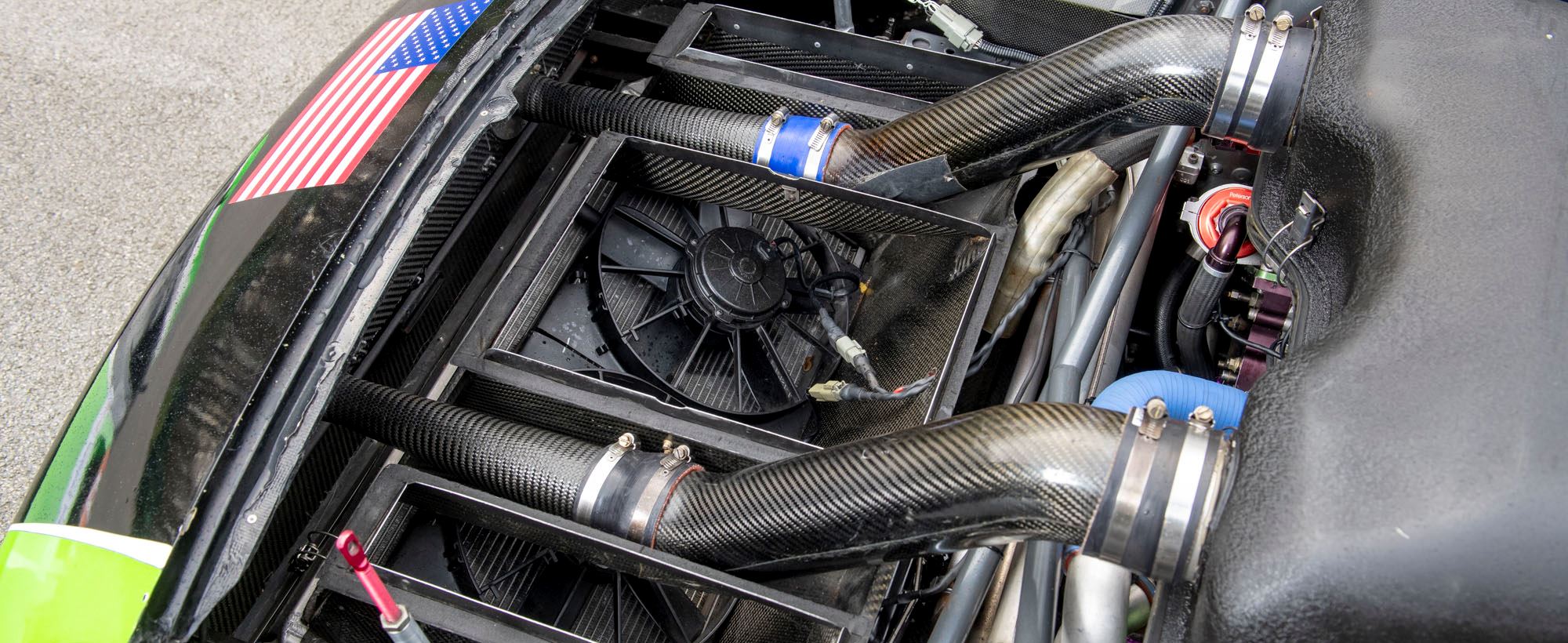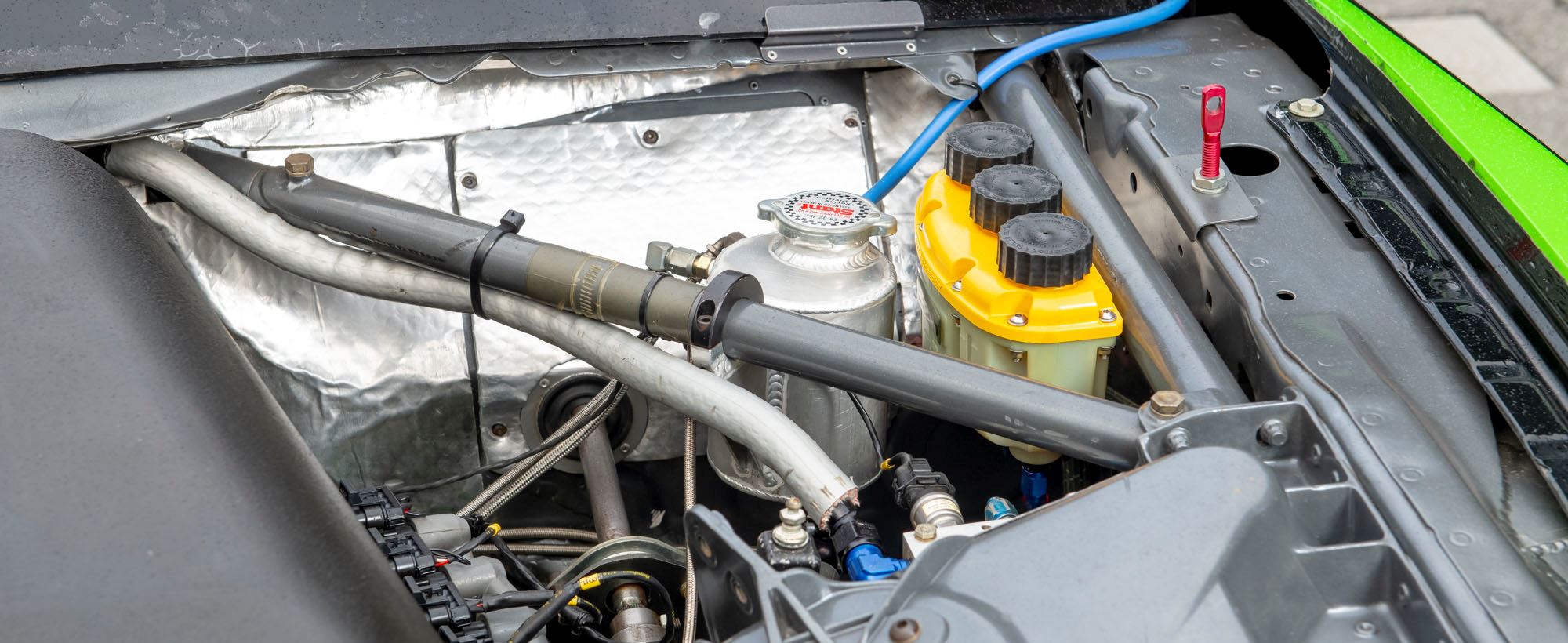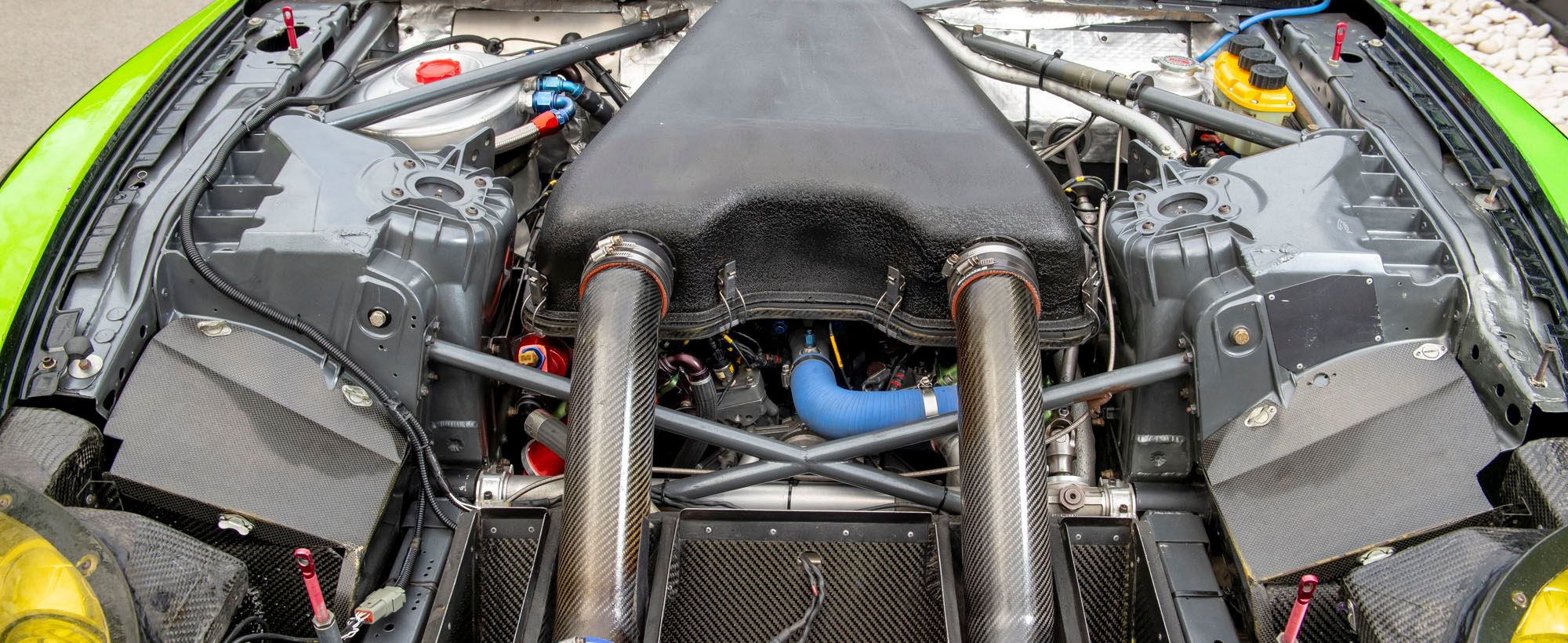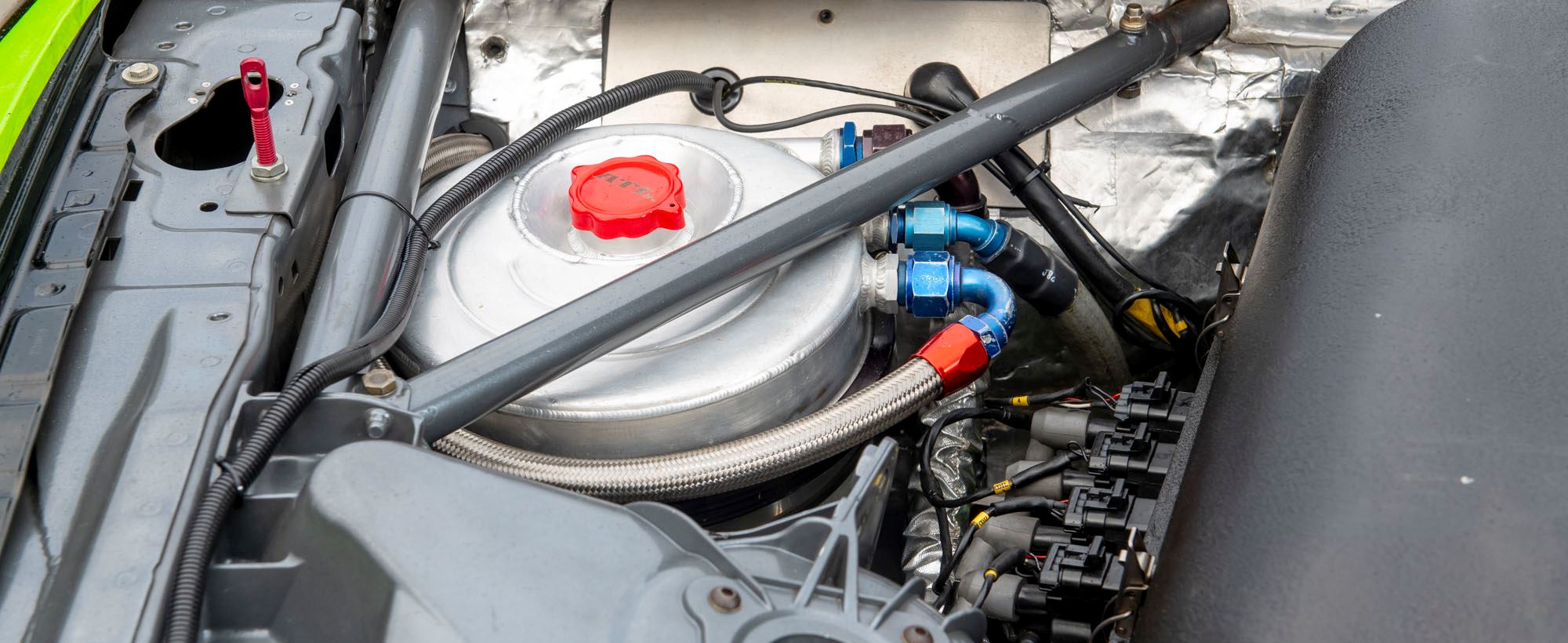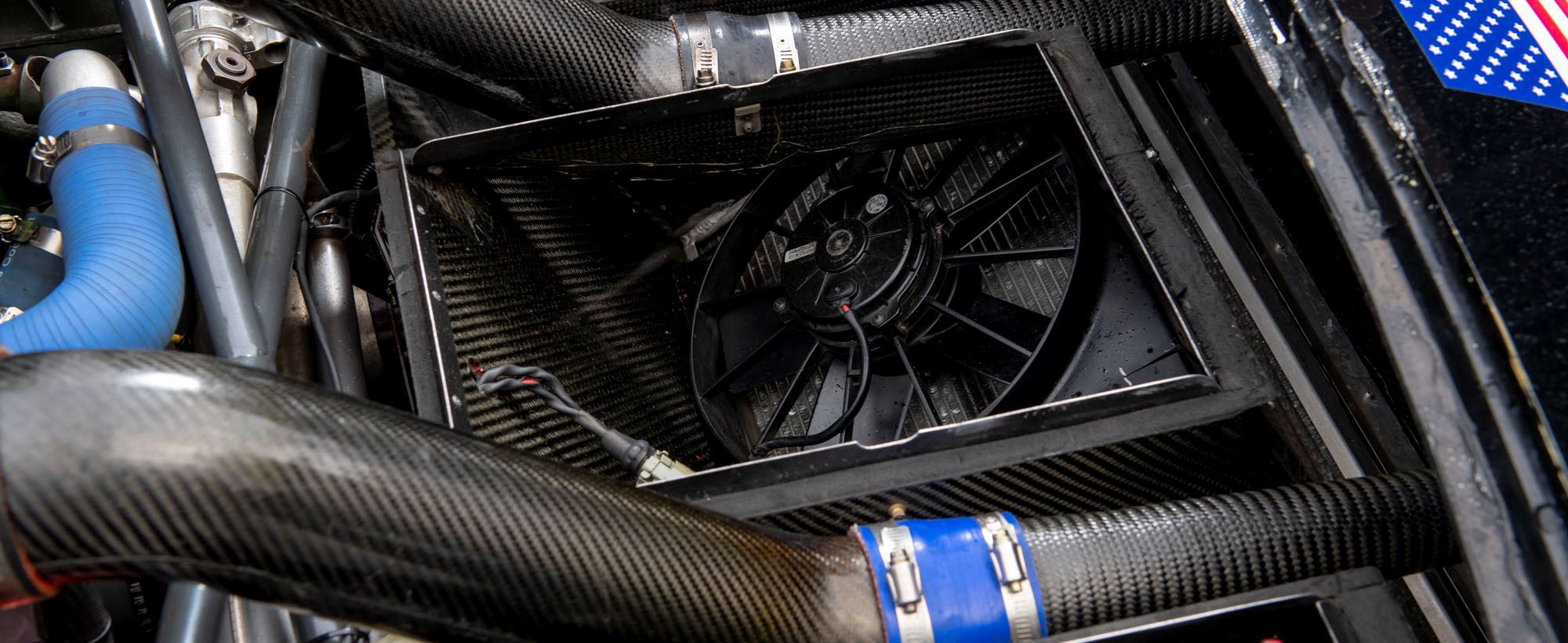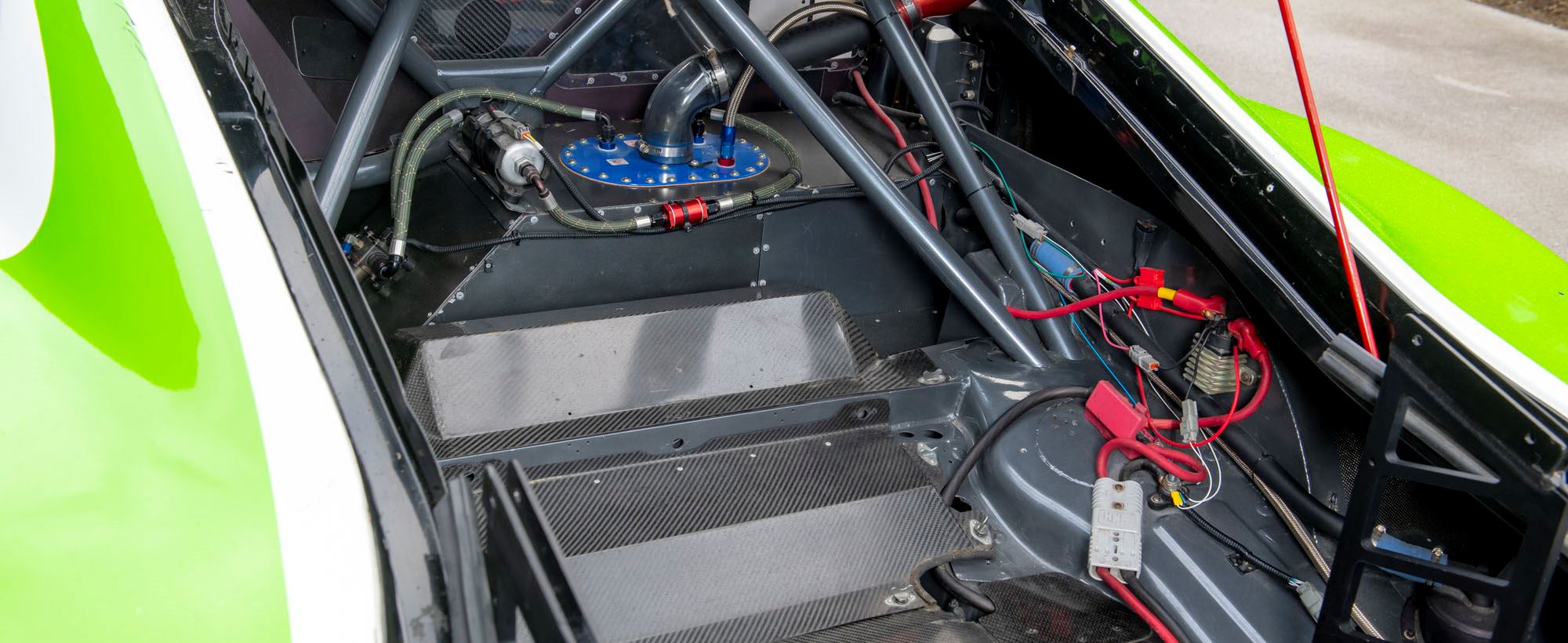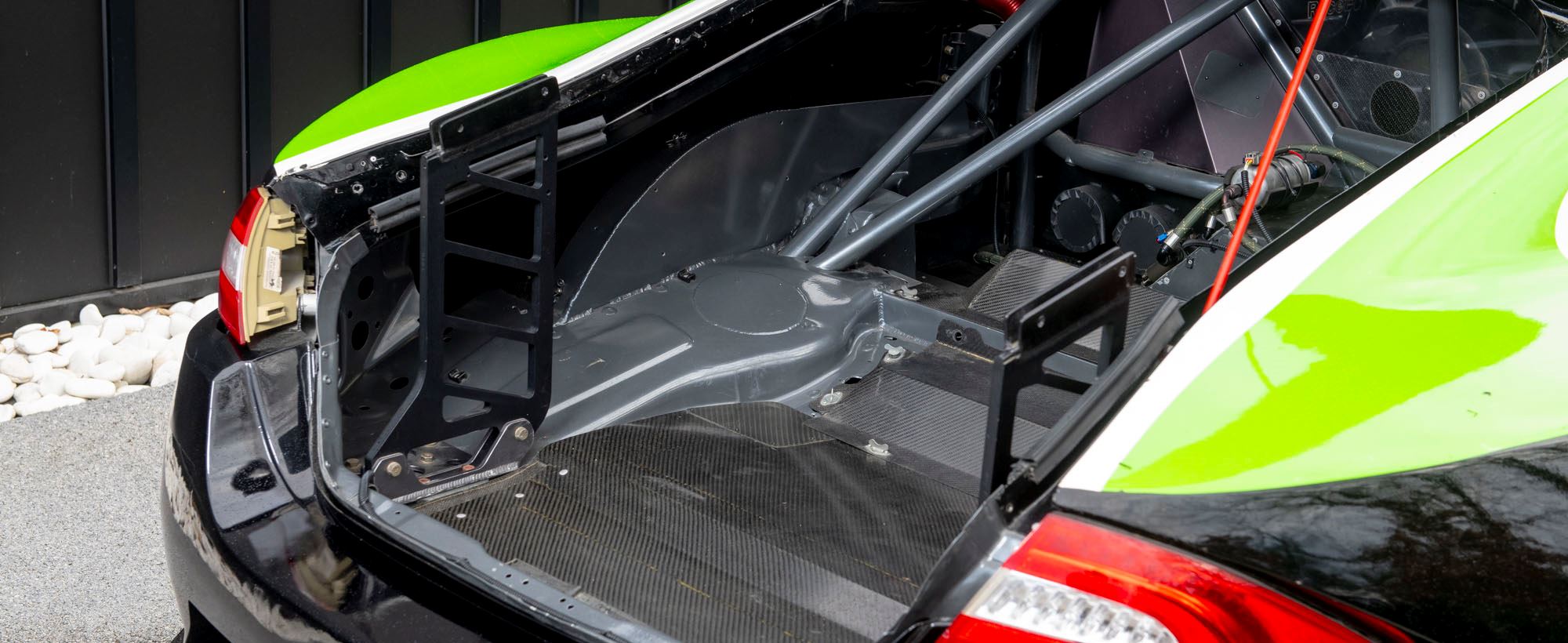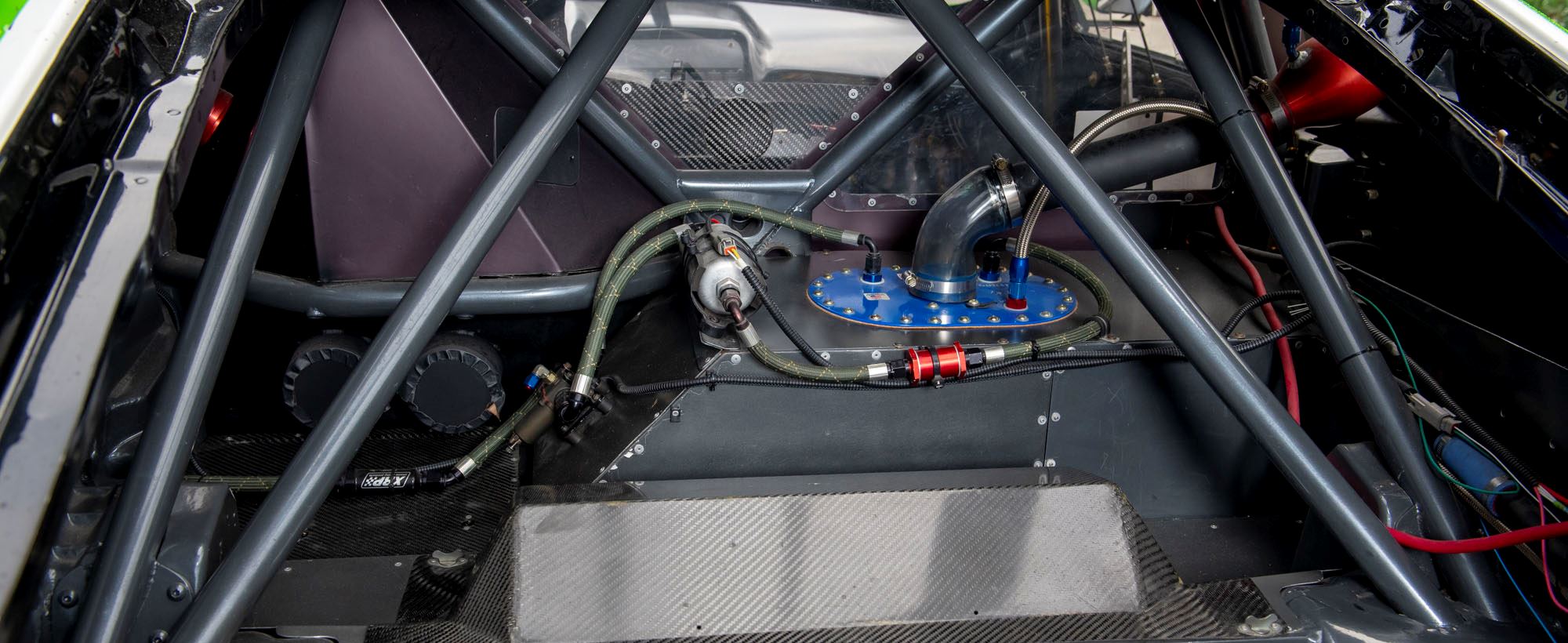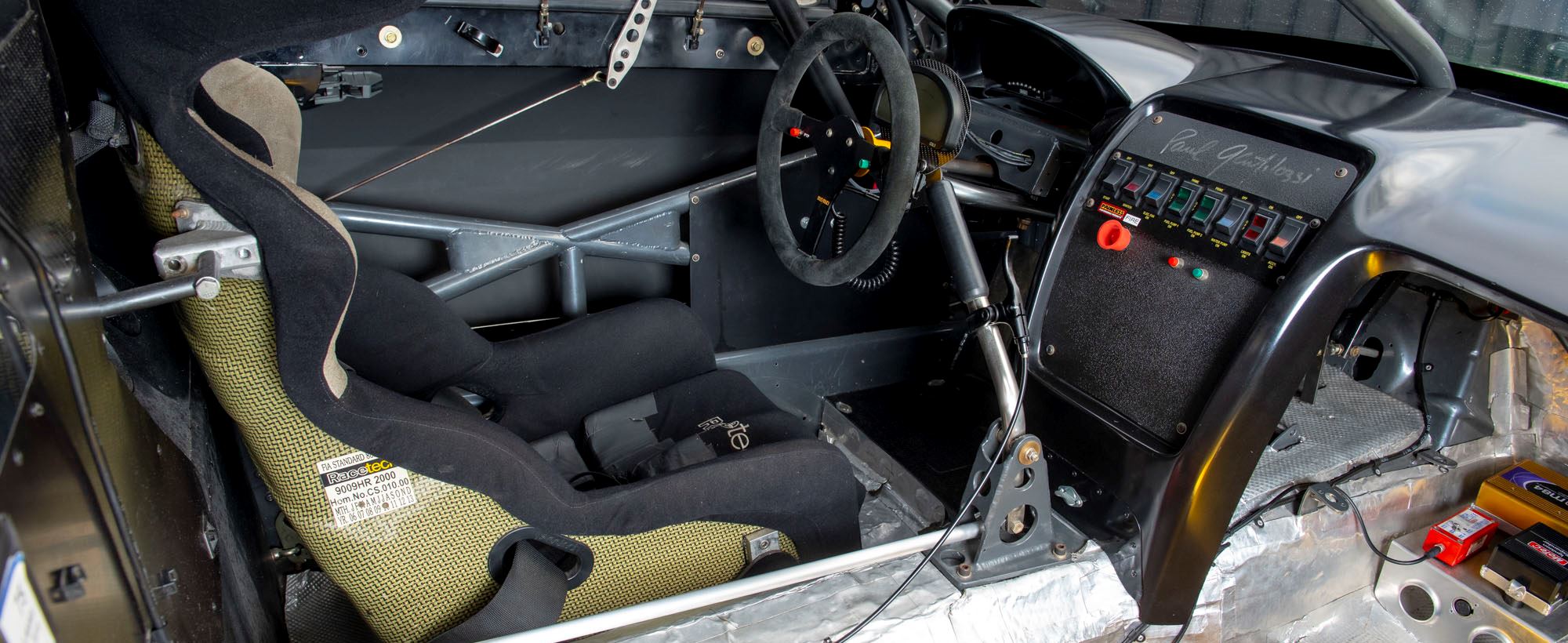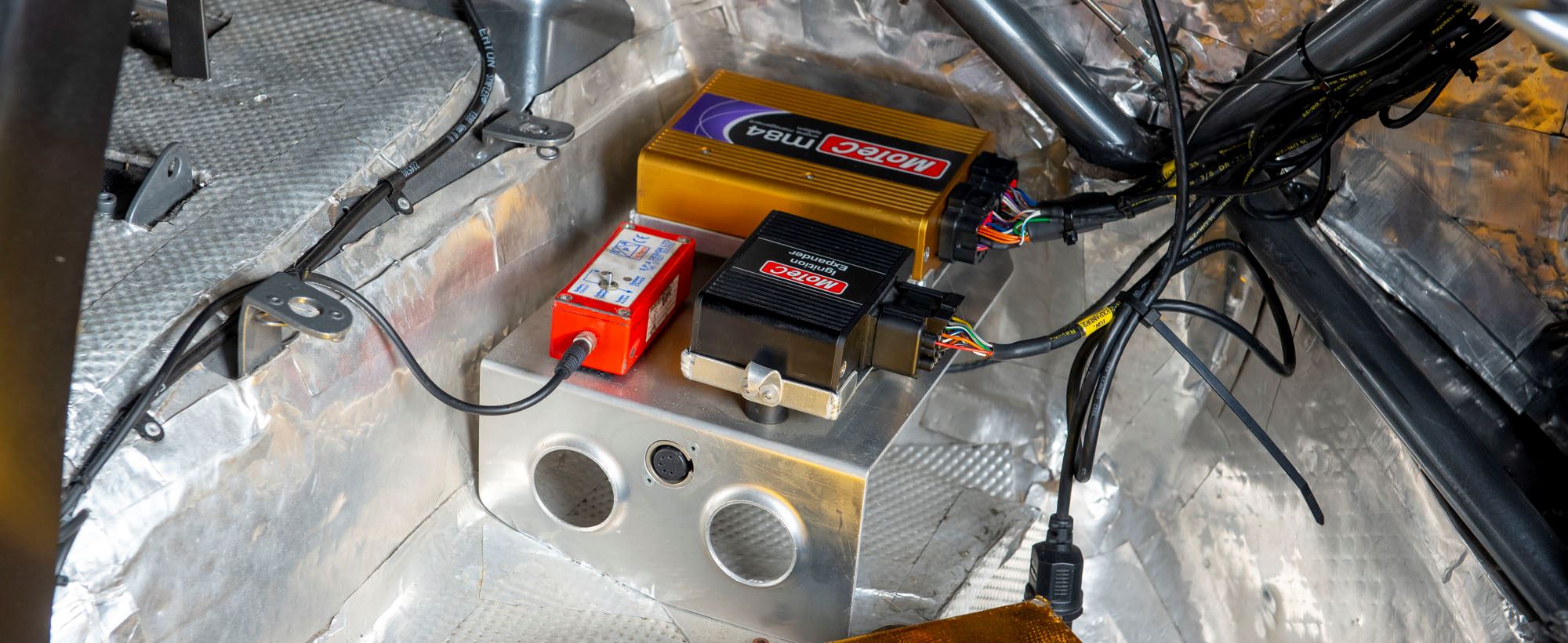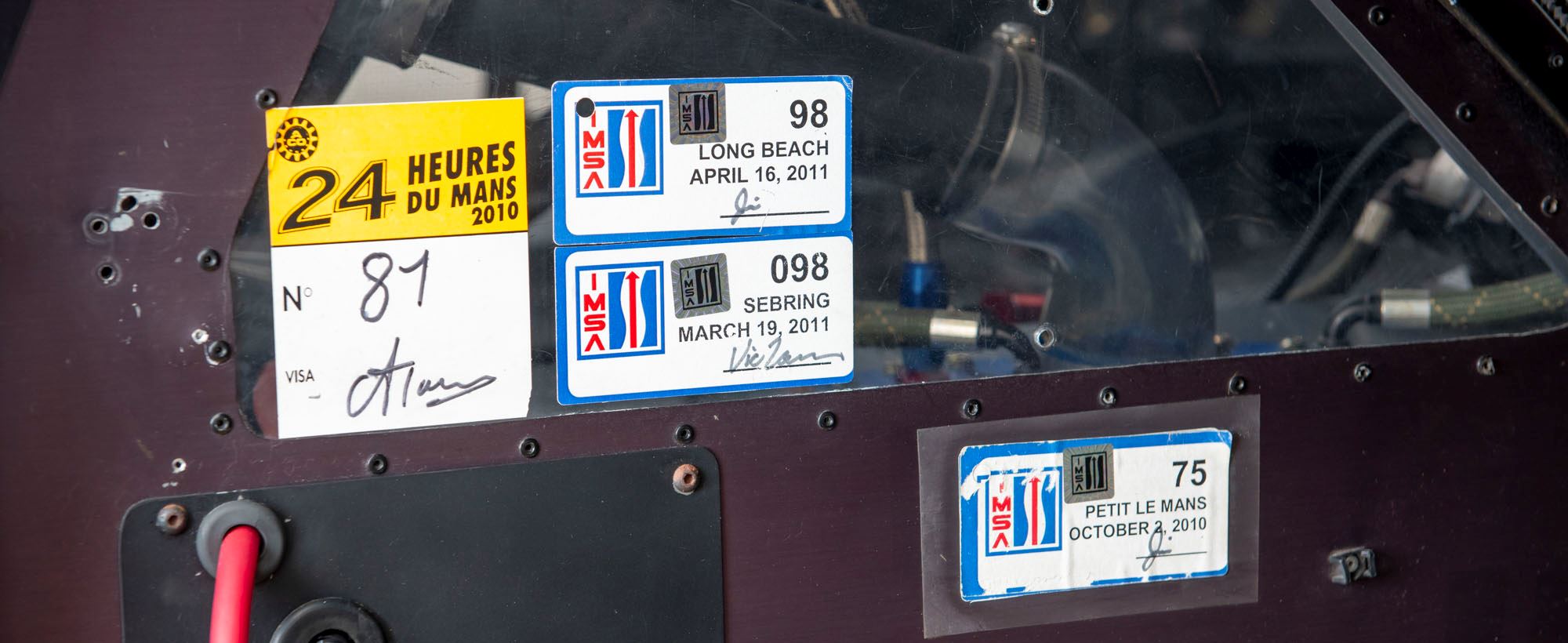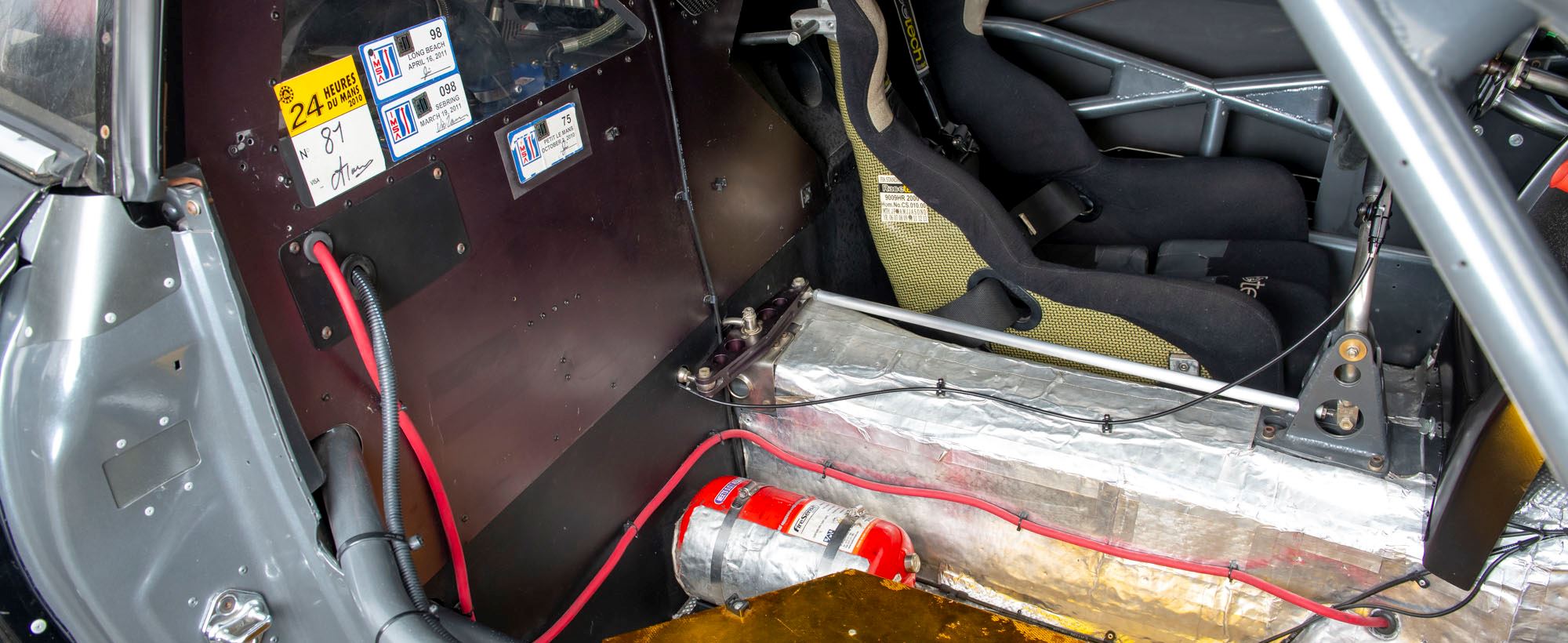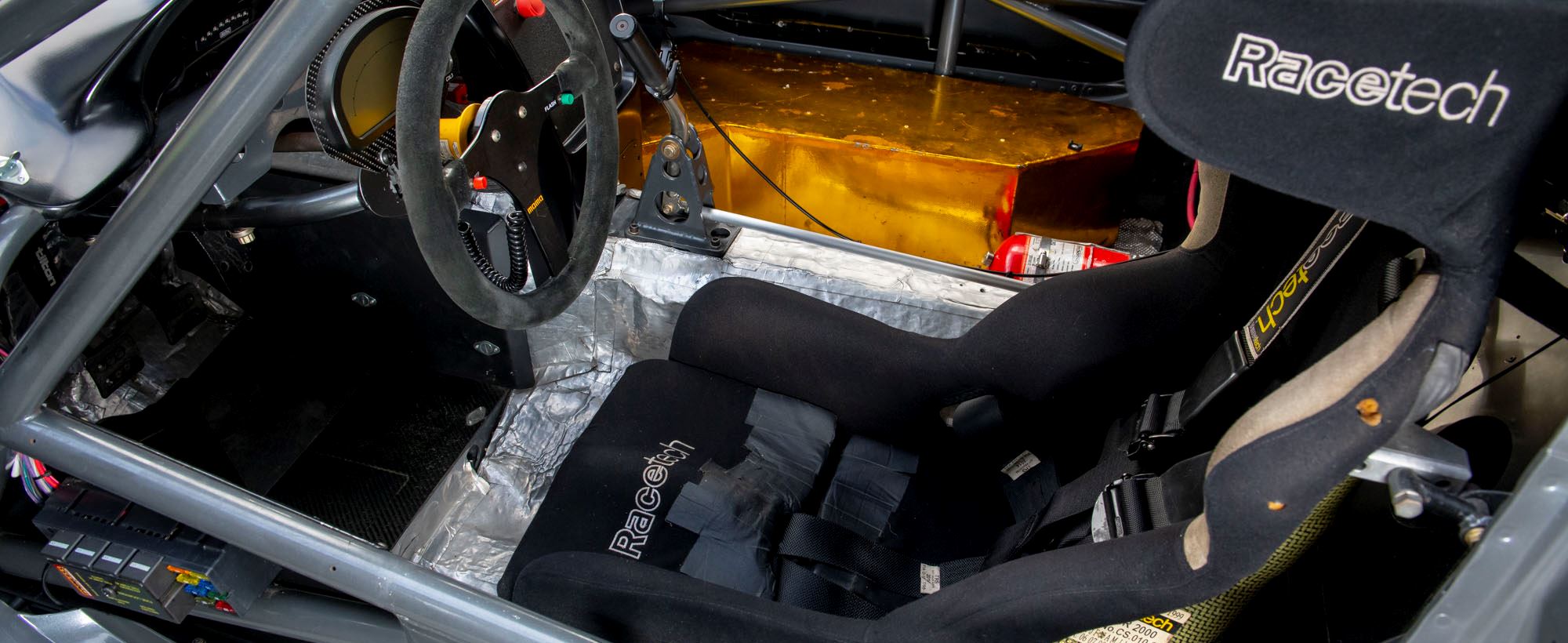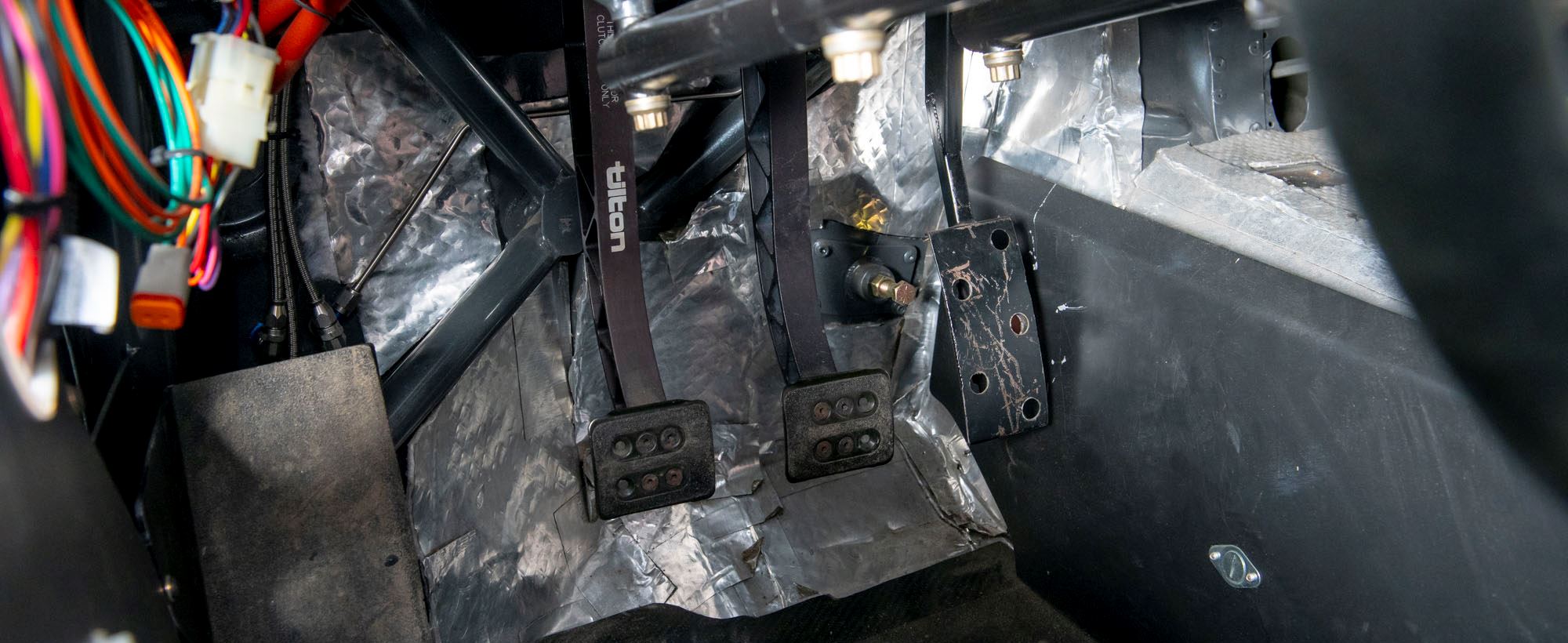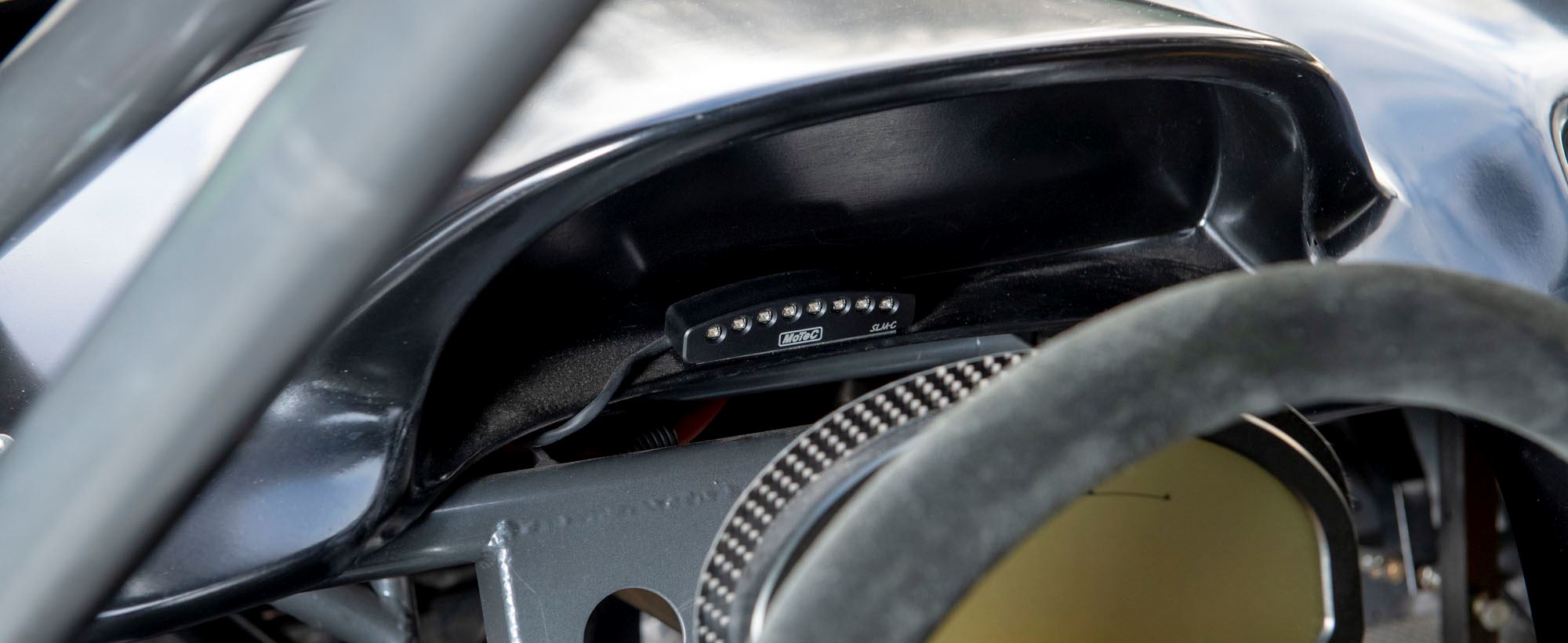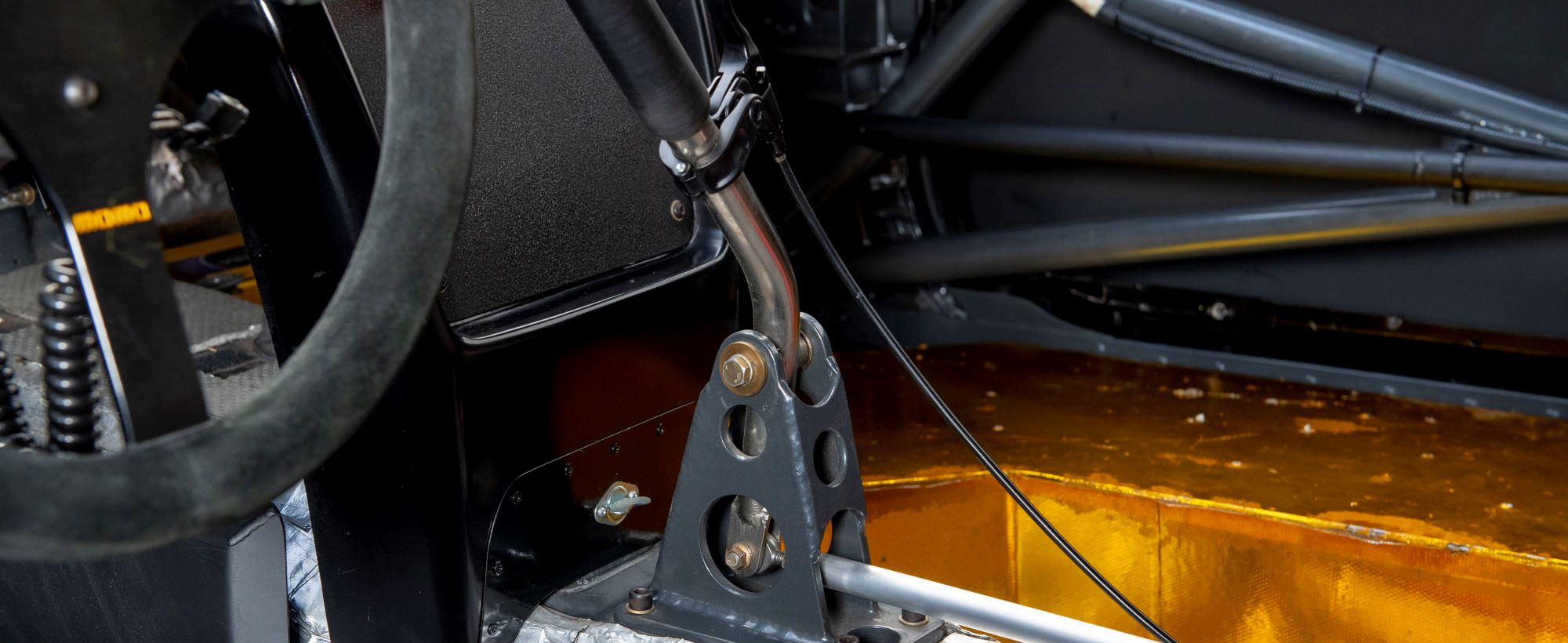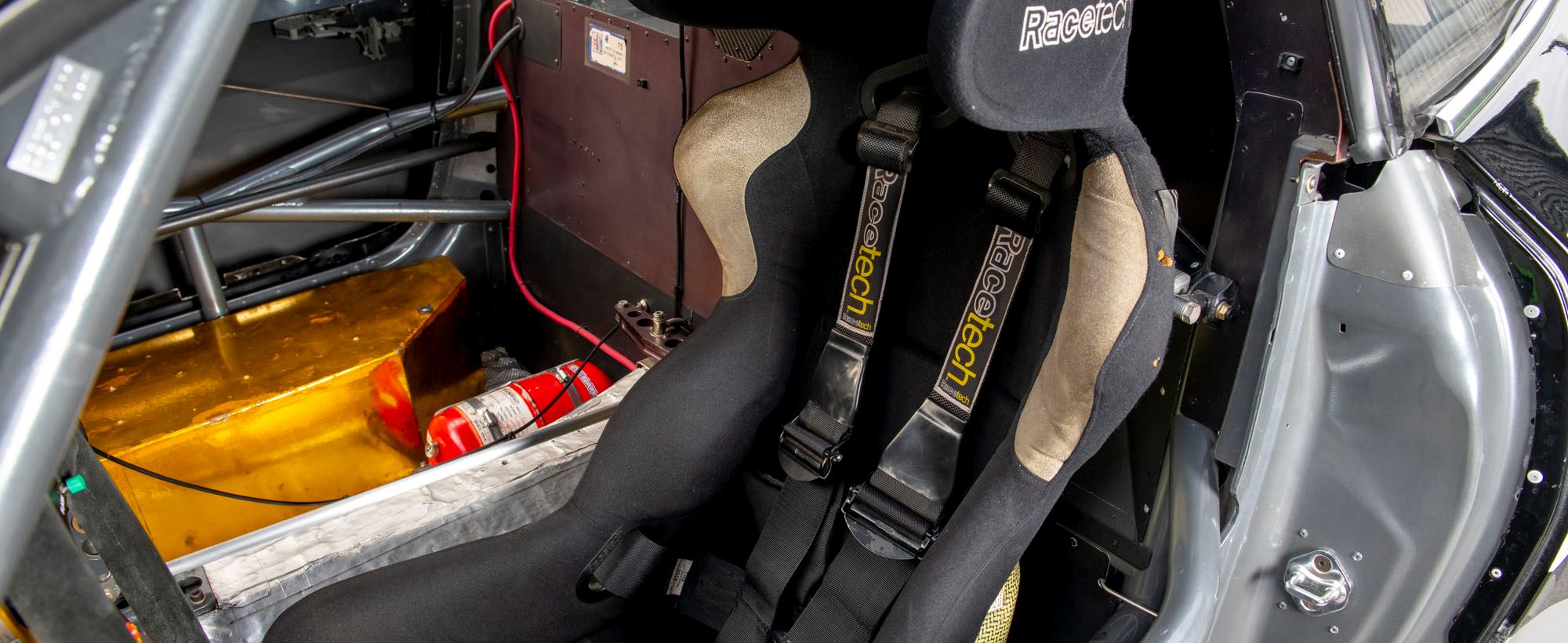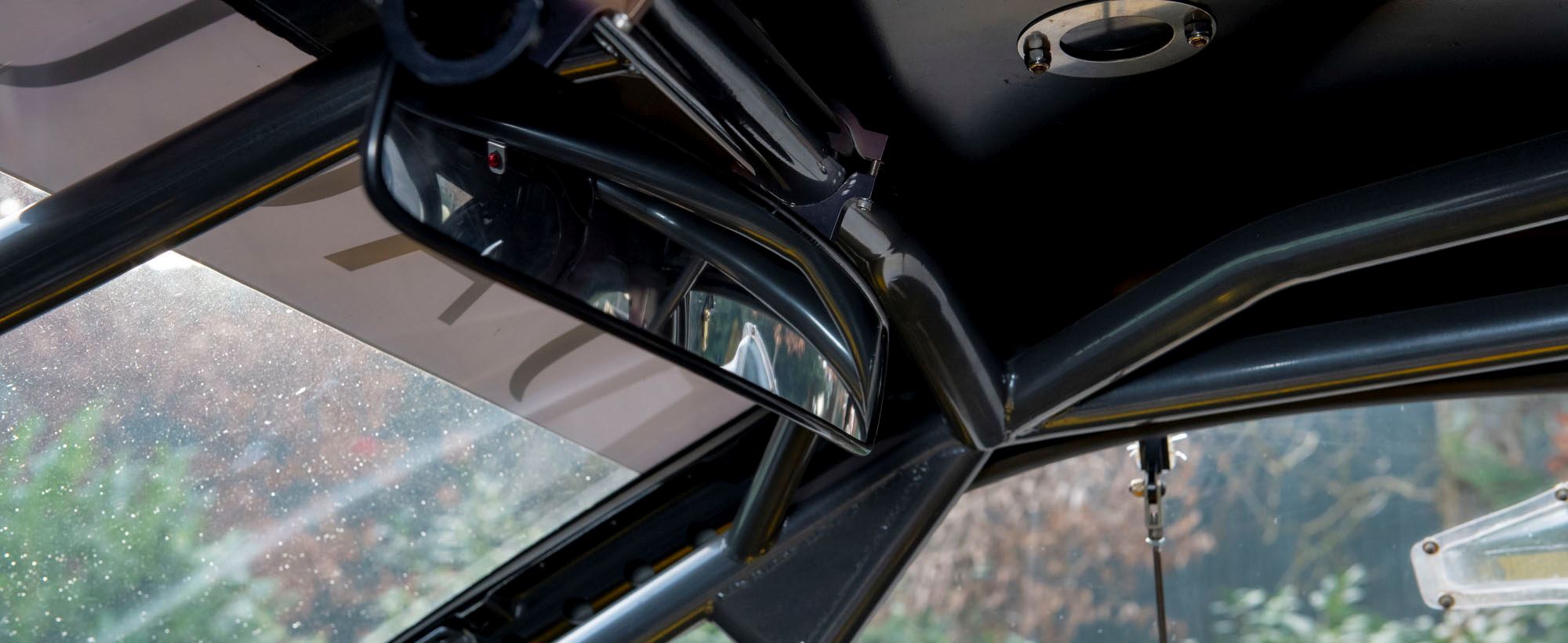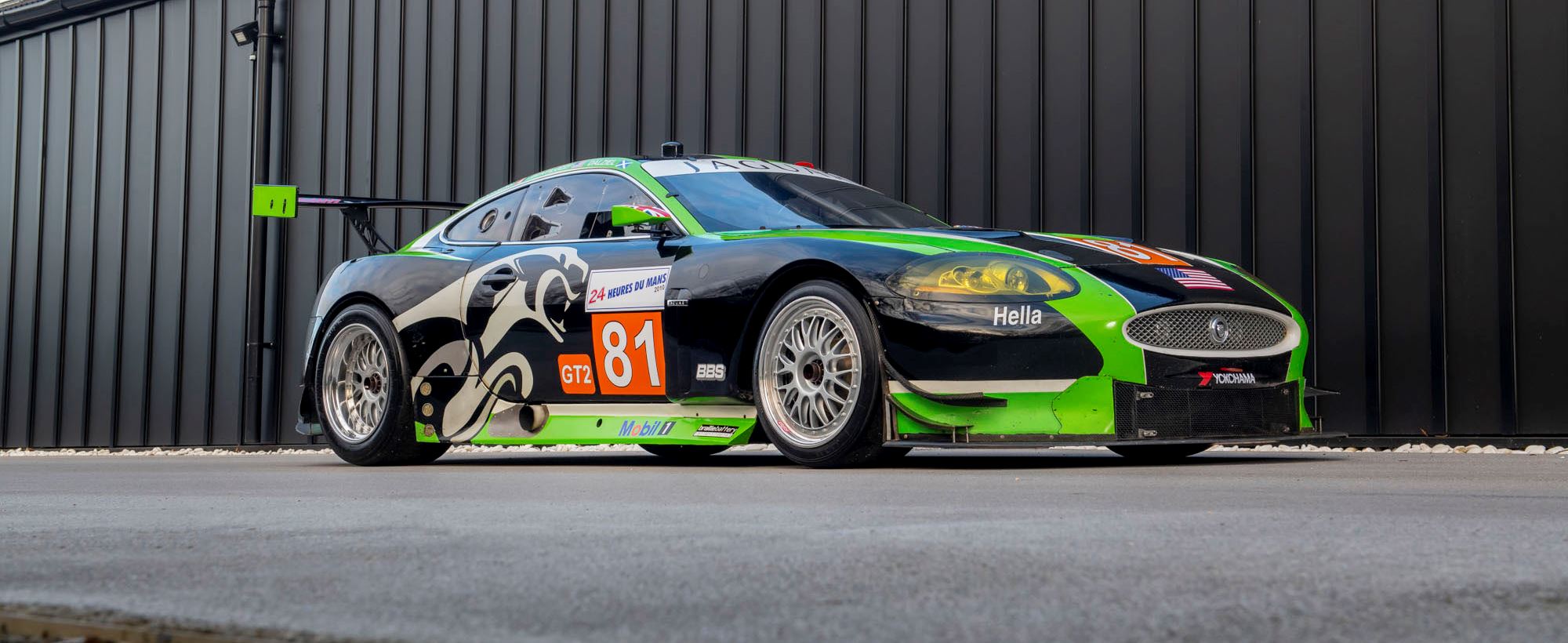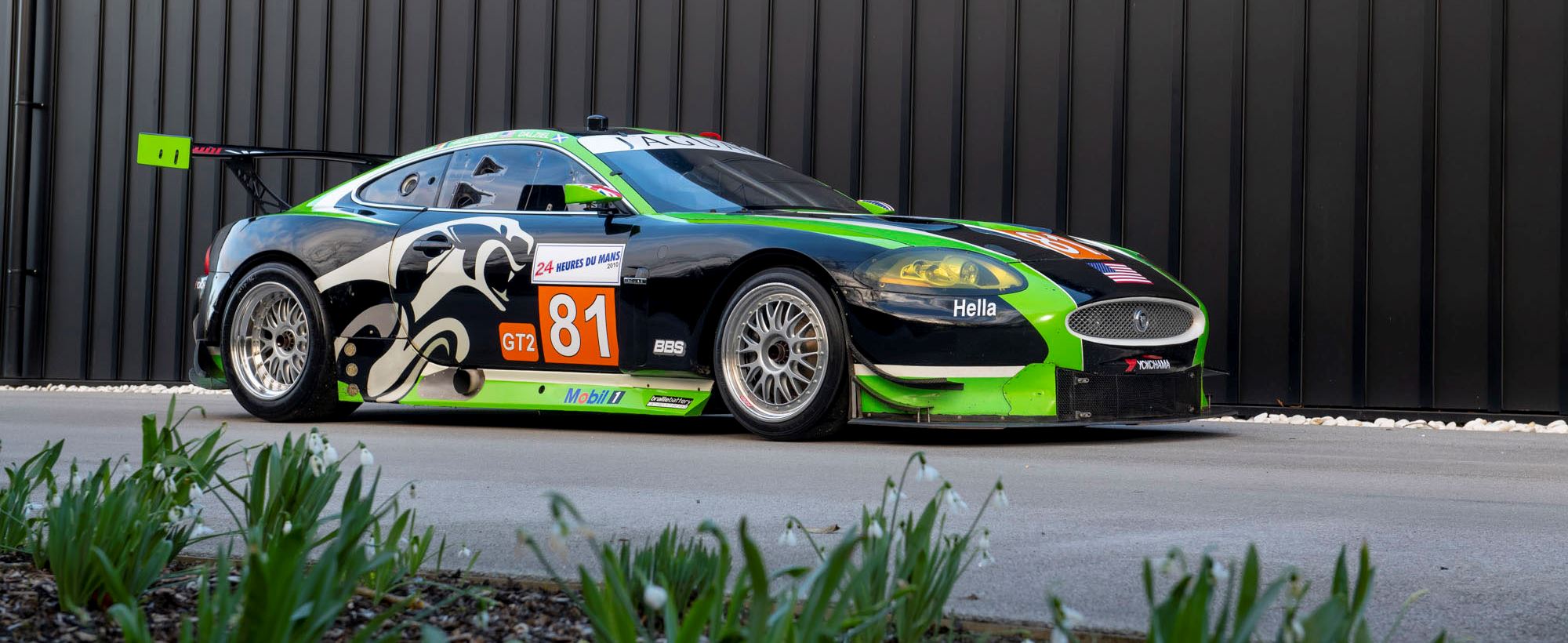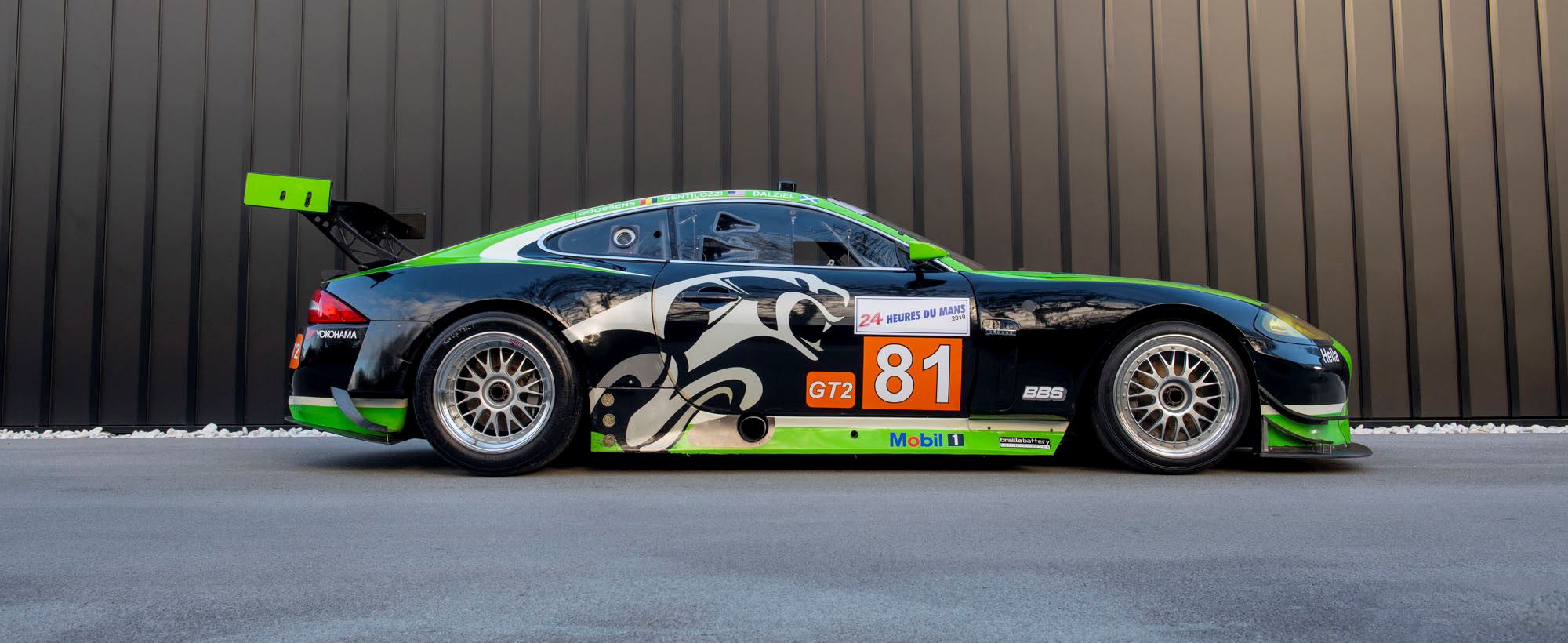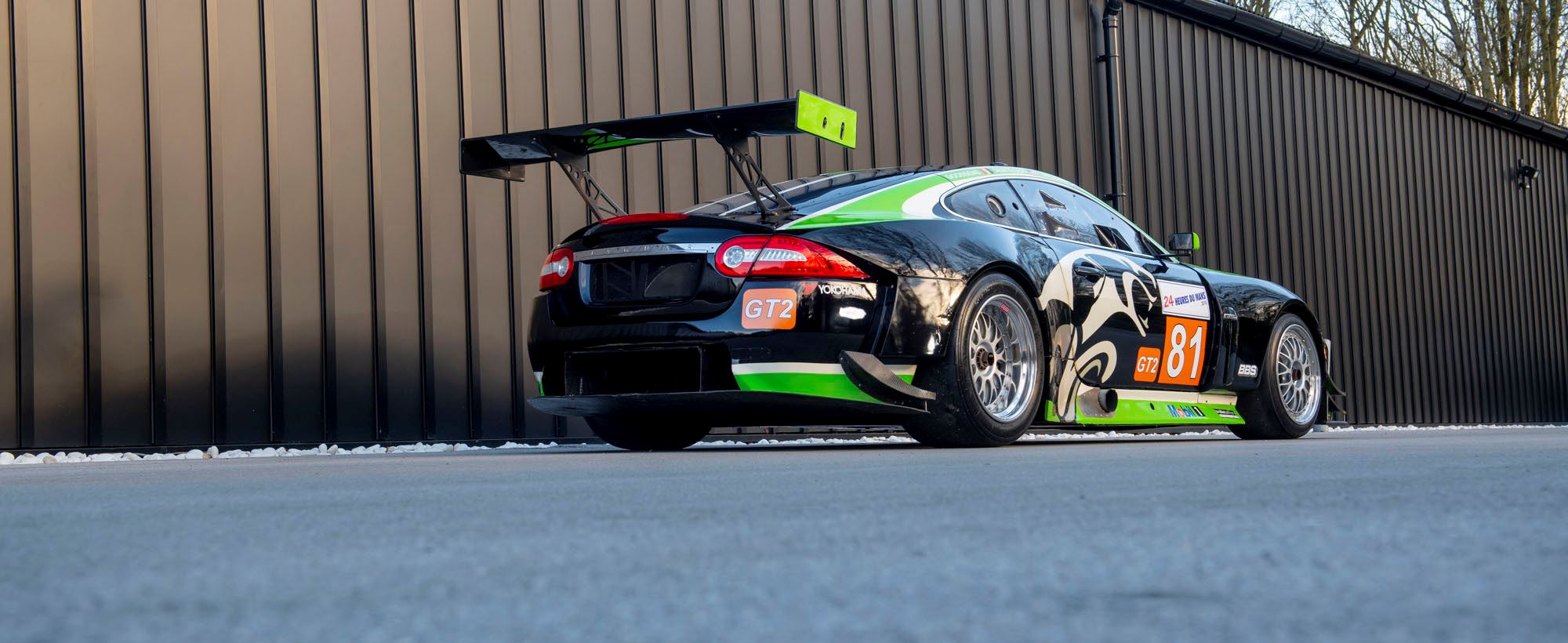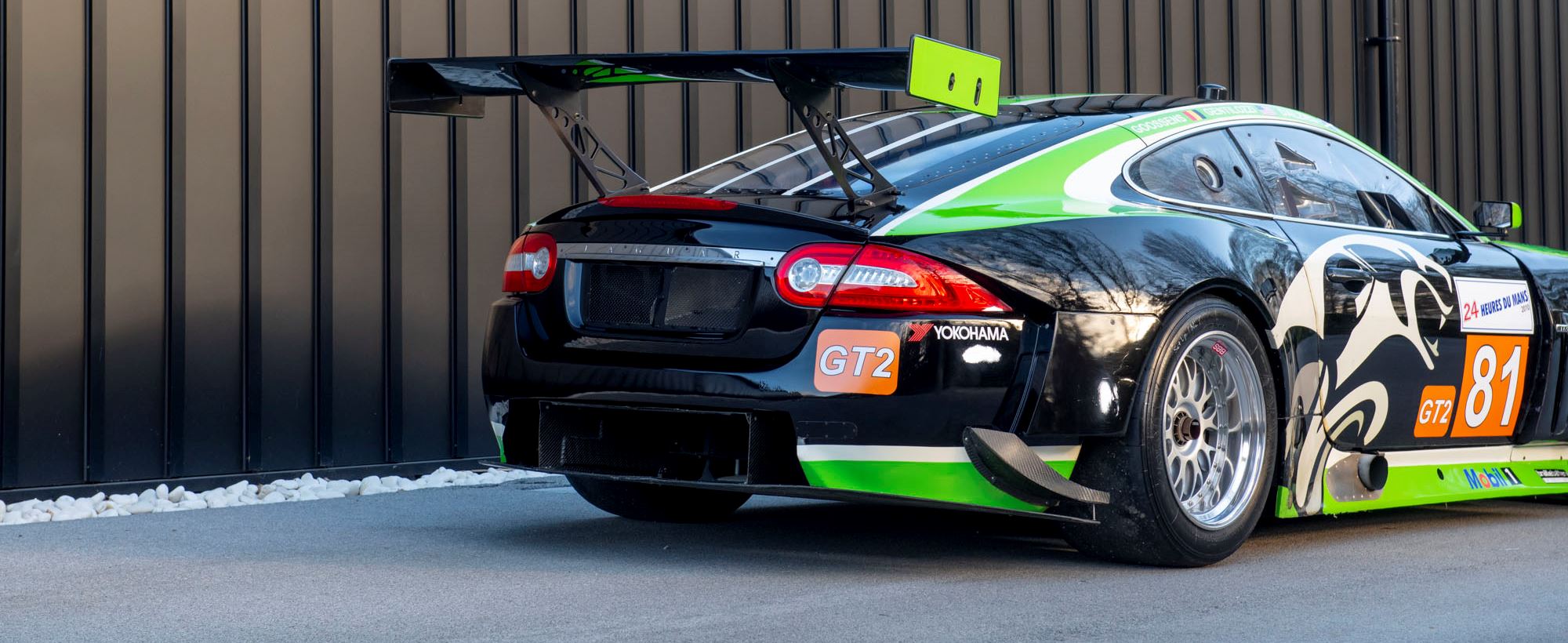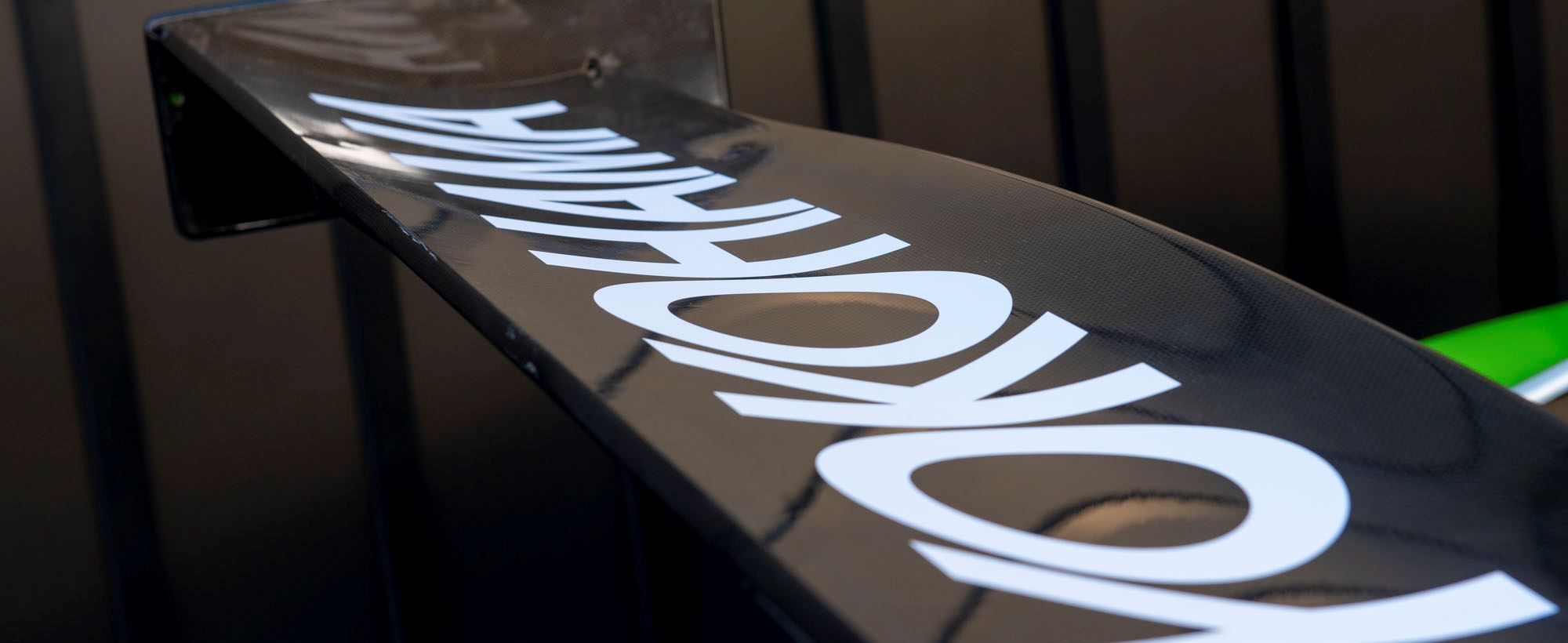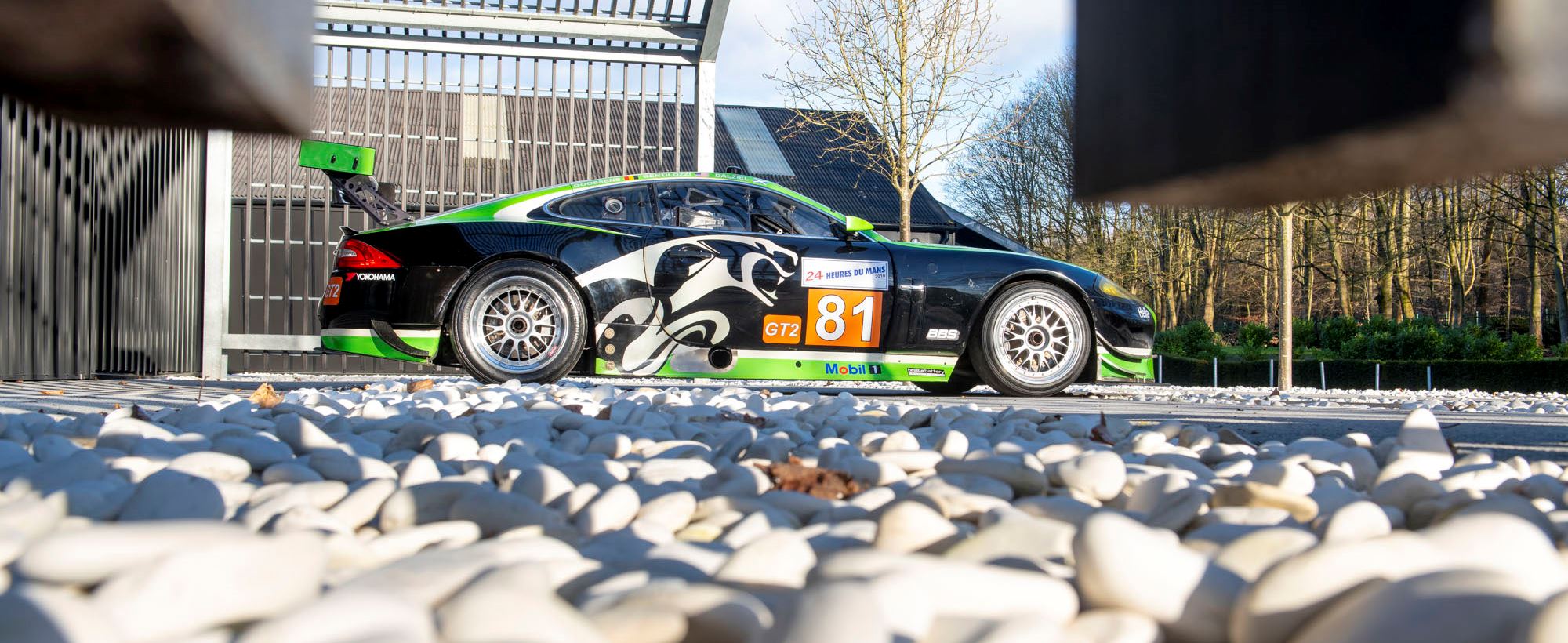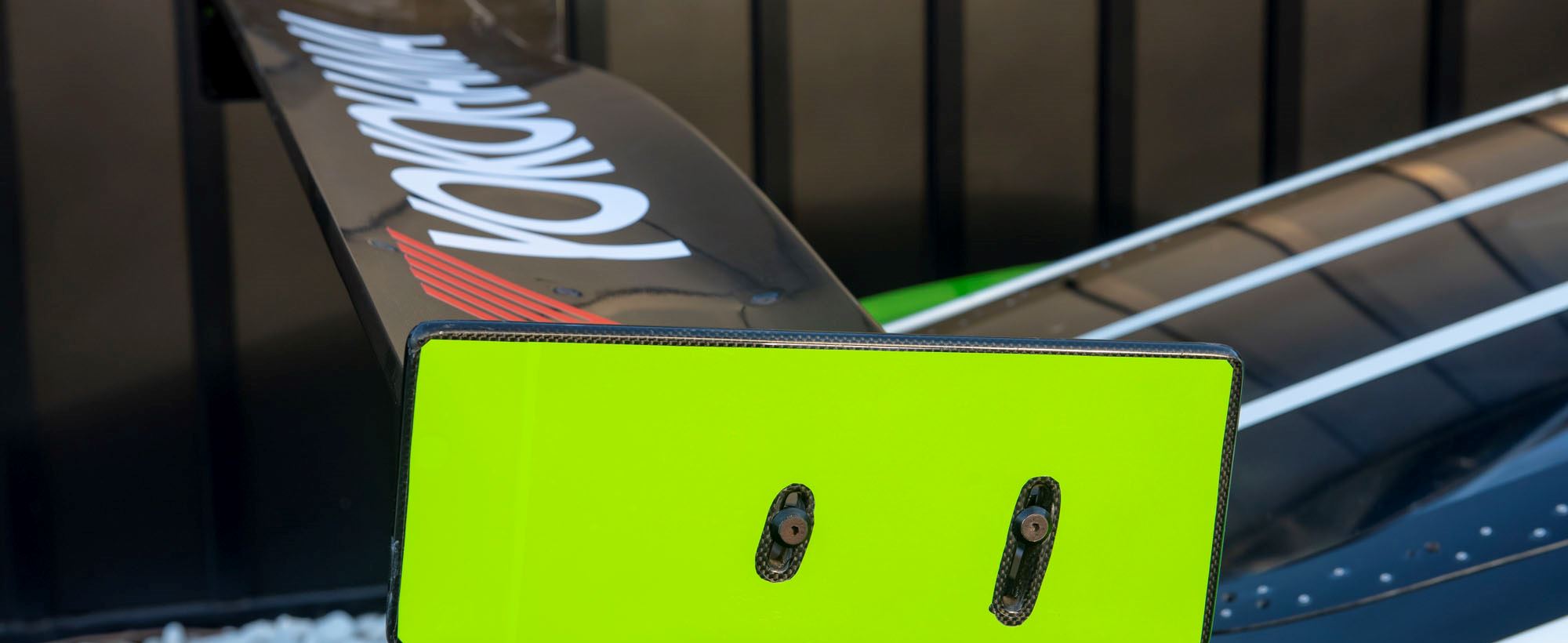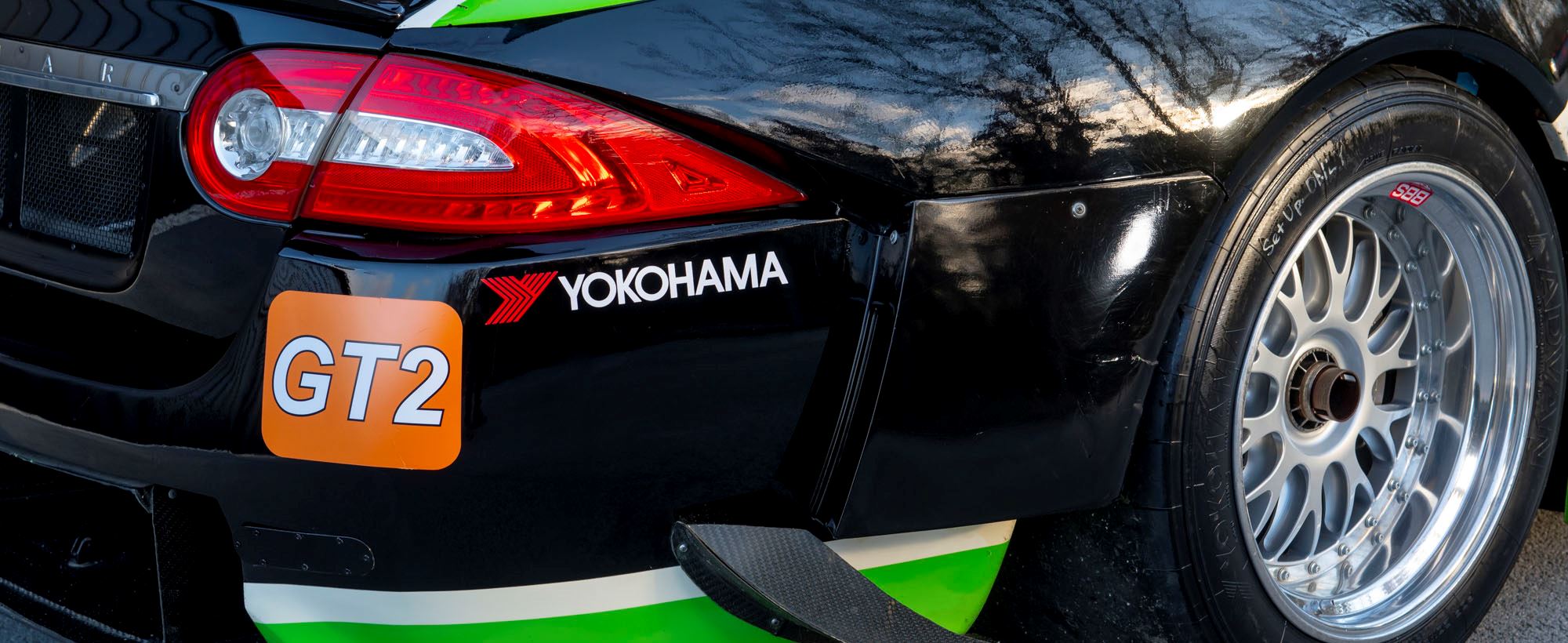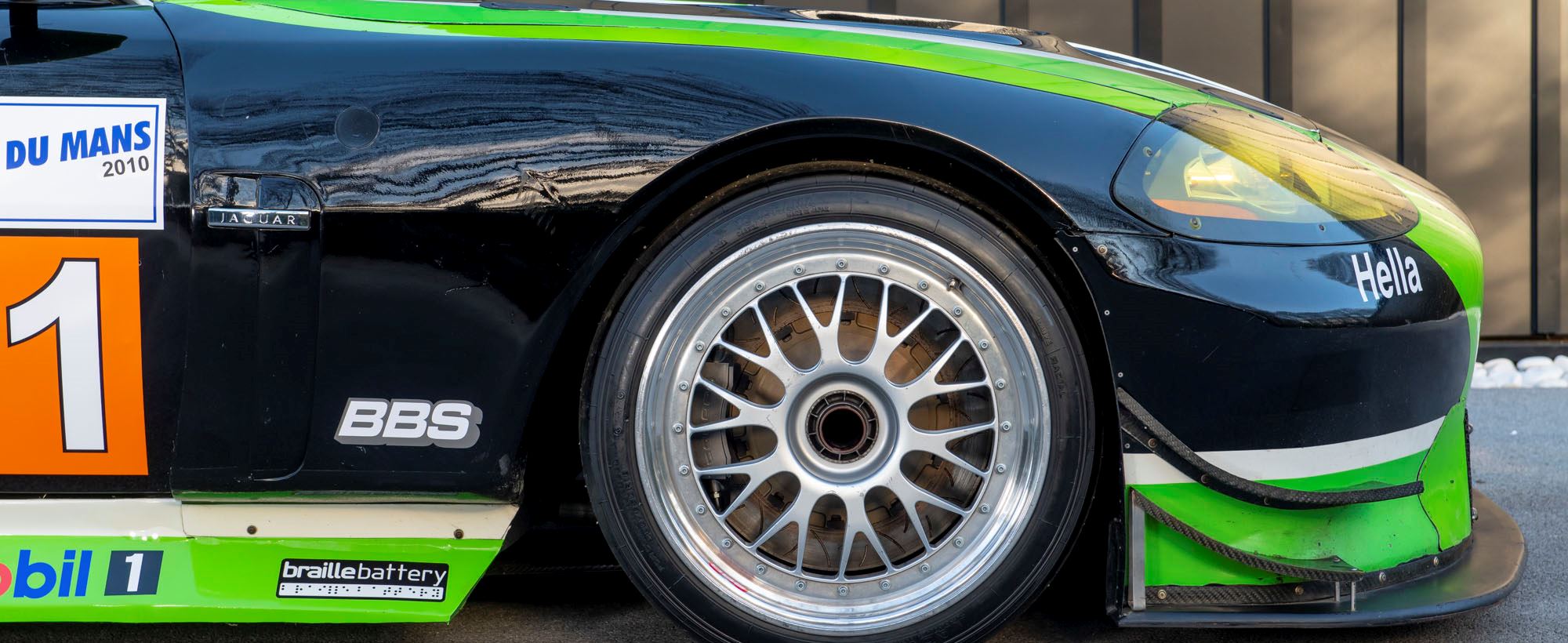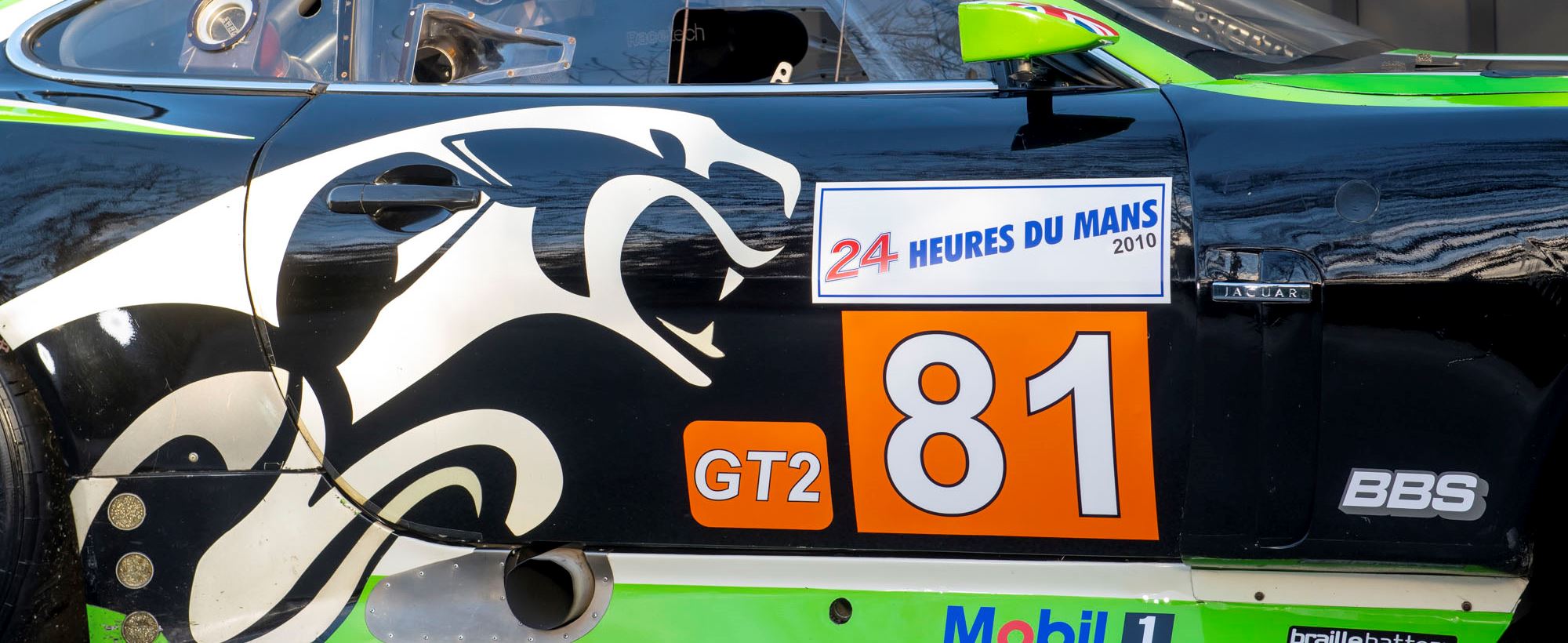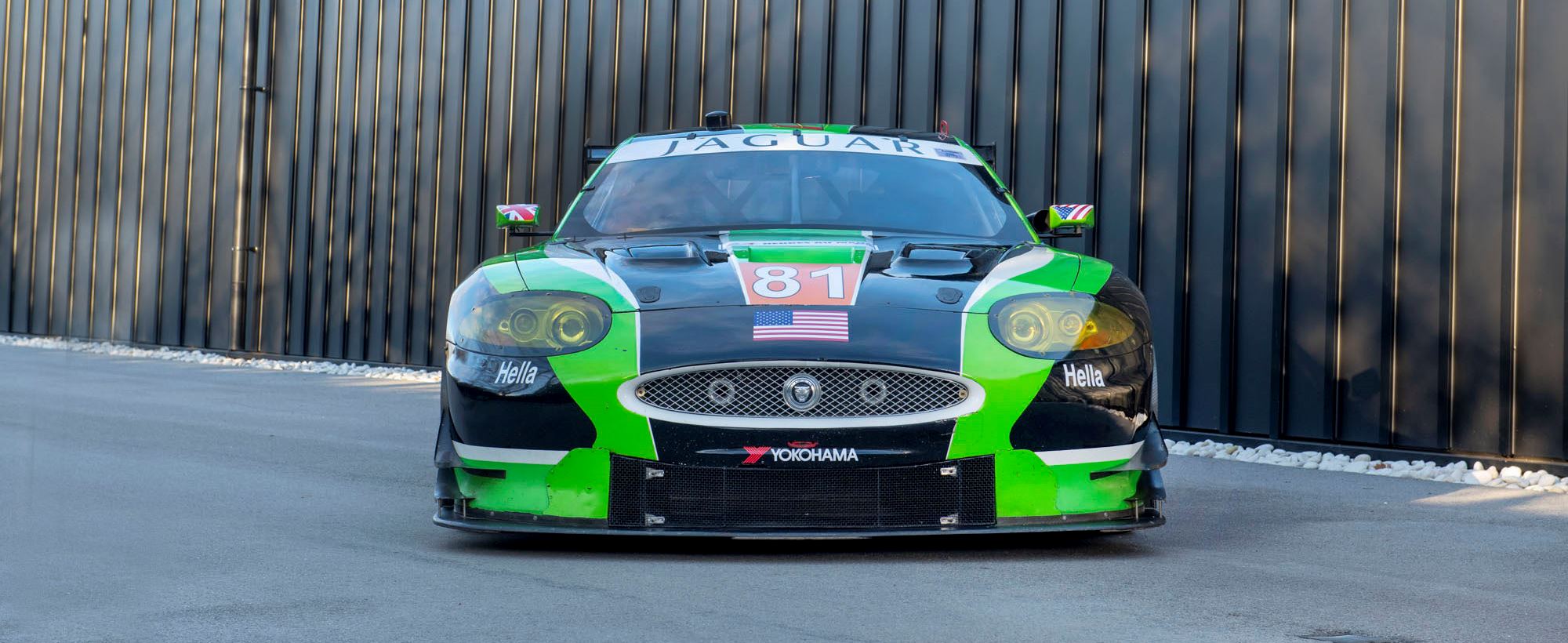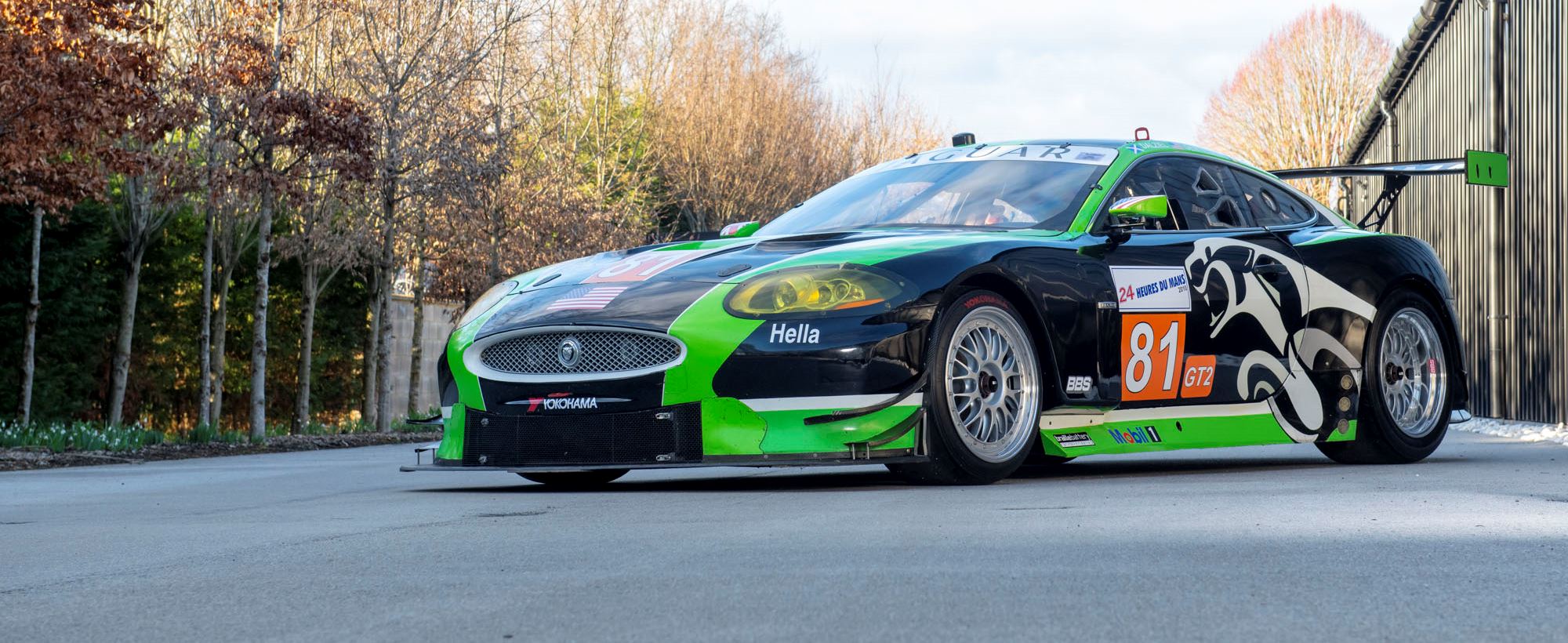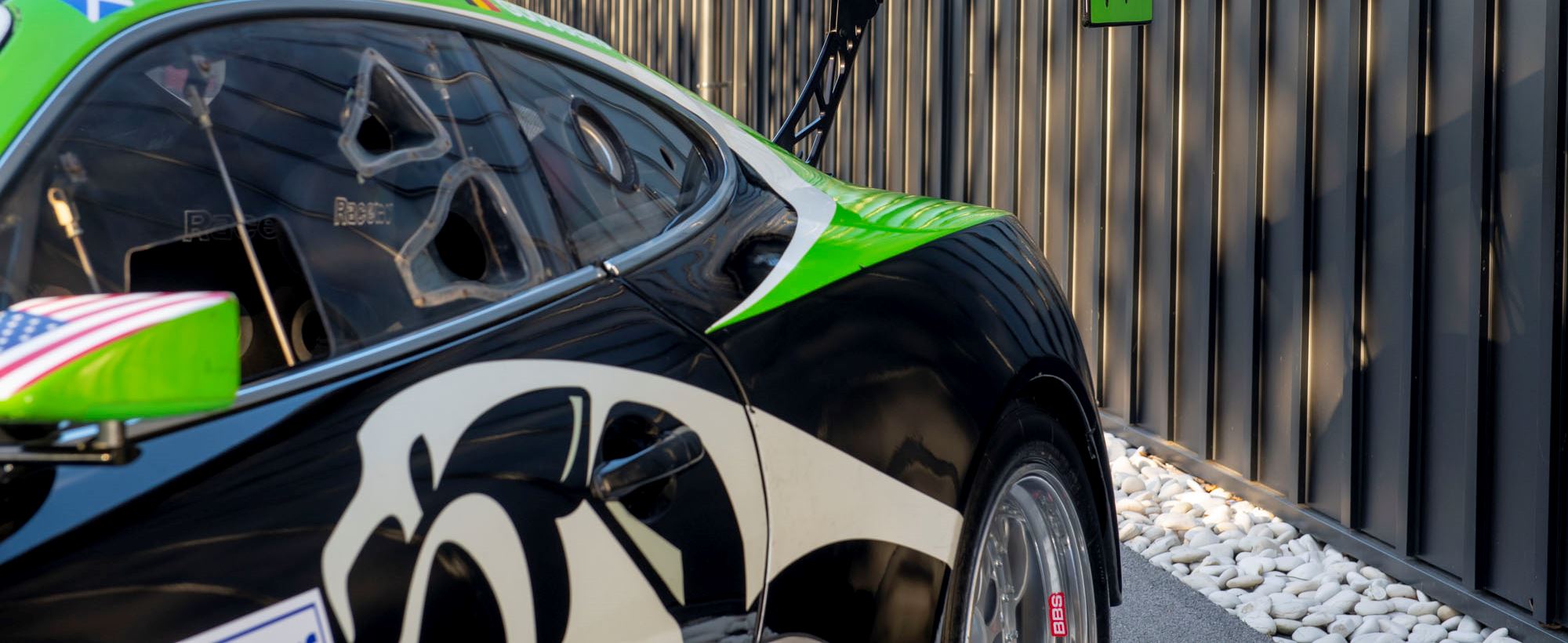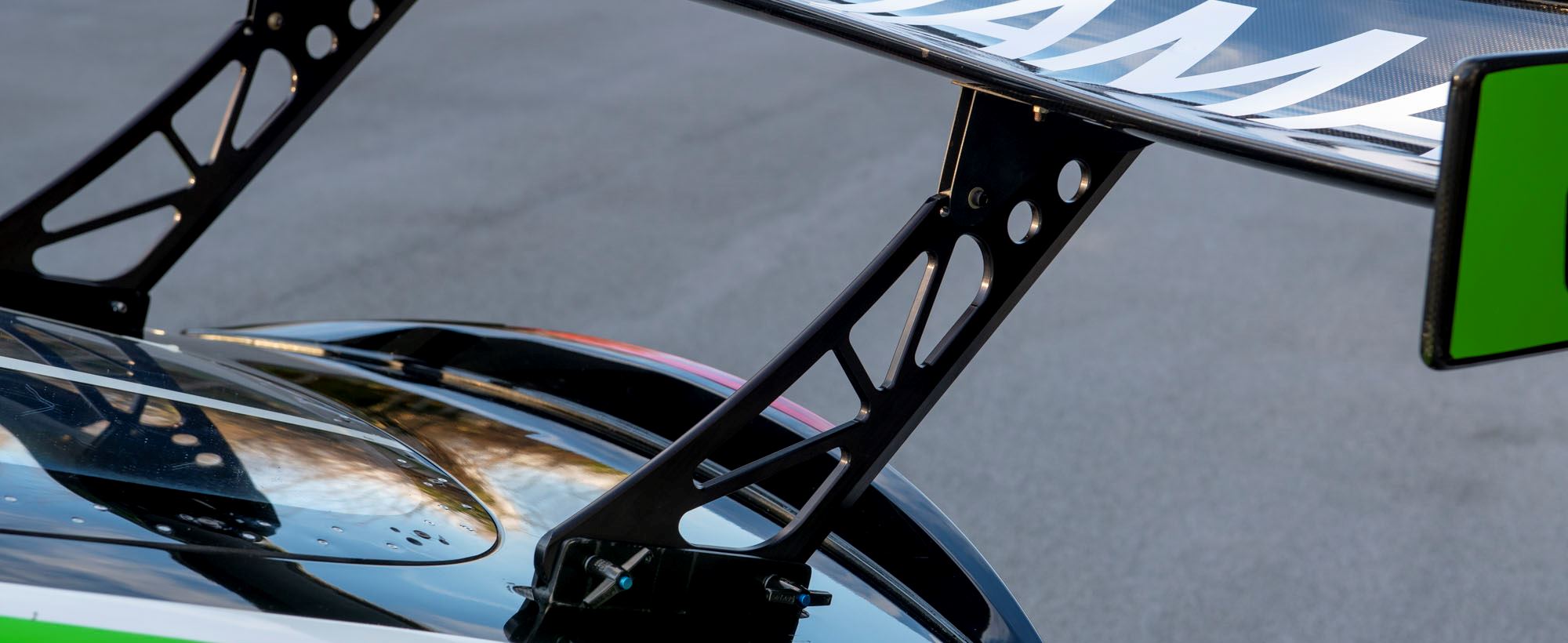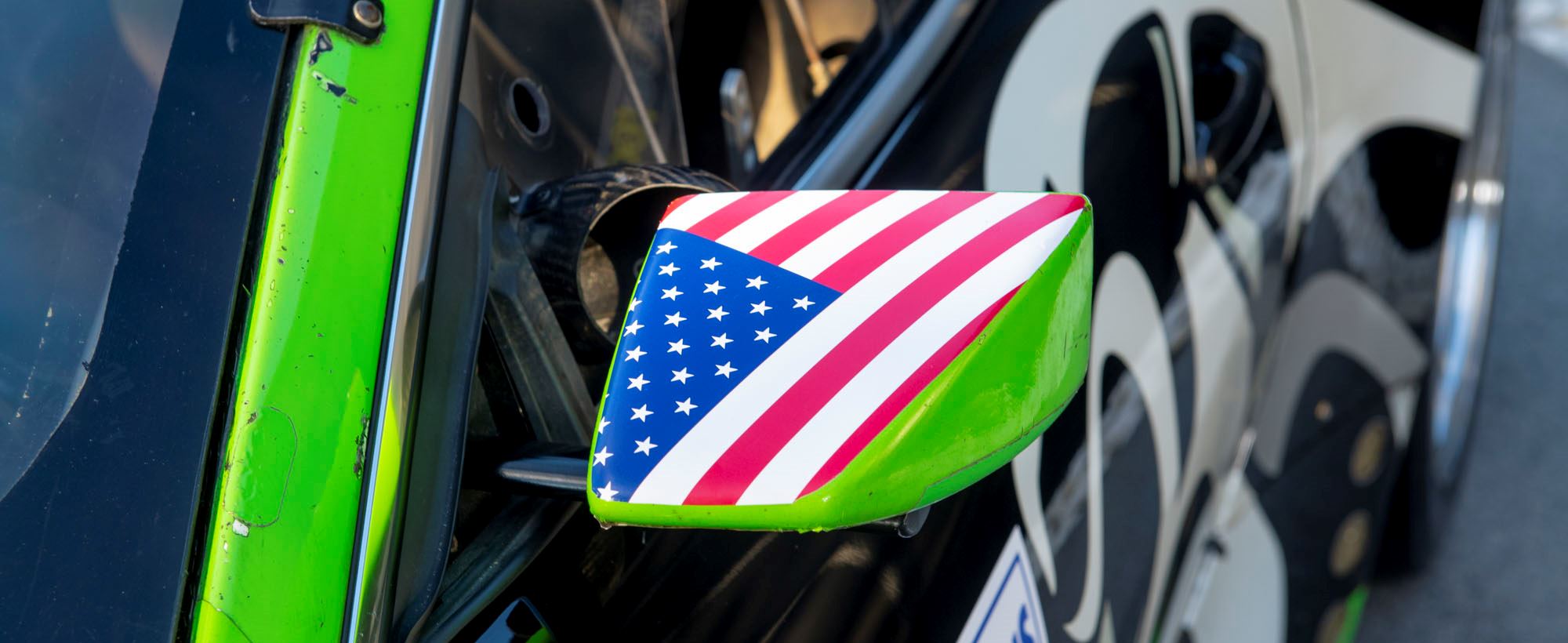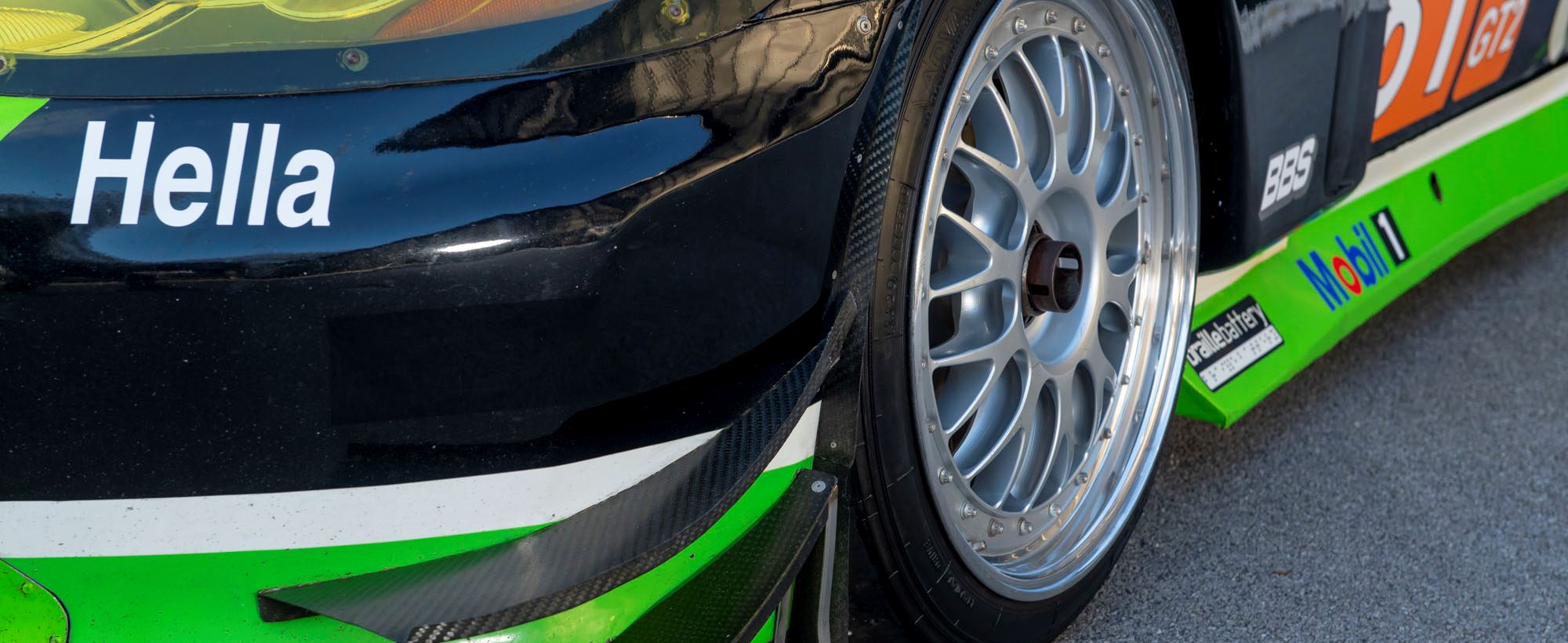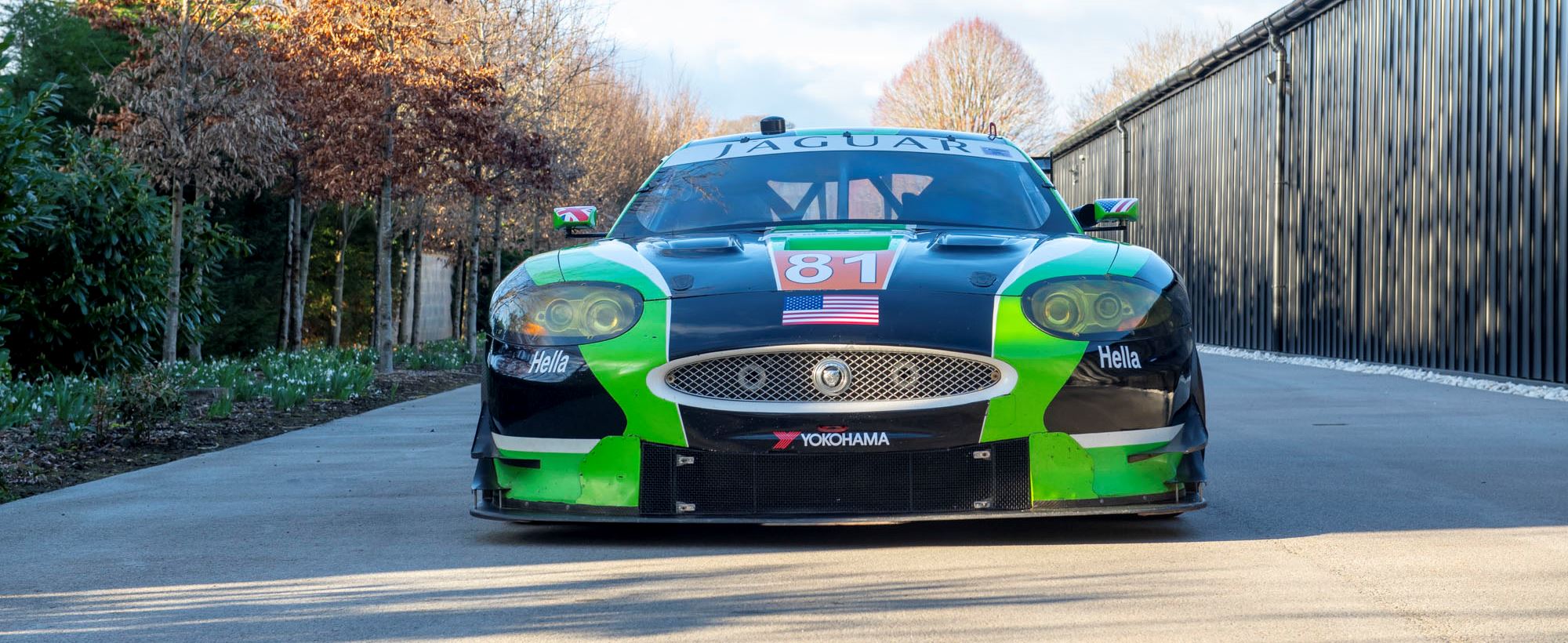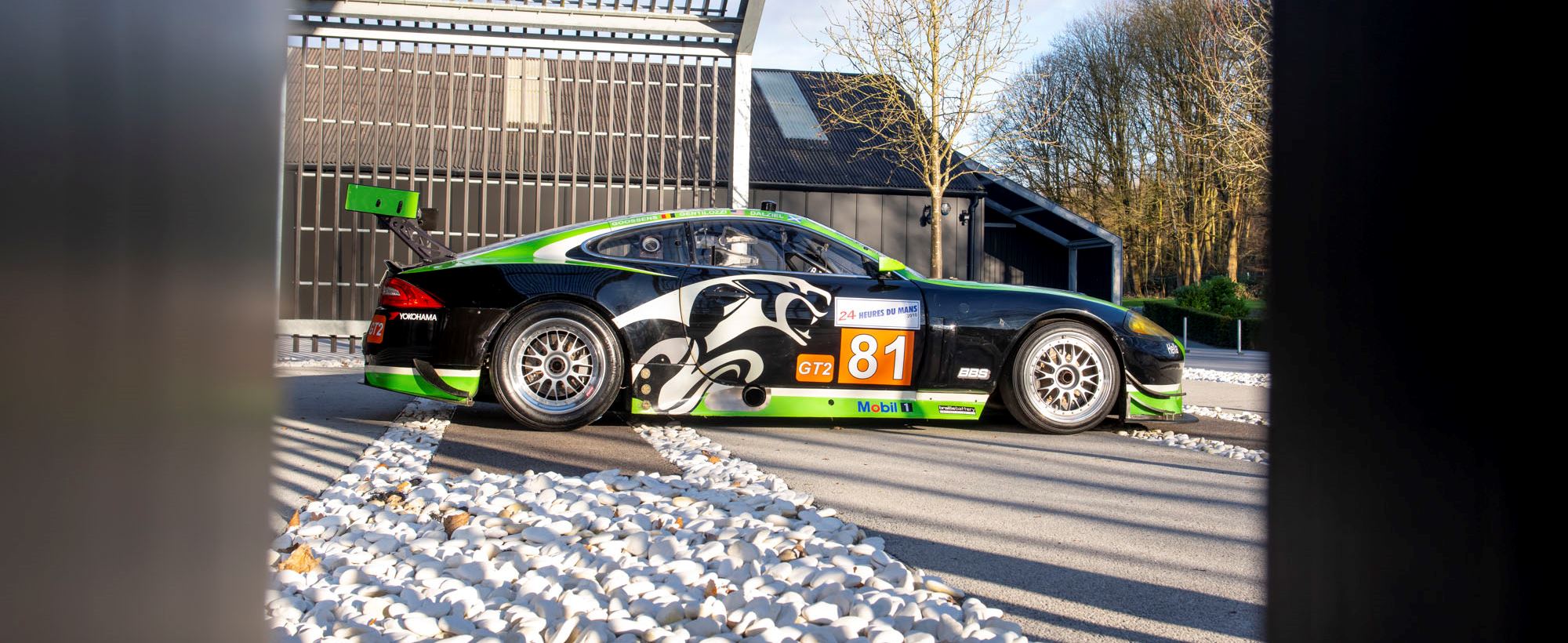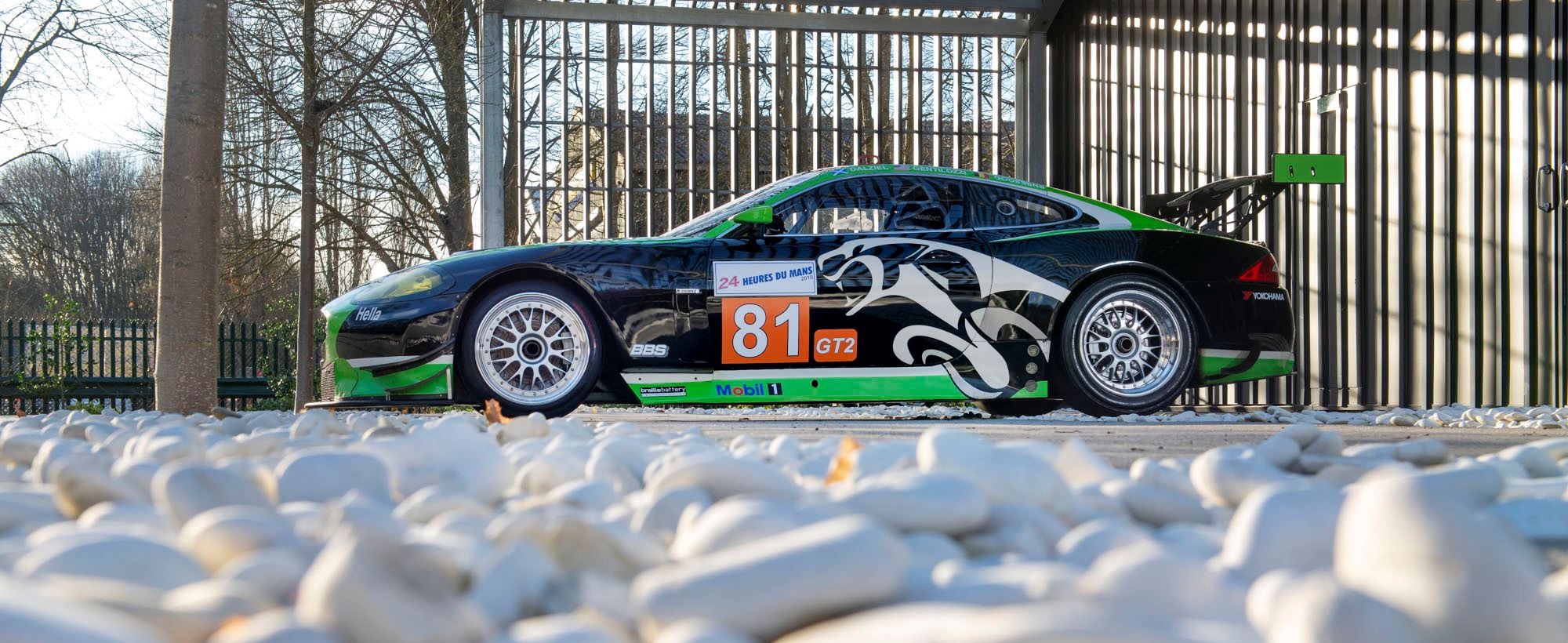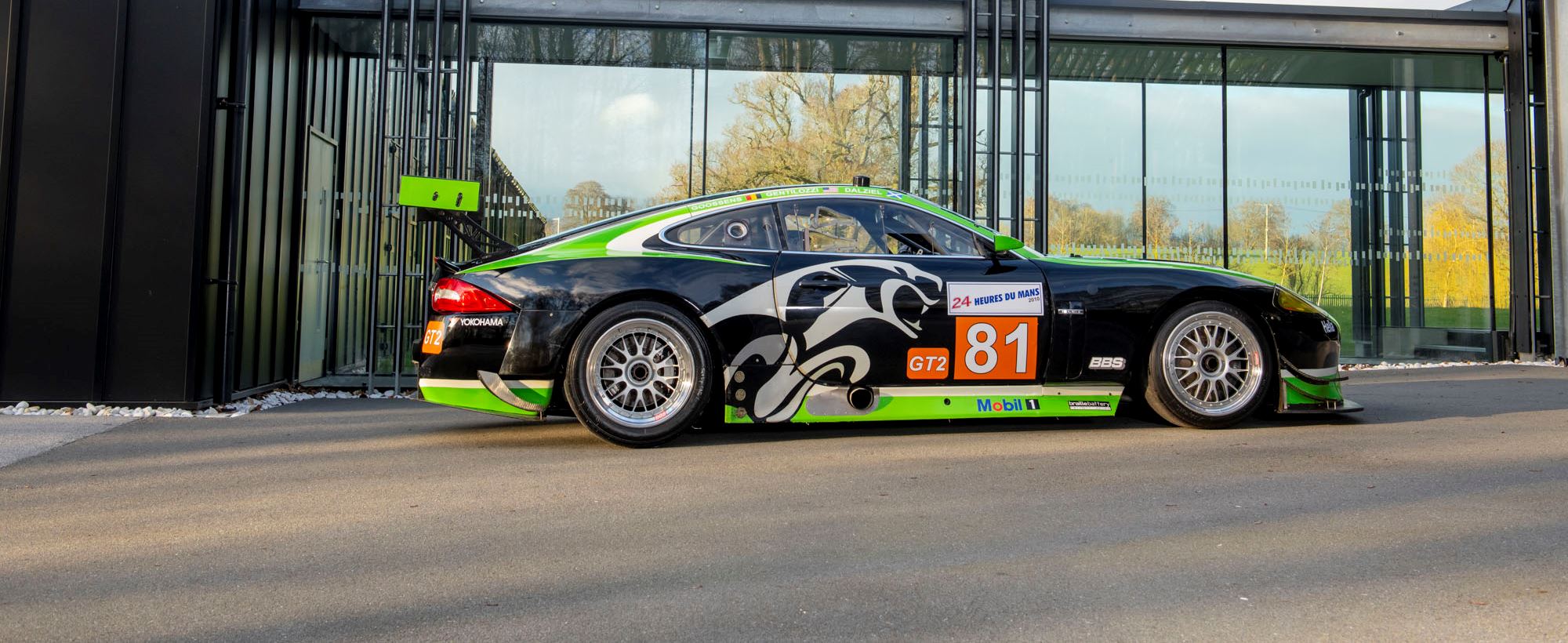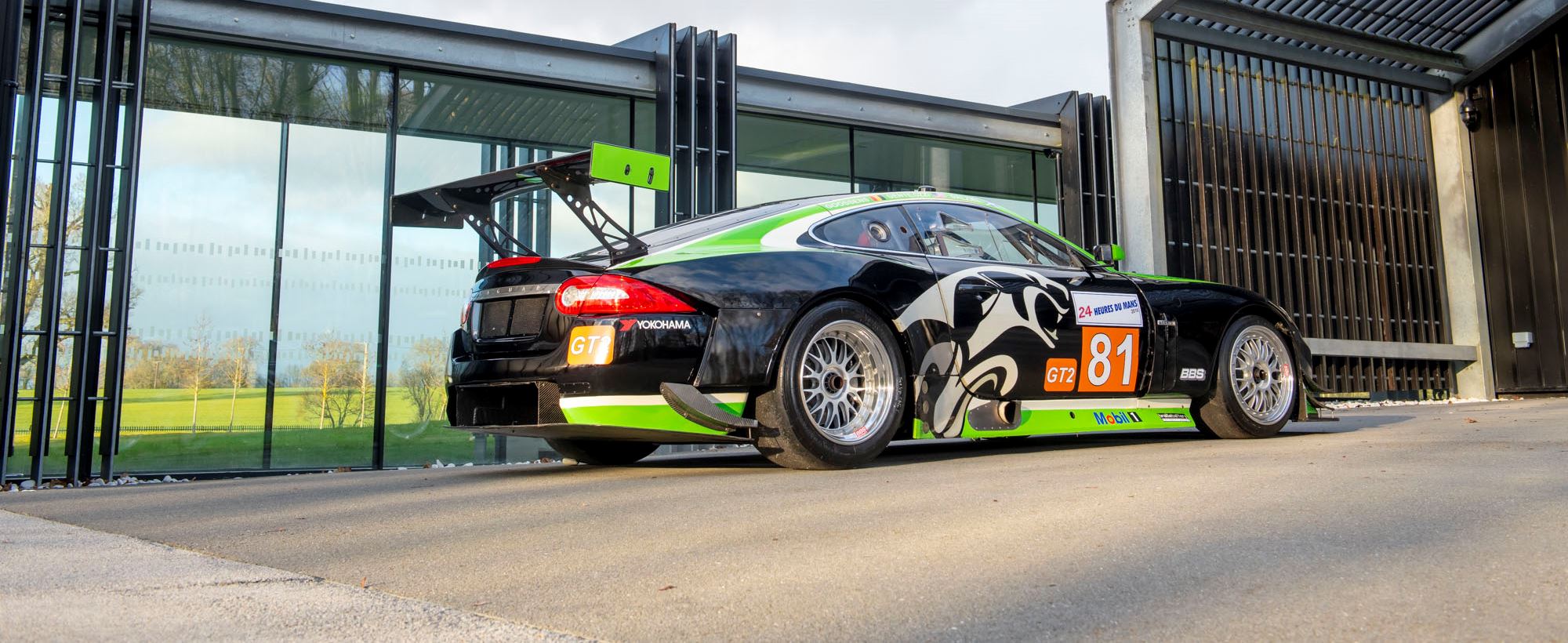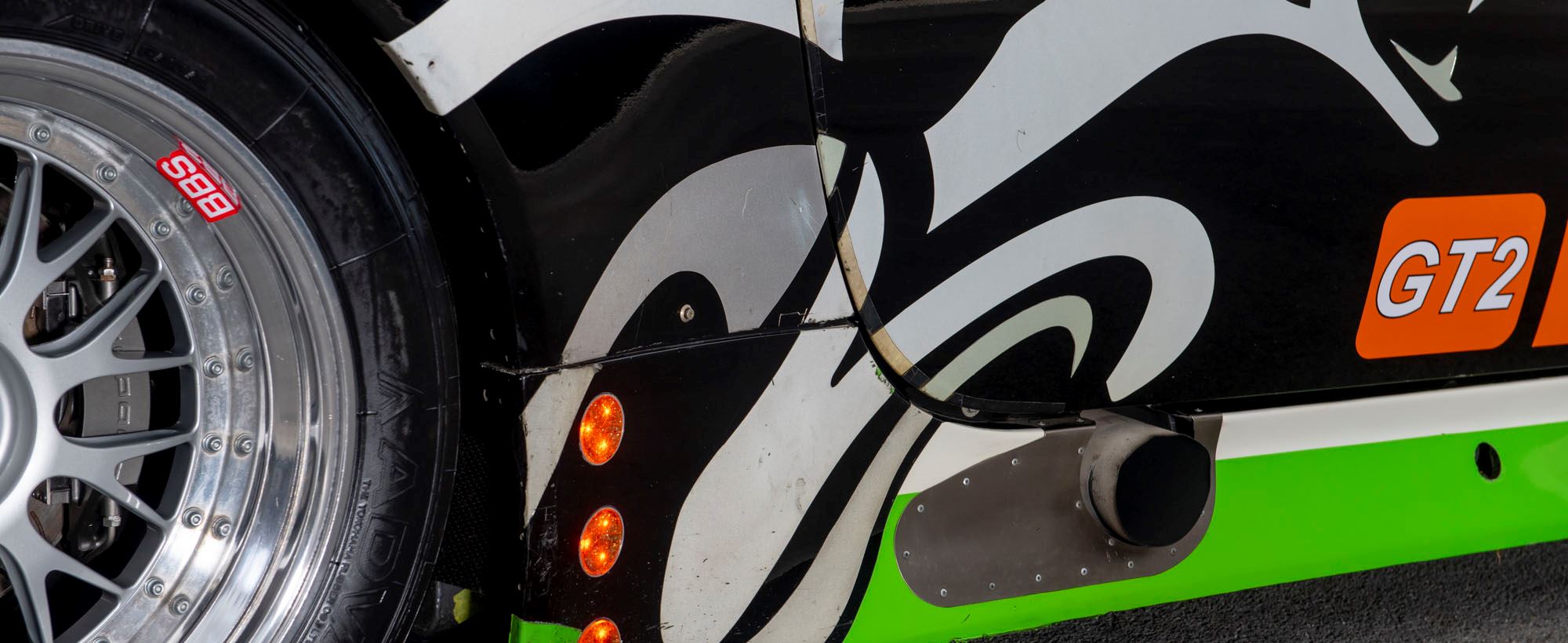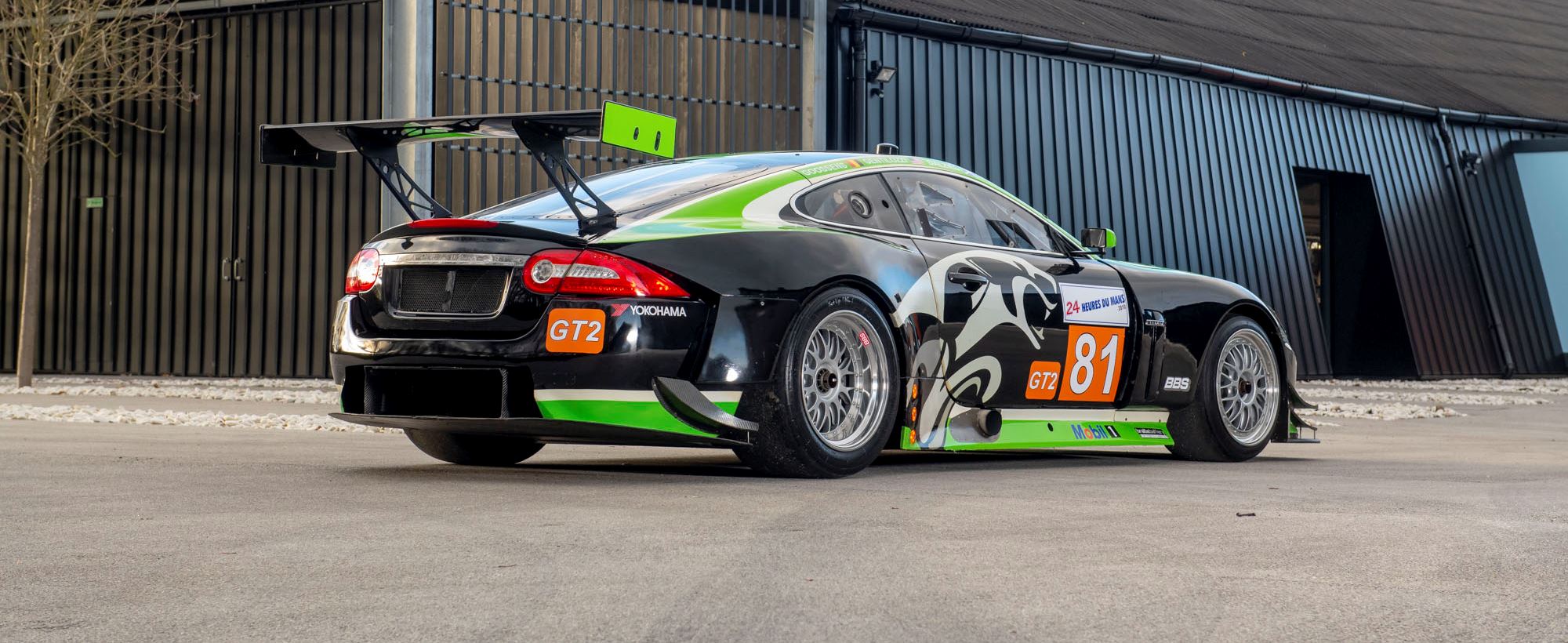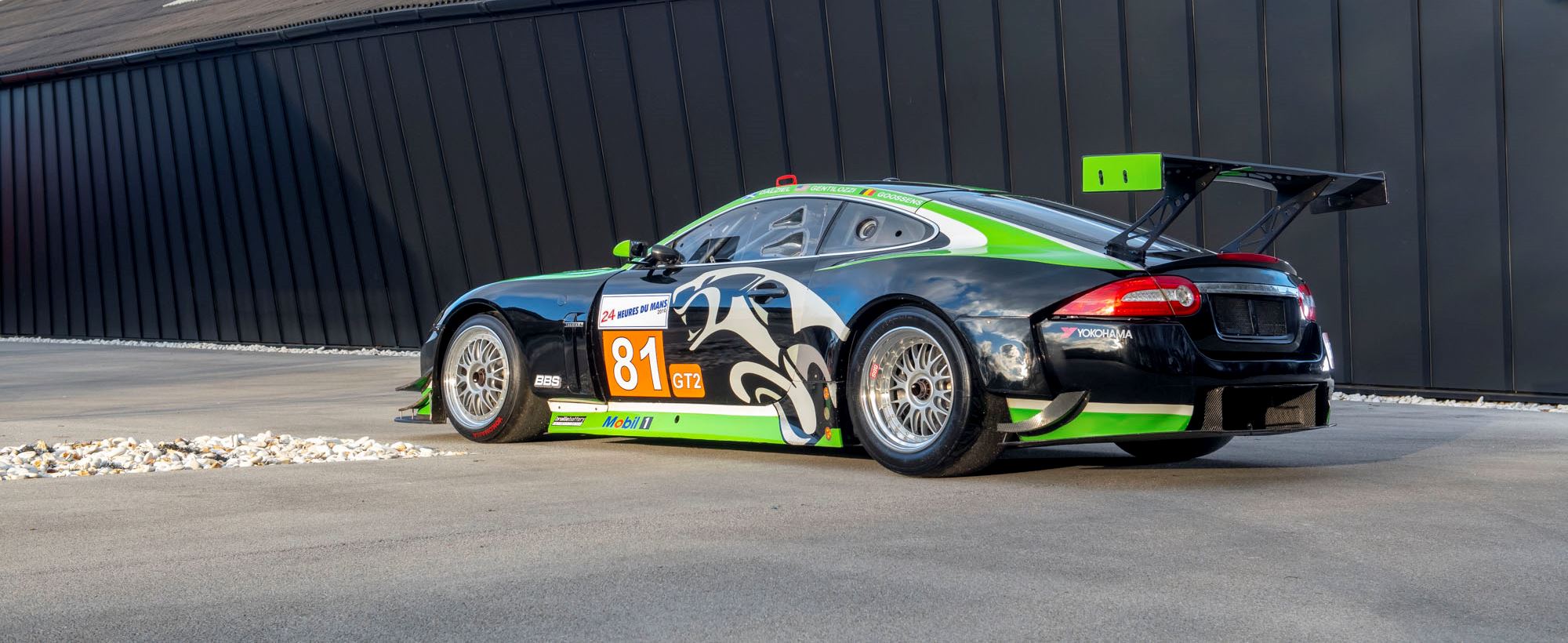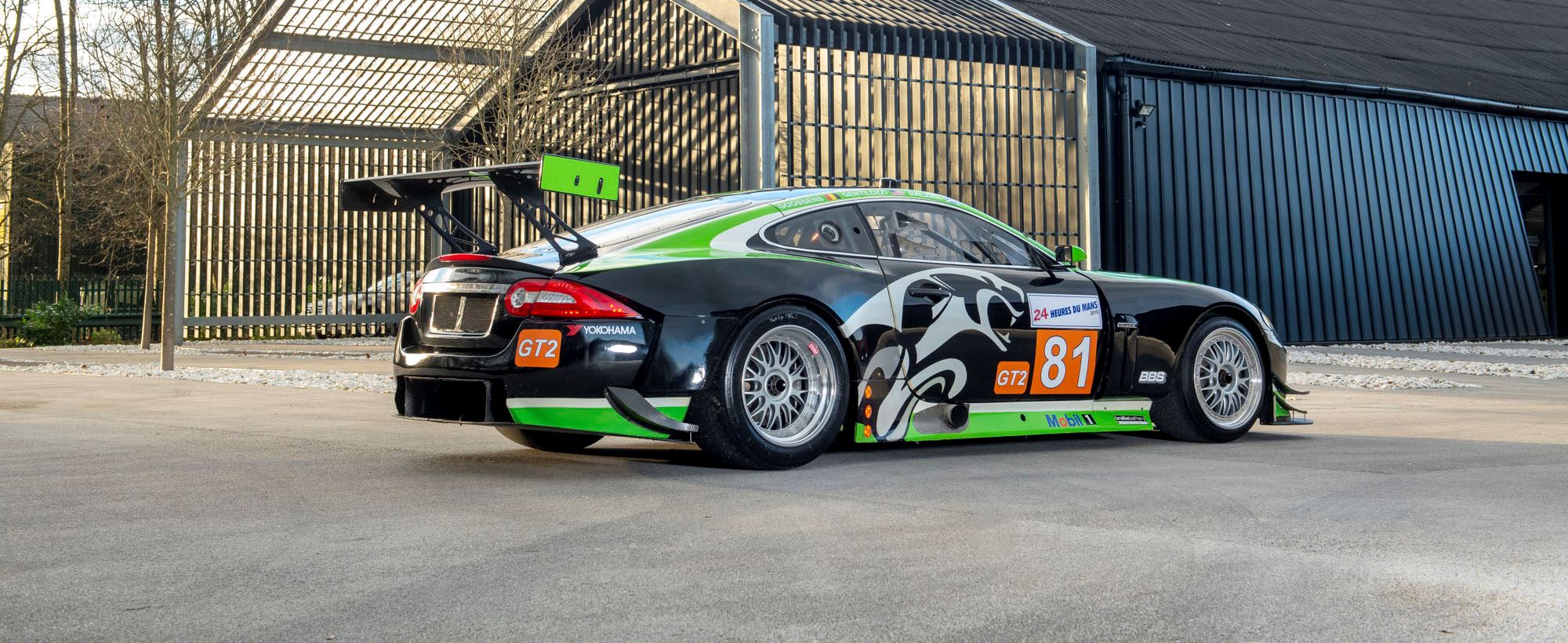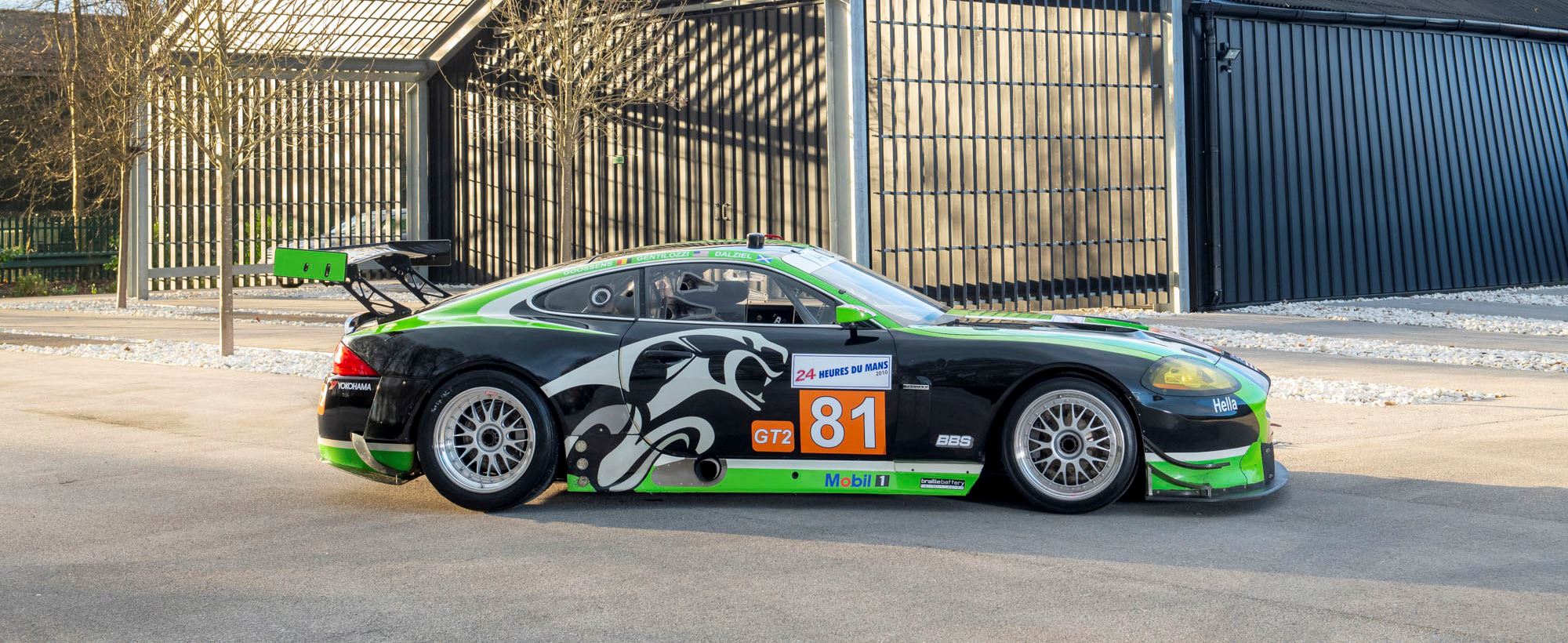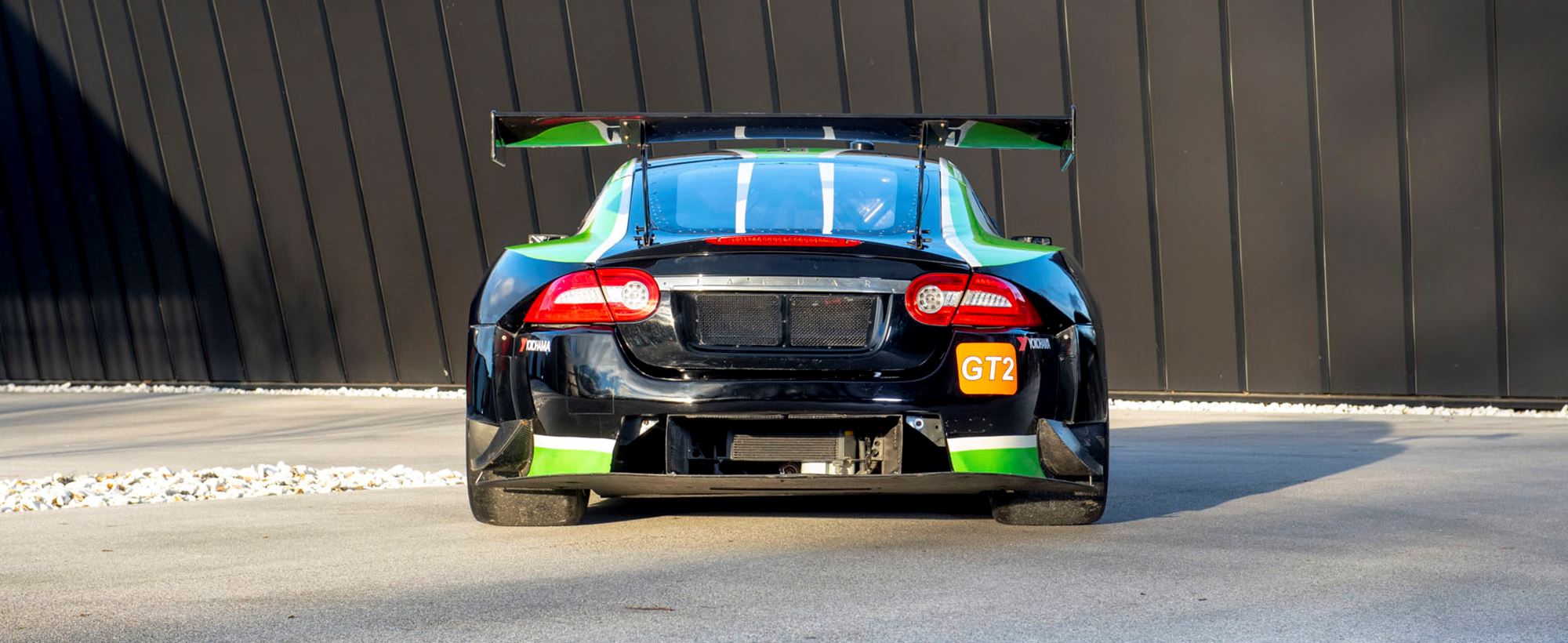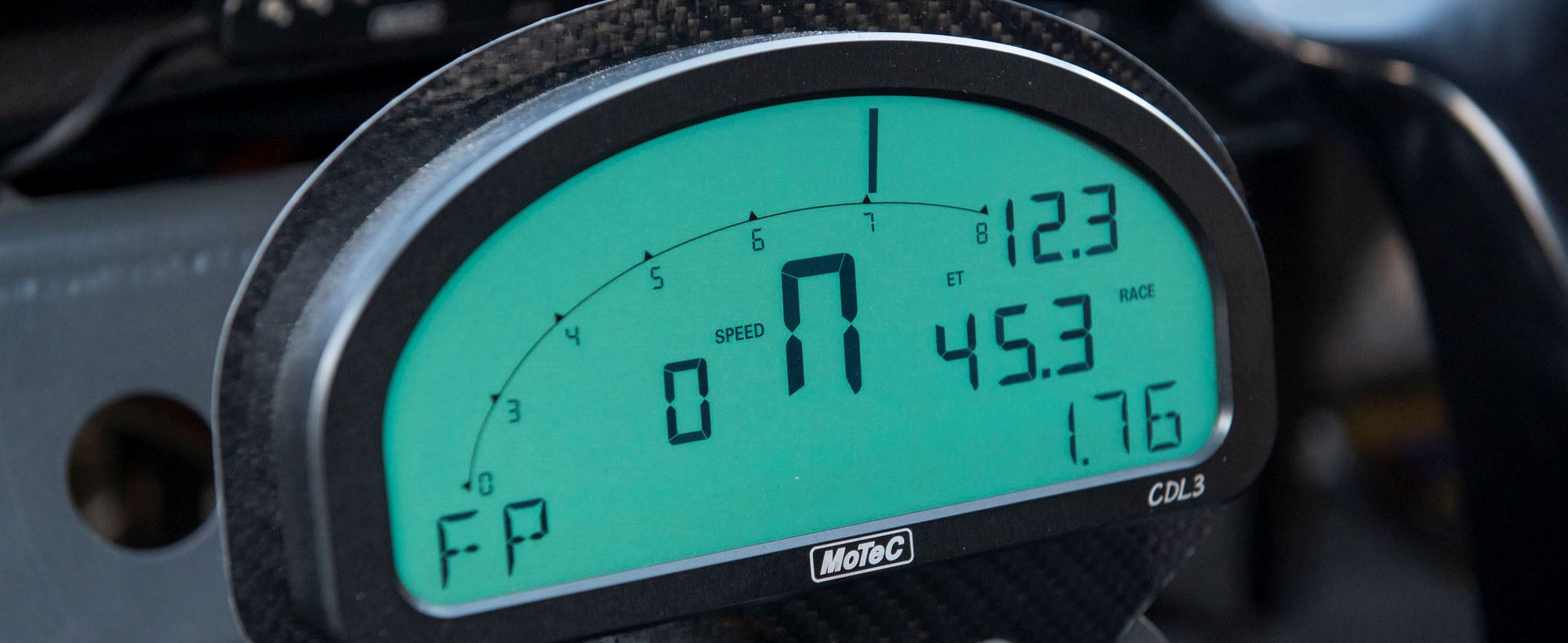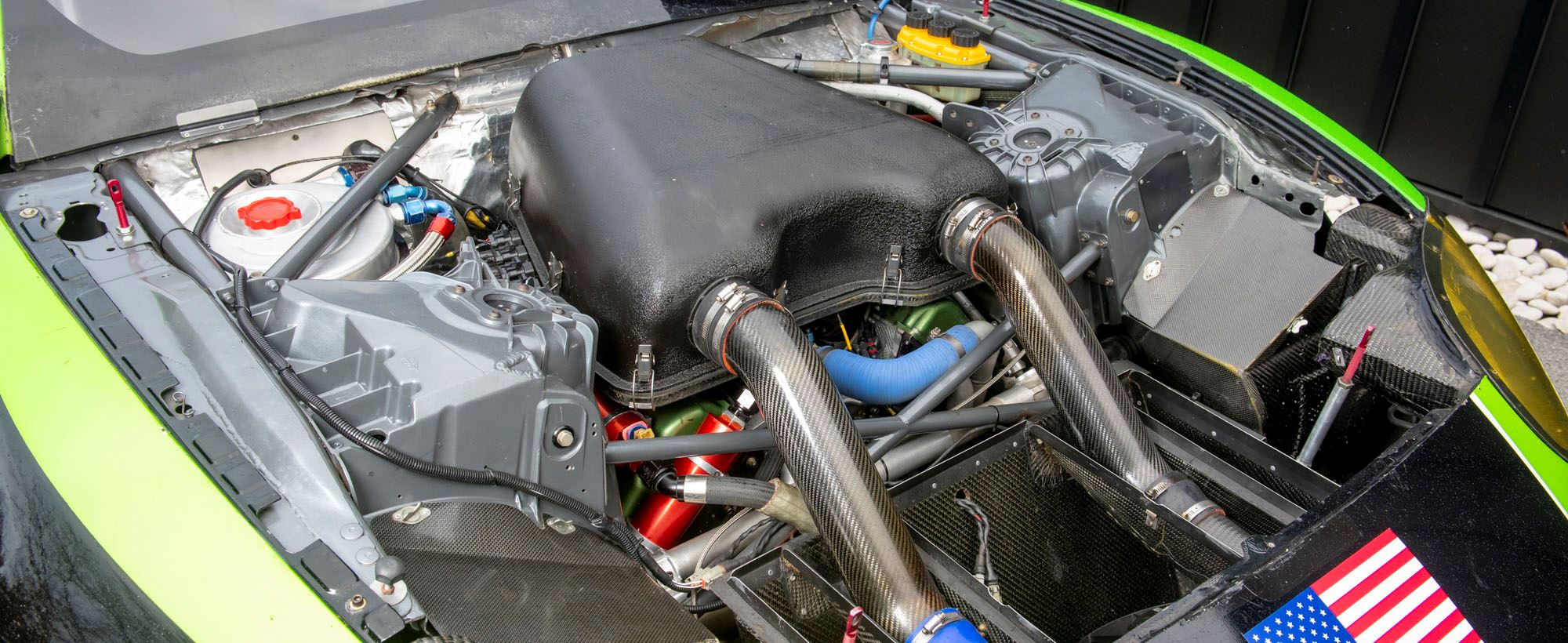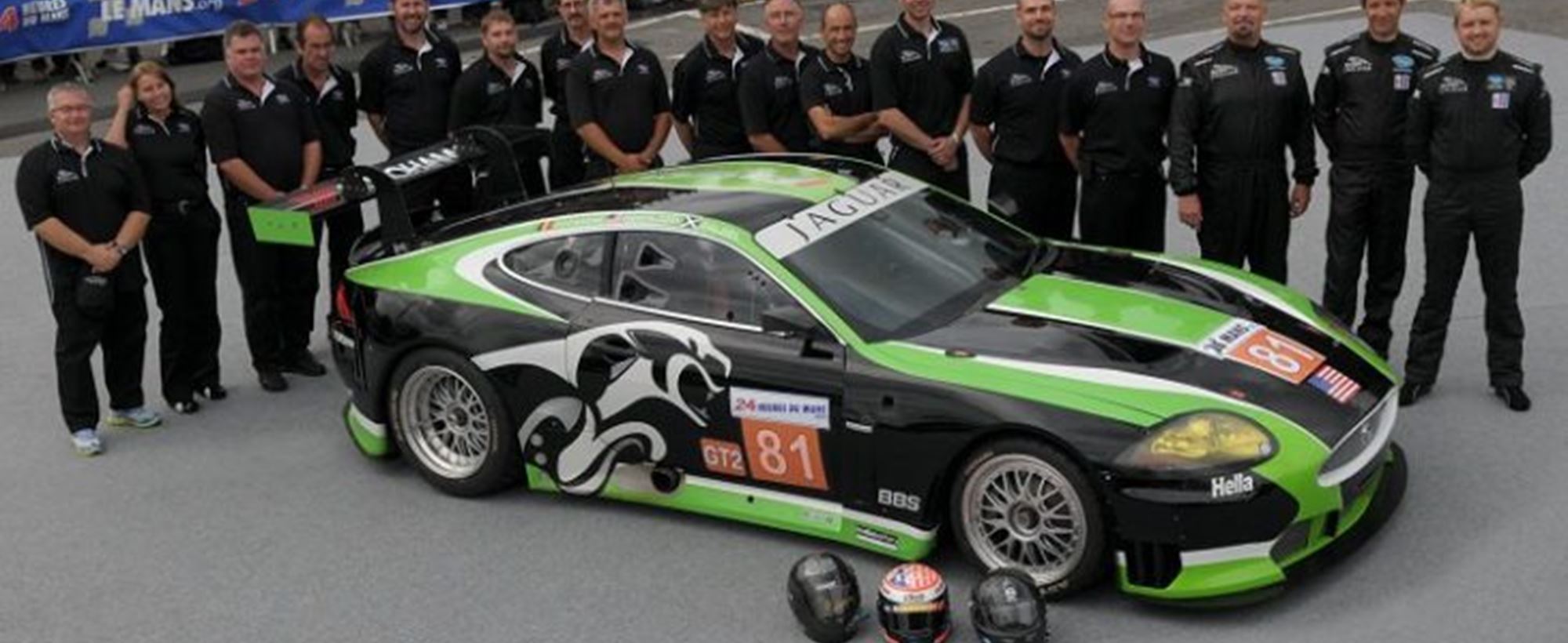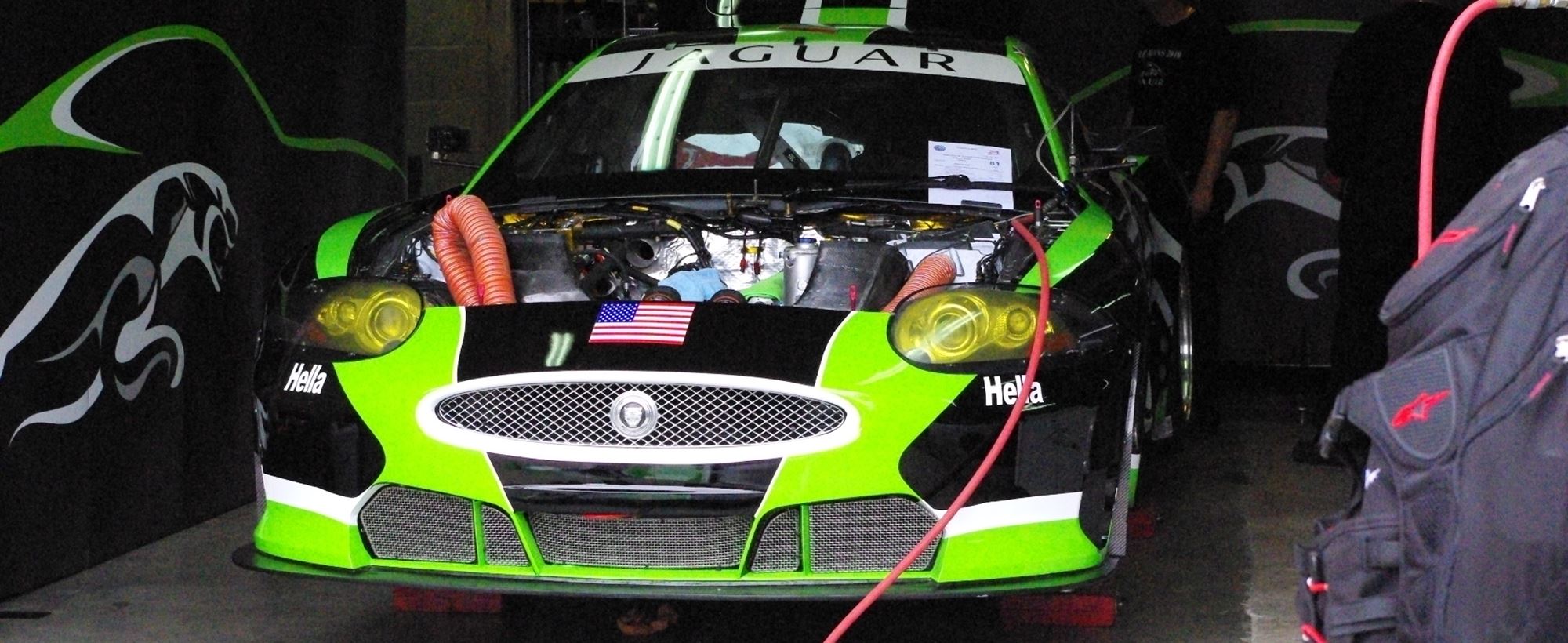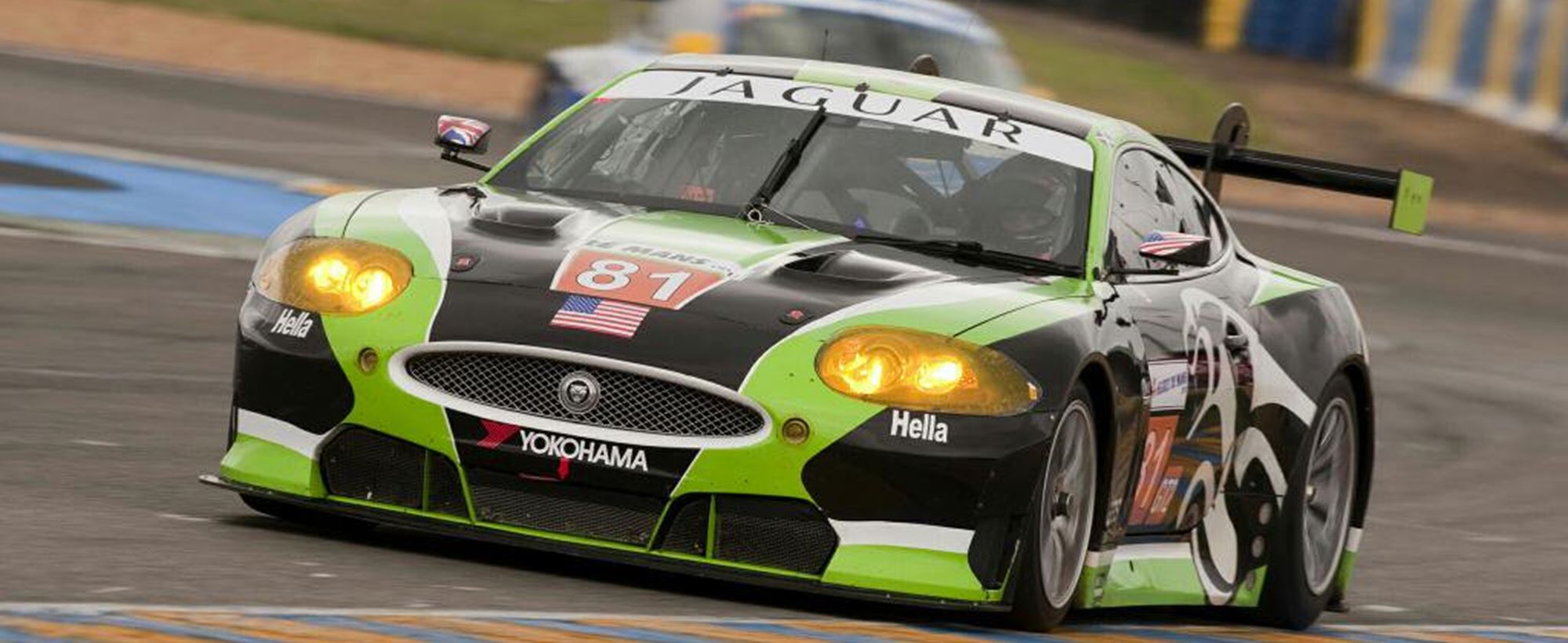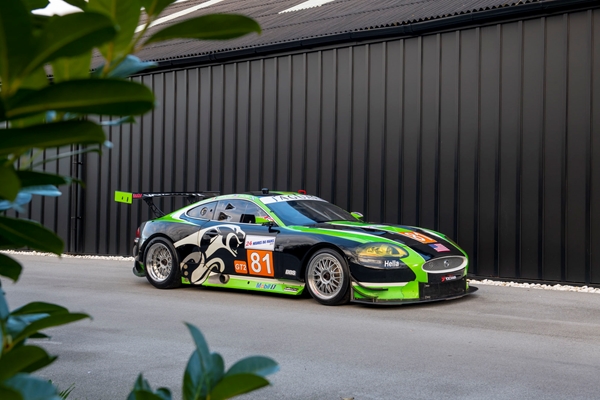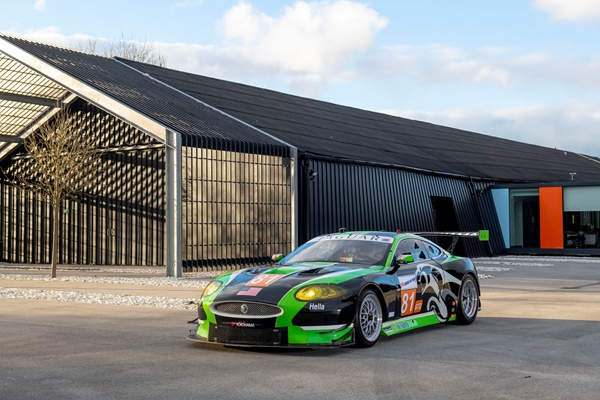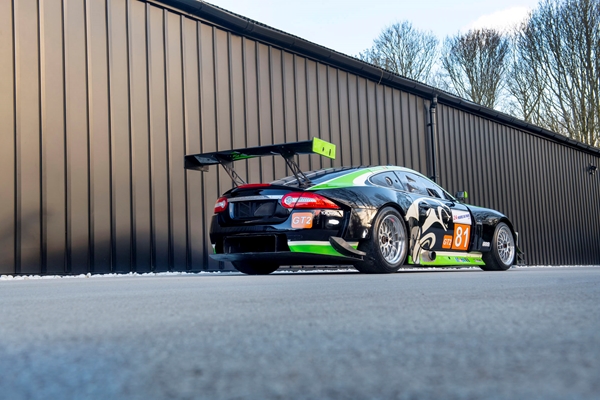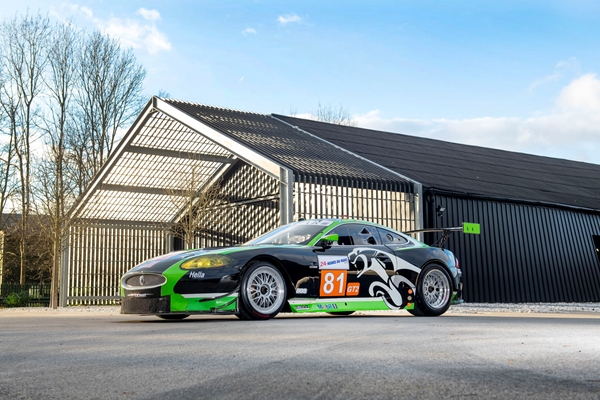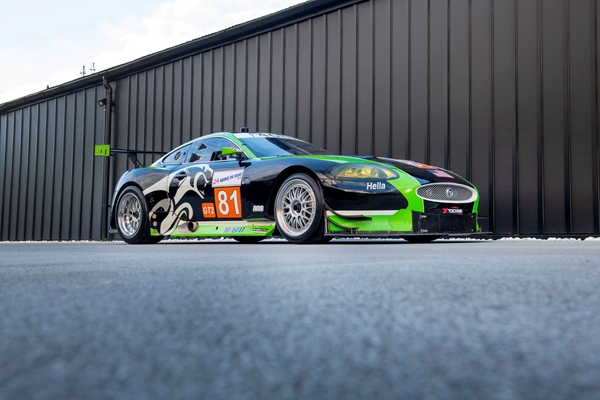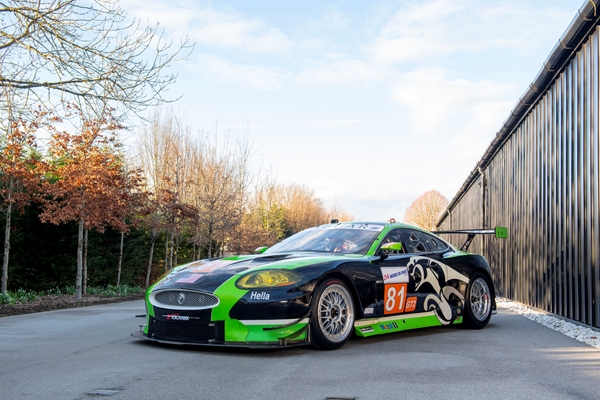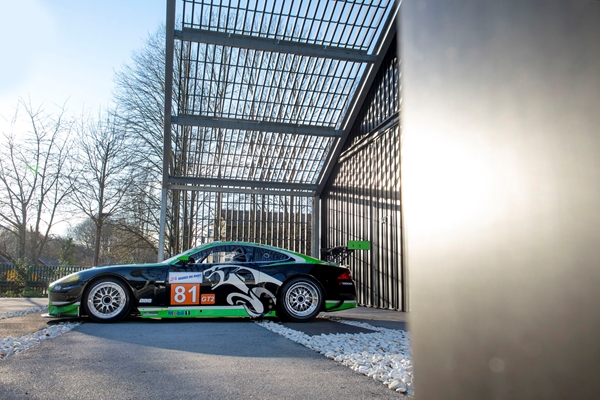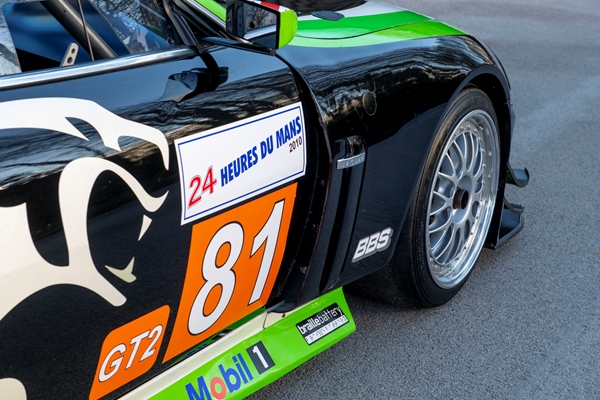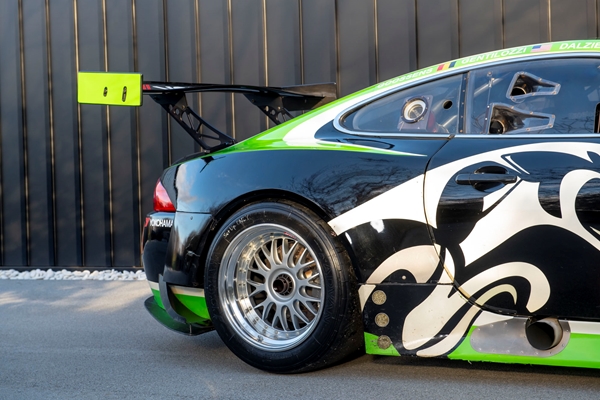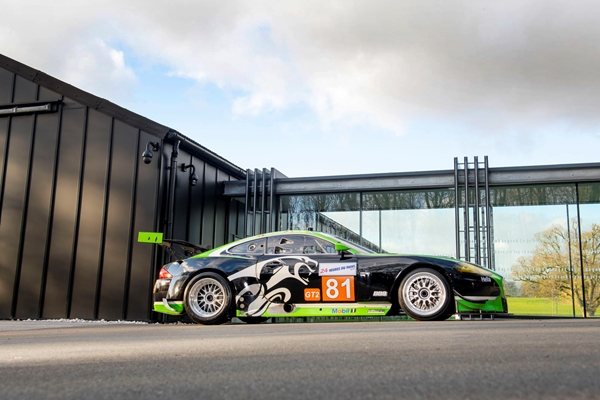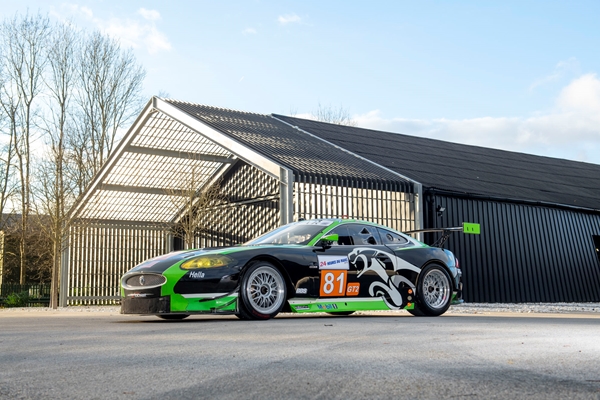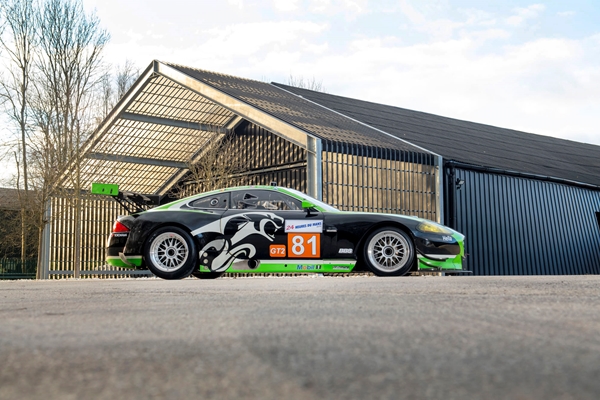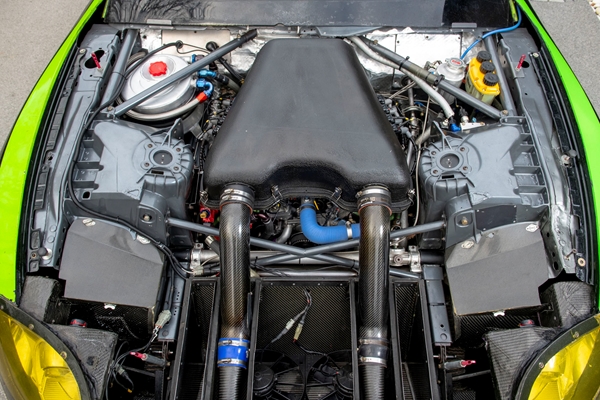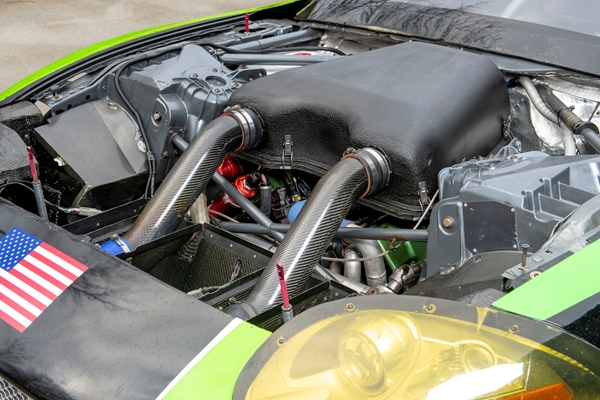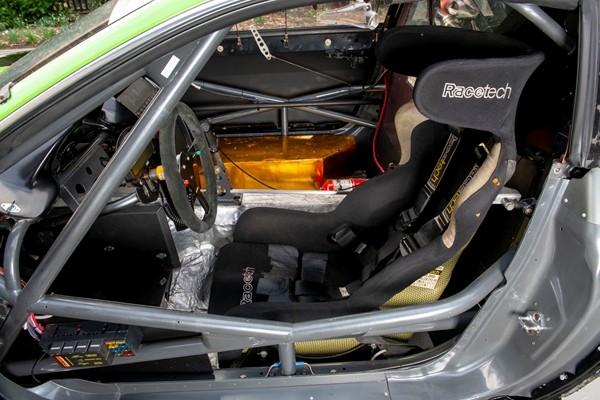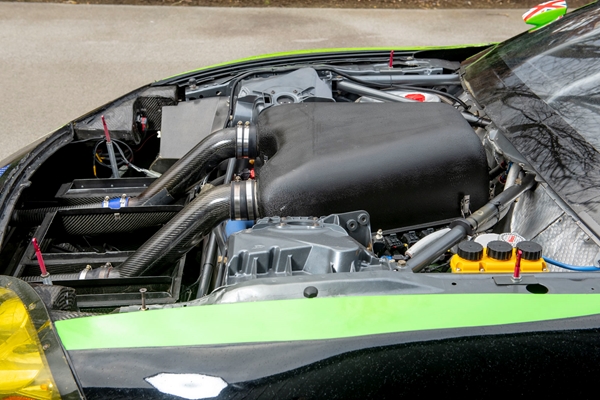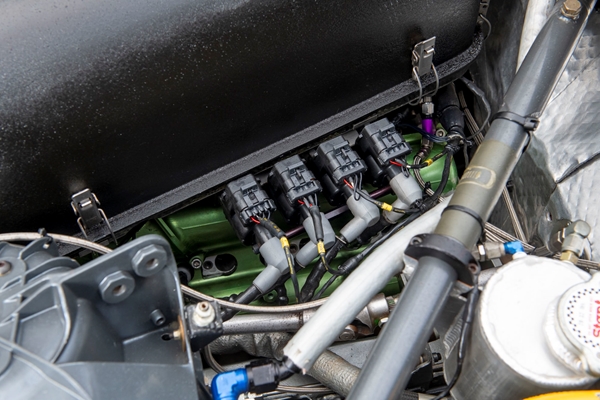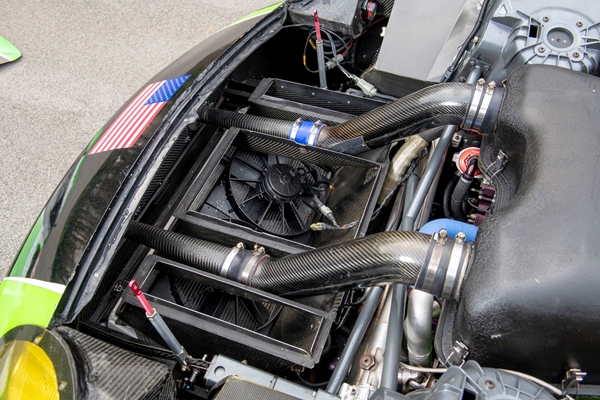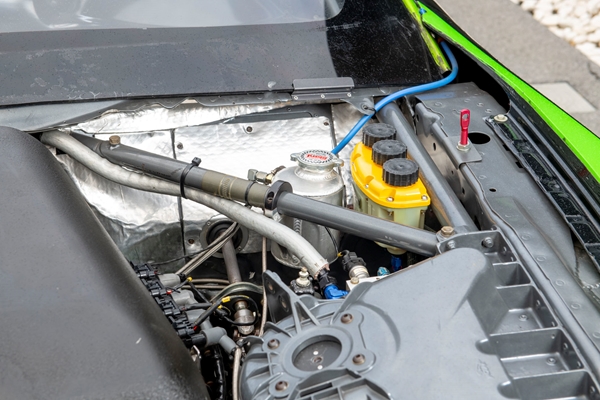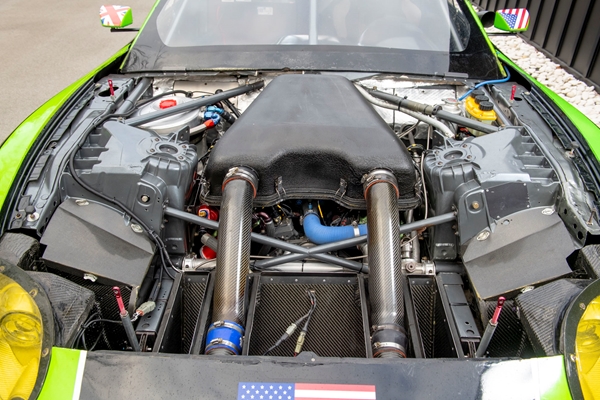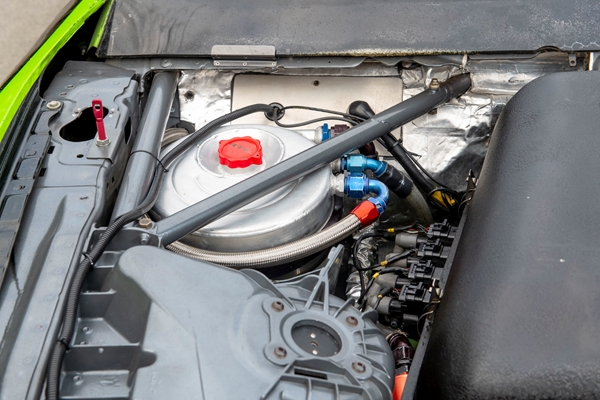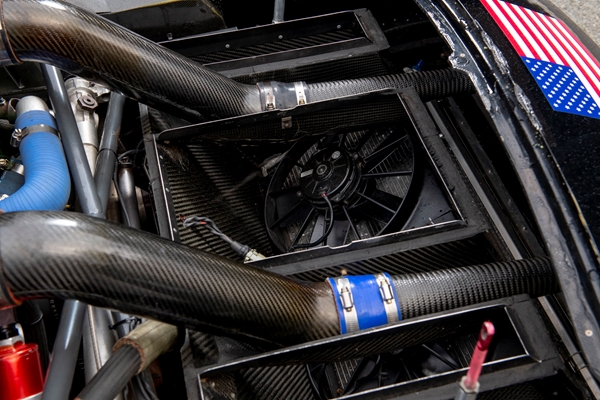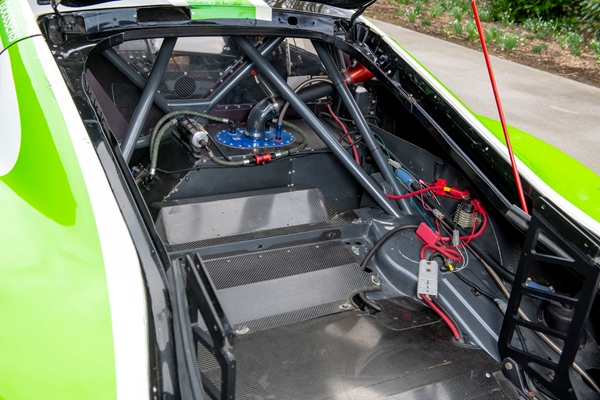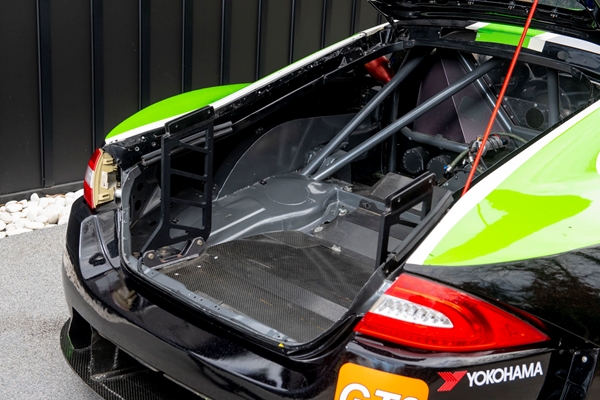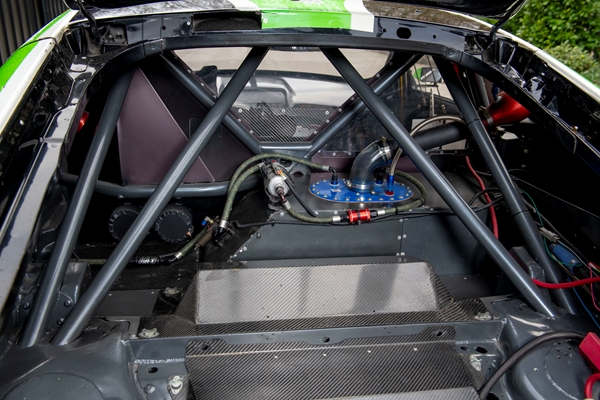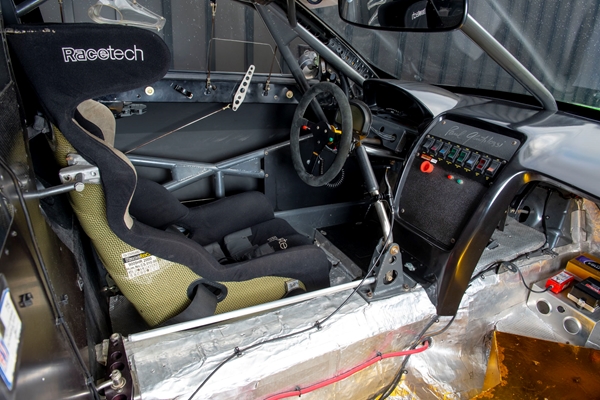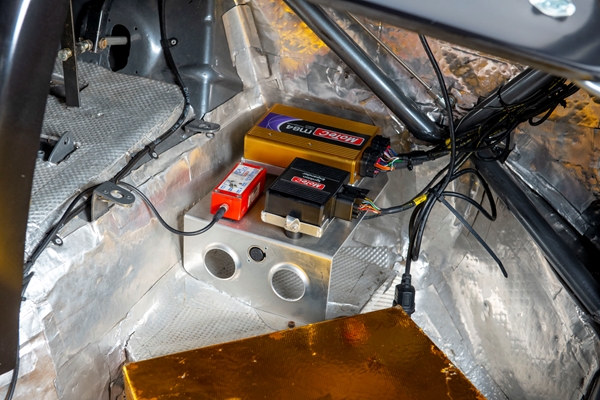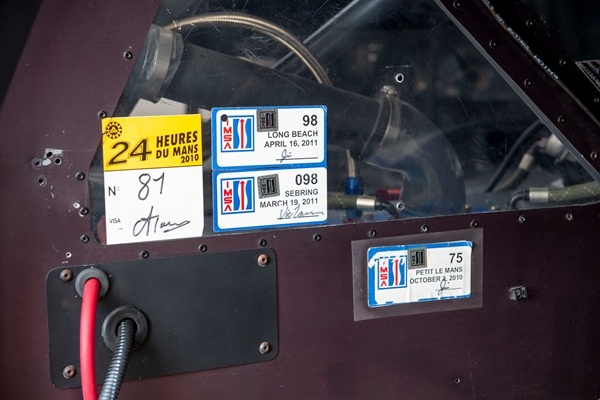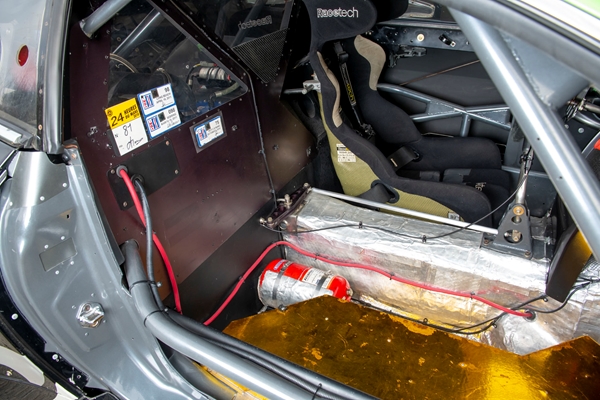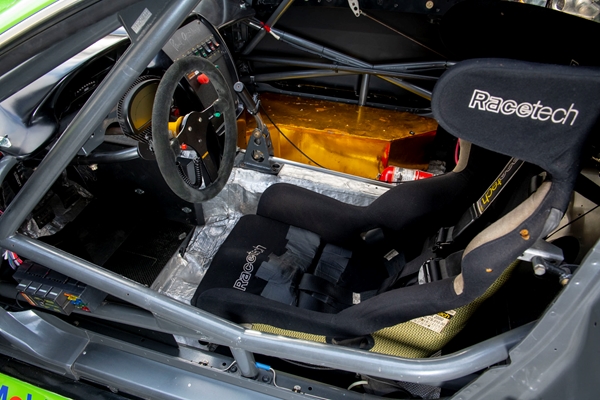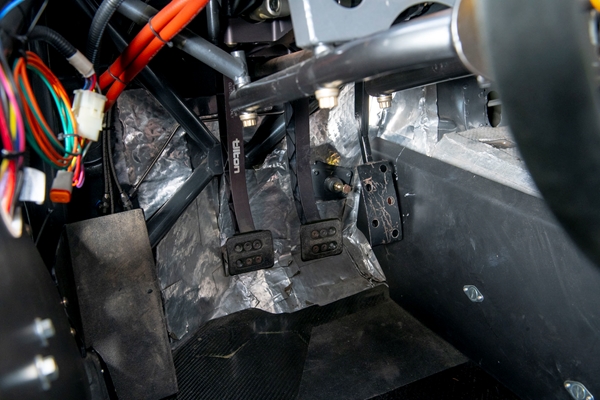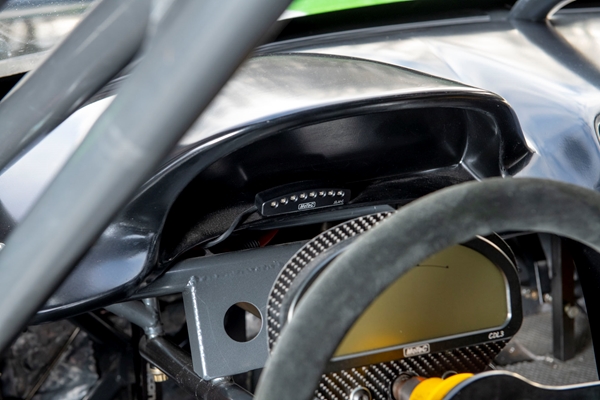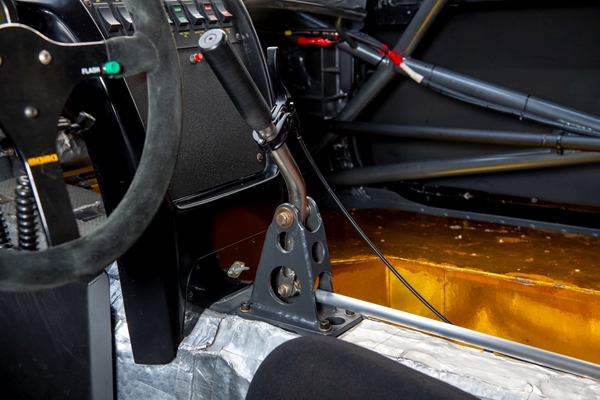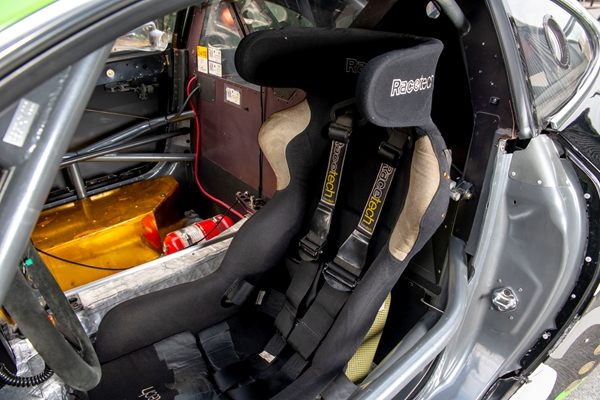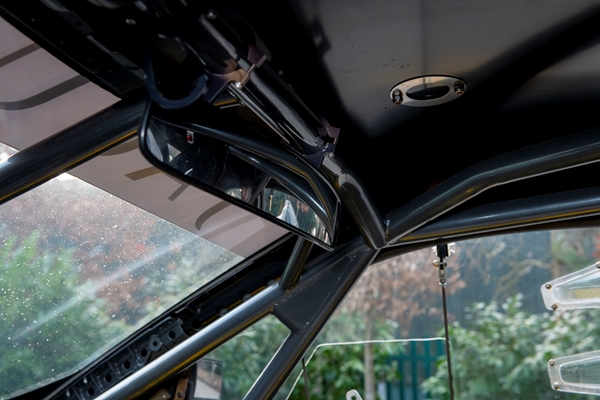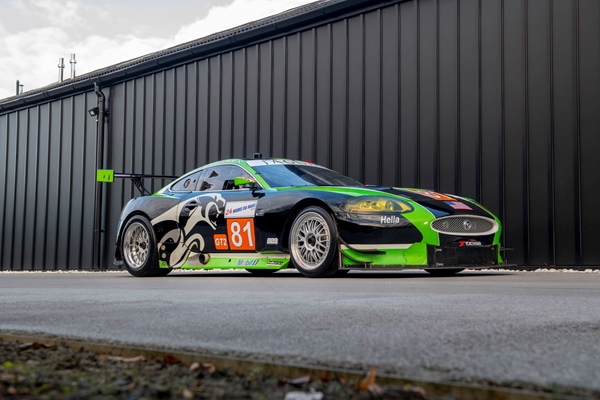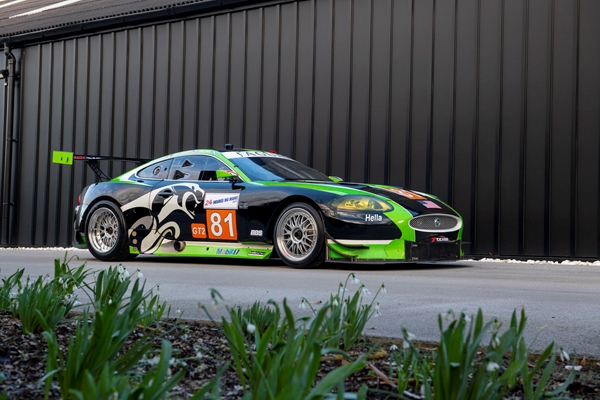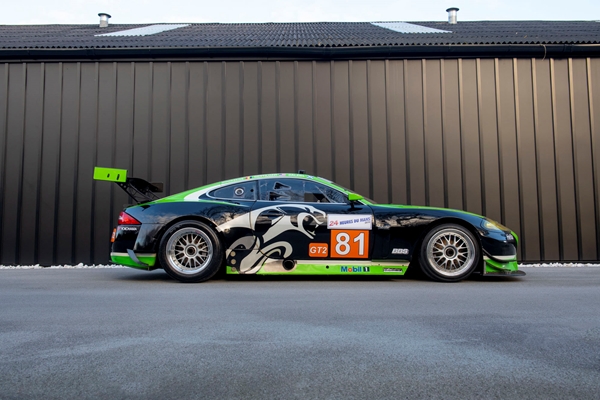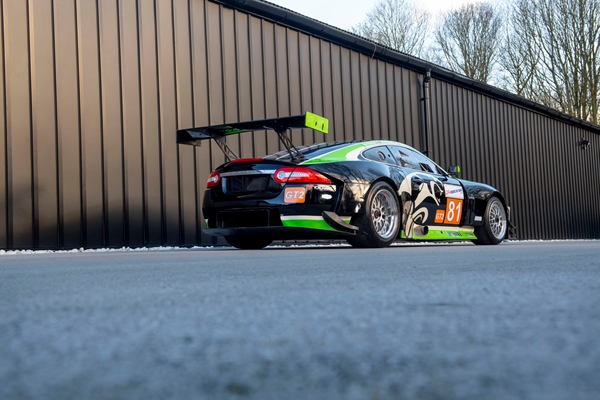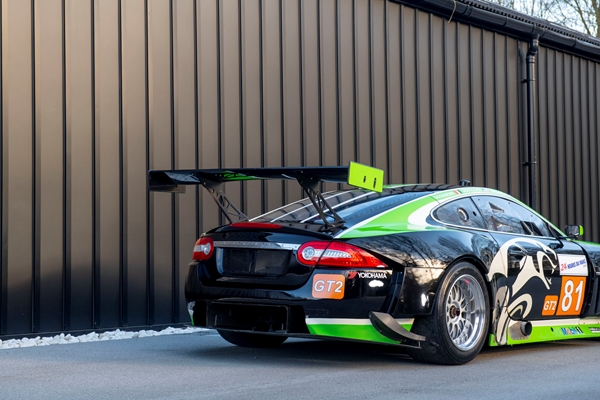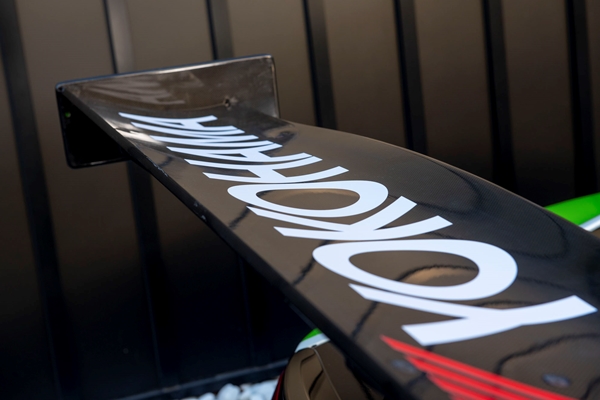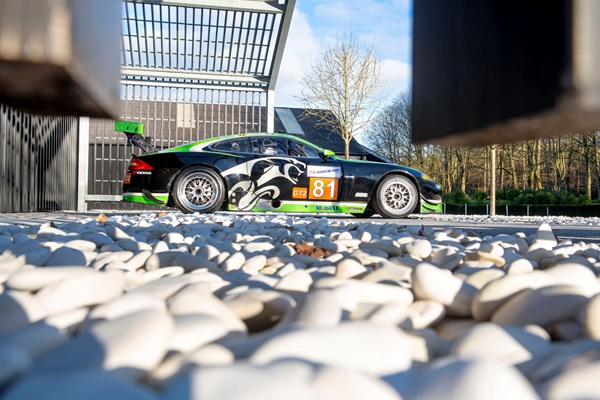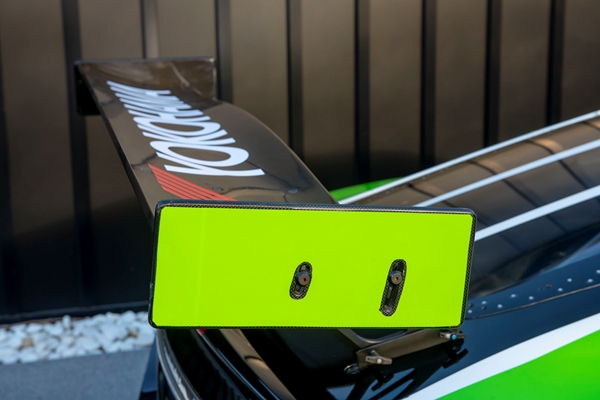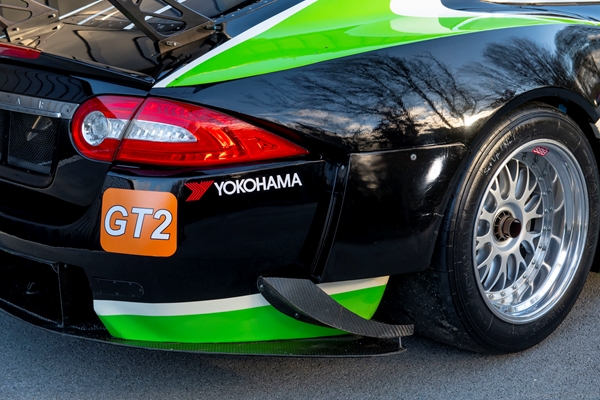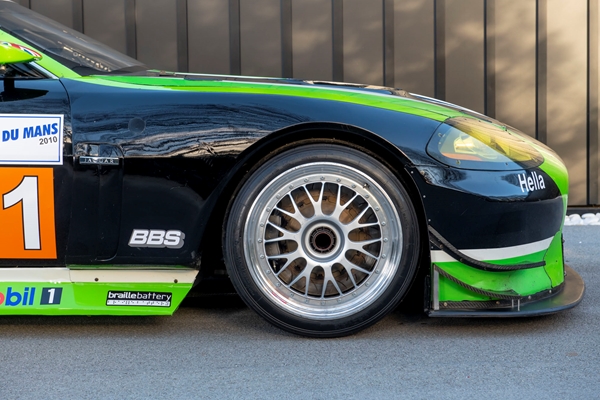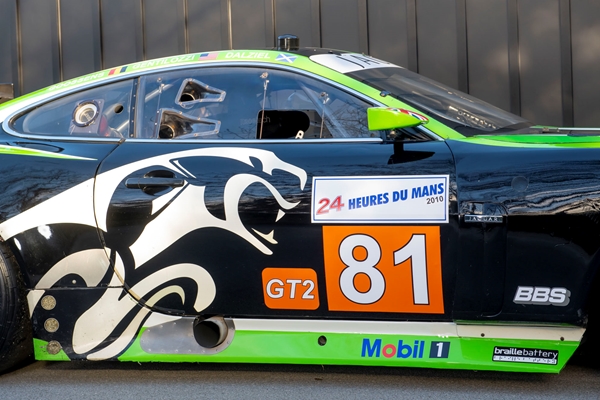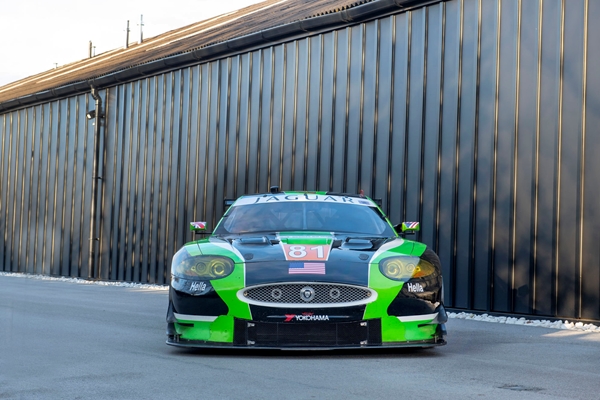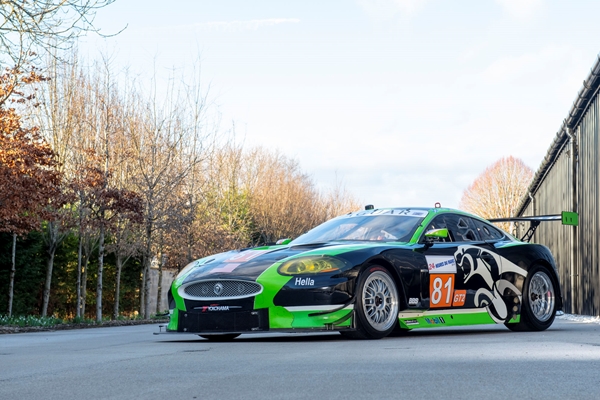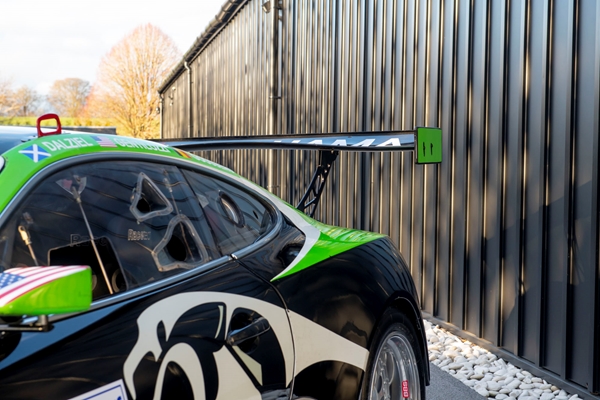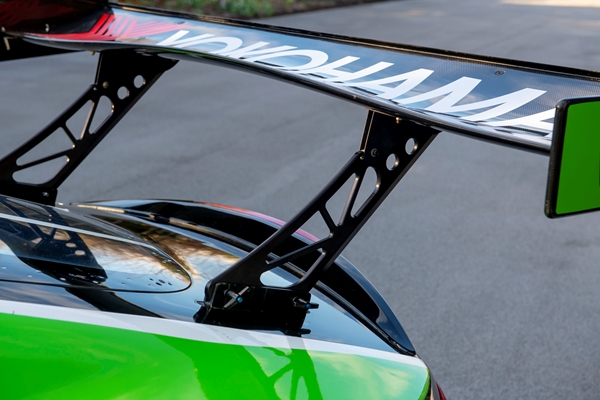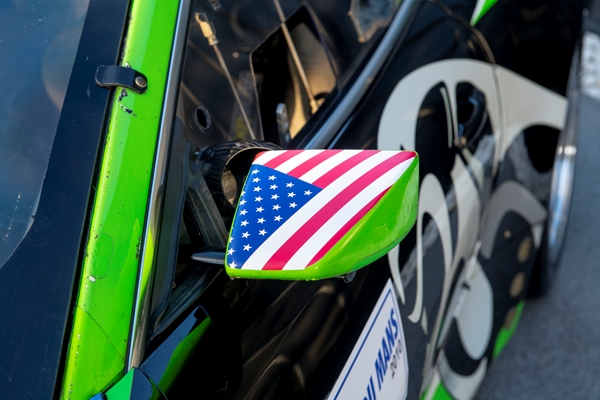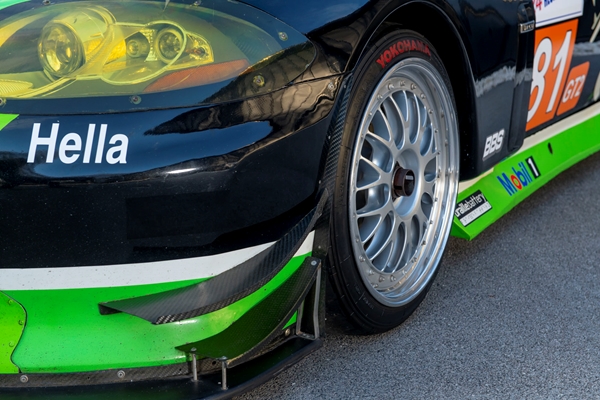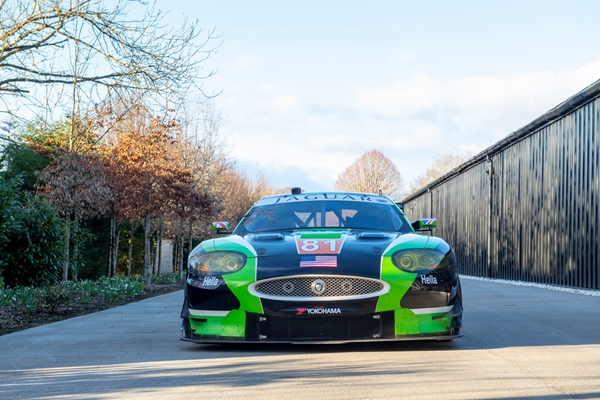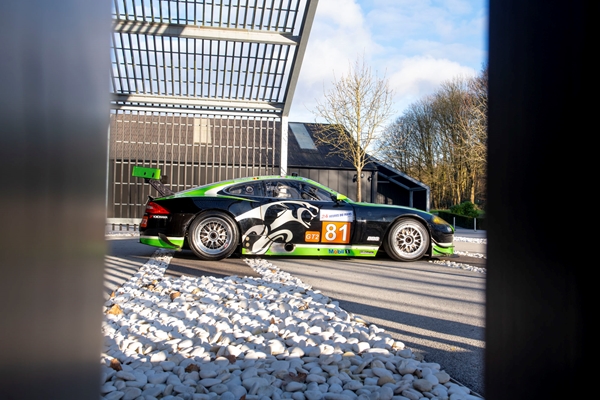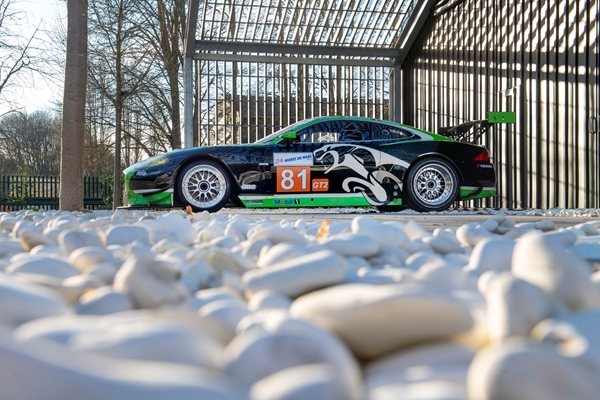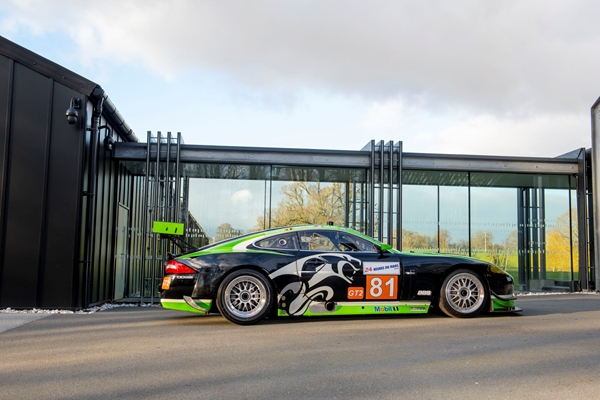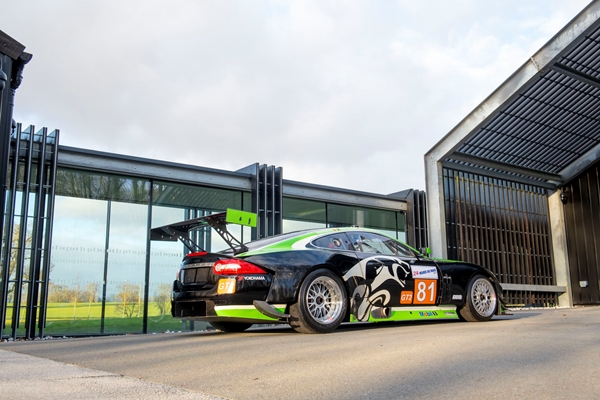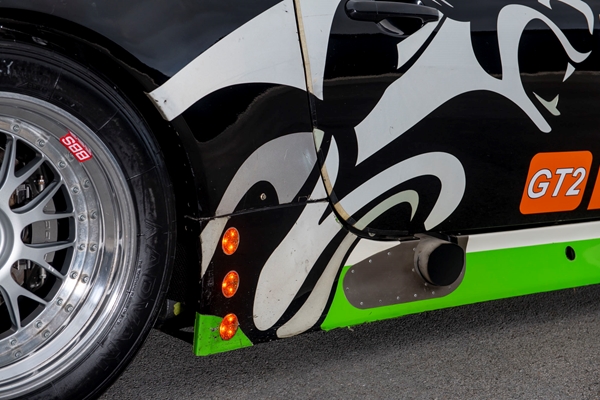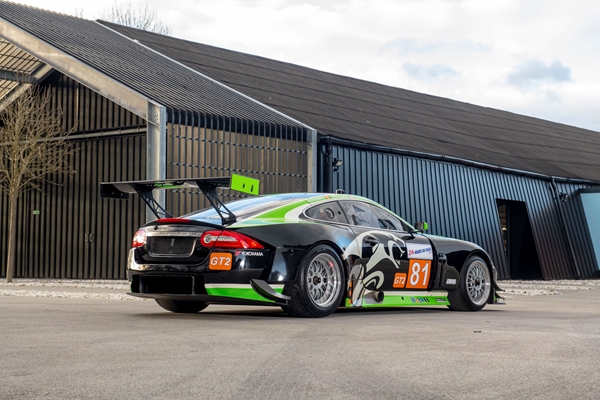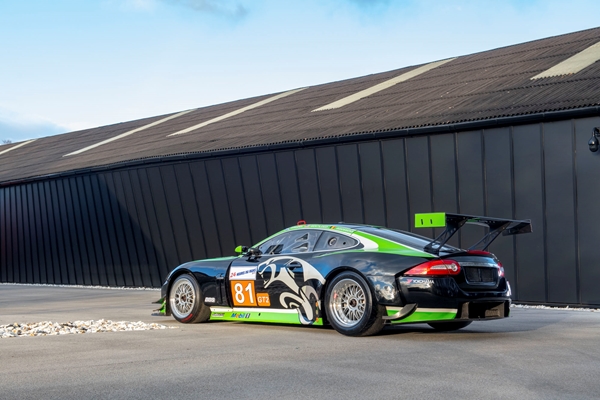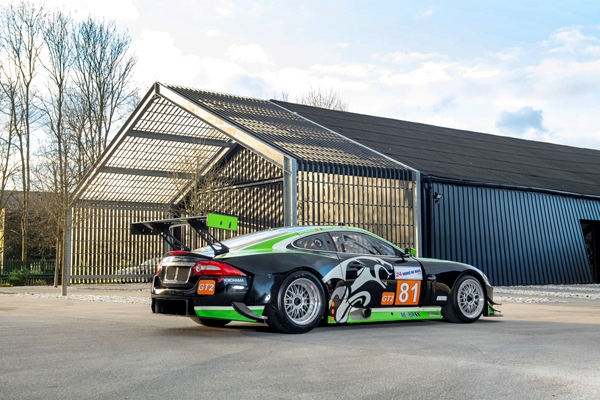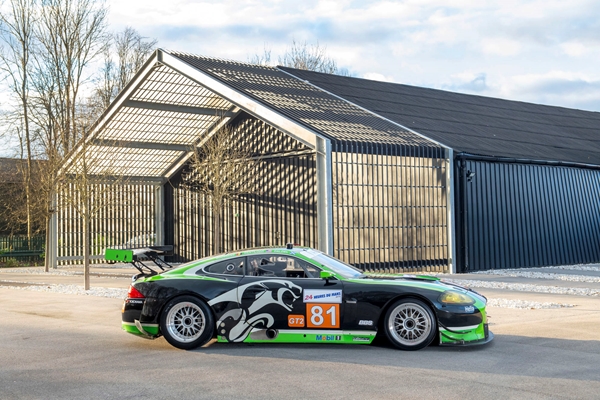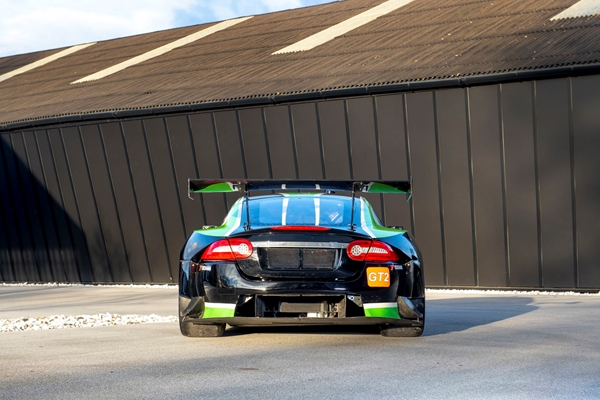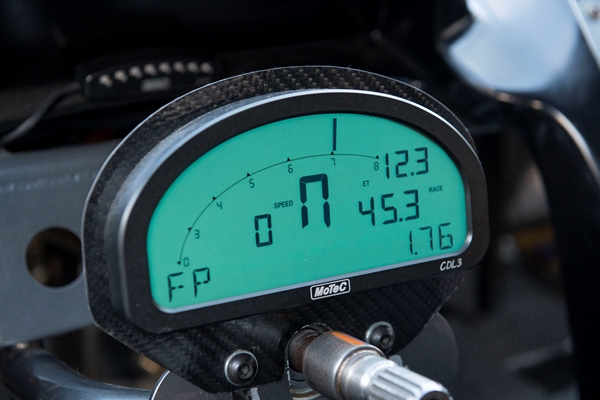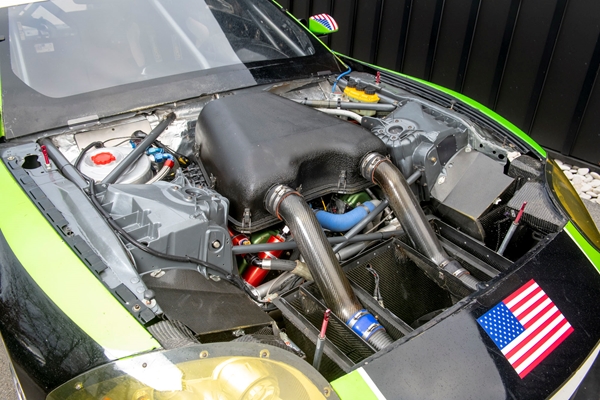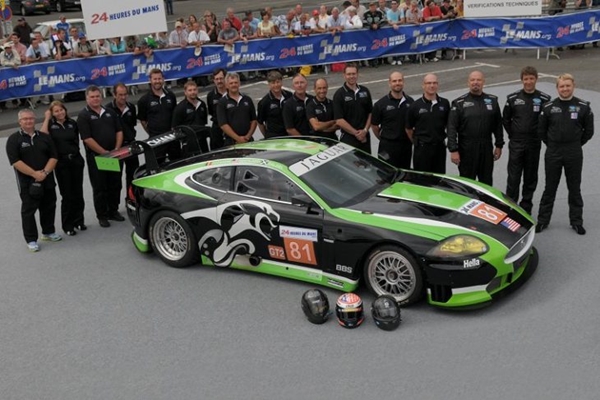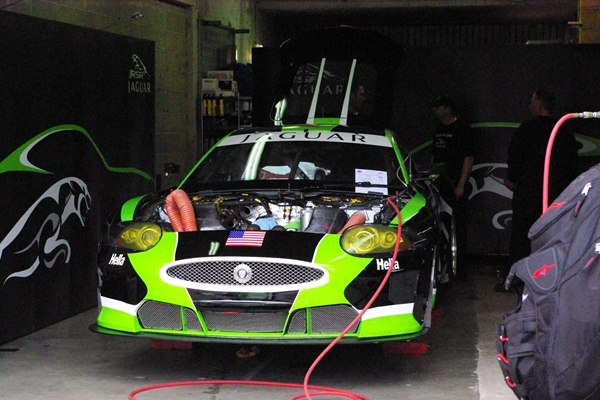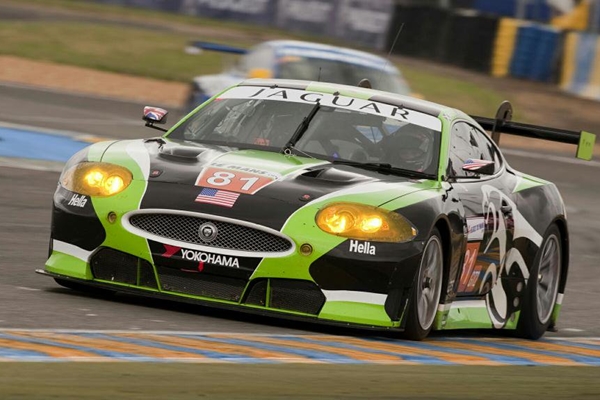2010 Jaguar XKR-S 'GT2' - The last Jaguar to race at Le Mans + a unique entry for ERL and Le Mans Classic
- The very last Jaguar to race in the 24 Hours of Le Mans
- Also raced twice in Sebring 12 Hours and across two ALMS seasons
- A truly unique part of Jaguar's competition history
- An eligible and unique entry for Peter Auto's Endurance Racing Legends, Masters Endurance Legends, Daytona & Sebring Classics and more
The Jaguar XKR-S GT2 is a racing version of the XKR X150 model (2006-2014), the second version of the acclaimed Jaguar coupe. The racing car was a joint project between Jaguar Cars and the American team Rocketsports Racing (RSR). It raced in the American Le Mans Series (ALMS) between 2009 and 2011, in the 12 hours of Sebring and the world’s most important endurance race, the 24 hours of Le Mans.
The British manufacturer’s return to La Sarthe in 2010 was a milestone, as it marked Jaguar’s 75th anniversary plus 25 years since their last participation with the XJ220C. Jaguar is one of the most successful brands at Le Mans, with 7 wins overall between 1951 and 1990. This comeback was the initiative of Paul Gentilozzi, an American businessman and racing driver, whose records include overall victories at the Daytona 24 hours, and five Trans-Am titles. Founder of Rocketsports Racing, he has a passion for Jaguars and indeed the marque held an important place in his career successes.
Rocketsports Racing (RSR) then moved to Champ Car, but they also built extreme Jaguar projects, like the 200mph convertible Jaguar XK-RS in 2004, and the 225mph Bonneville Salt Flats XFR V8 in 2008. These records established a strong relationship between the US team and British manufacturer Jaguar.
Gentilozzi proposed to Jaguar that the GT2 endurance racing class was ideal for there to return to top-flight motorsport. GT2 was a major class in all major championships and stand-alone events, whilst being hugely popular with fans and manufacturers. Simply, it was the most competitive class in the world of endurance racing at the time. Jaguar responded positively to the GT2 project, with the board giving the green light to the collaboration with Gentilozzi’s team to develop a new racer based upon the XKR road car. They would compete in the ALMS (the biggest global Sportscar / GT championship at the time), plus the jewels in the endurance racing crown; the Sebring 12 Hours and 24 Hours of Le Mans.
The new XKR-S would race against entries from Porsche, Ferrari, BMW, and Chevrolet. Development took place rapidly in 2009. RSR handled overall design, whilst Jaguar supplied technical assistance and oversaw styling and marketing. The base chassis was the same as the road car, although featured extensive modifications. The base engine is Jaguar’s AJ133 V8, a dual-overhead-camshaft 5.0L V8 making up to 550 bhp with air restrictors. Jaguar’s Advance Design Studio used computational fluid dynamics work (CFD) to ensure that the design was both aerodynamically effective but remained true to the brand’s styling language of the time, itself the brainchild of celebrated British designer Ian Callum.
Fielding a two-car team, Jaguar RSR’s driver line-ups consisted Butch Leitzinger, Tommy Drissi, and Le Mans winner Andy Wallace in chassis 001, whilst team boss Paul Gentilozzi, Le Mans stalwart Marc Goossens, and Le Mans class-winner Ryan Dalziel shared chassis 002. Chassis 002 was the most extensively raced of the three cars RSR fielded across their two seasons. Participating in all of the 2010 ALMS and part of the 2011 season. It also raced twice in the Sebring 12 Hours and of course its highlight, the 24 Hours of Le Mans. These two races are without doubt the most prestigious in endurance racing. At Le Mans once again the car was driven by Goosens, Dalziel and Gentilozzi and they arrived in high hopes.
Unfortunately however 002 was plagued by mysterious electrical problems throughout the event with a chronic misfire severely affecting pace. Ultimately the team had to retire the car from the race itself due to this same issue which was later identified as a mandatory data recording device malfunctioning - no fault of the car or team. In addition, as part of its ALMS campaigns, 002 raced at Long Beach, Laguna Seca, Miller Motorsports Park, Mid-Ohio, Road America, Mosport and the Petit Le Mans at Road Atlanta.
At the end of the 2011 season, Jaguar decided not to join the new 2012 World Endurance Championship, and so closed the curtain on the XKR-S' career. Of the three racing cars 003 remains with Gentilozzi to this day, 001 was bought by a museum, and 002 was sold to a Jaguar collector in Florida, where it was cherished and rarely seen in public for nearly a decade. Unusually the car was not restored, and so remains original right down to the technical inspection stickers applied for its participation at Le Mans.
Le Mans has been intertwined in Jaguar history throughout and it is highly unlikely that Jaguar will ever compete at Le Mans again given the brand’s shift towards a fully electric future. So the fact that this is the very last Jaguar to race at Le Mans is of great significance, since it bookends the marque’s history at the event. Eligible for a wide variety of events around the world including the Endurance Racing Legends series, Masters Endurance Legends, the Daytona and Sebring Classic events not to mention the Monterey Historic Reunion and Goodwood Festival of Speed, to name but a few.
Be different, look different, sound different, and catch the eye of the selectors!
POA ENQUIRE ABOUT THIS VEHICLE
